Business the of Being
Daniel Lubetzky pulls off a balancing act many business leaders preach but few achieve: doing well and doing good P74
executives making a social impact, with guest editor Cid Wilson P84
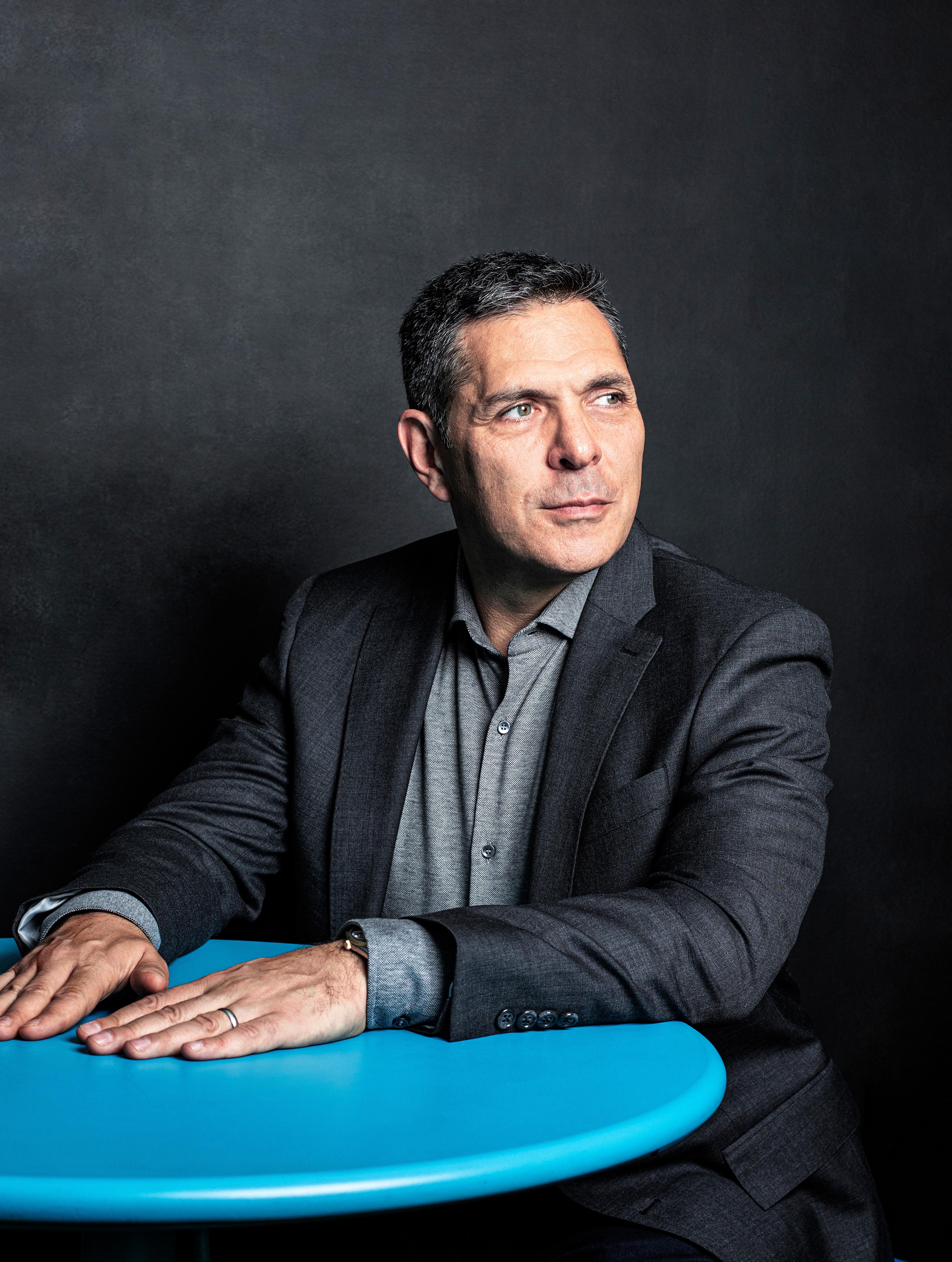
Our pursuit of excellence begins with a passion for diversity and inclusion.
At Liberty Mutual, we foster an atmosphere of respect, where our collective differences and similarities drive new ideas that support our success.
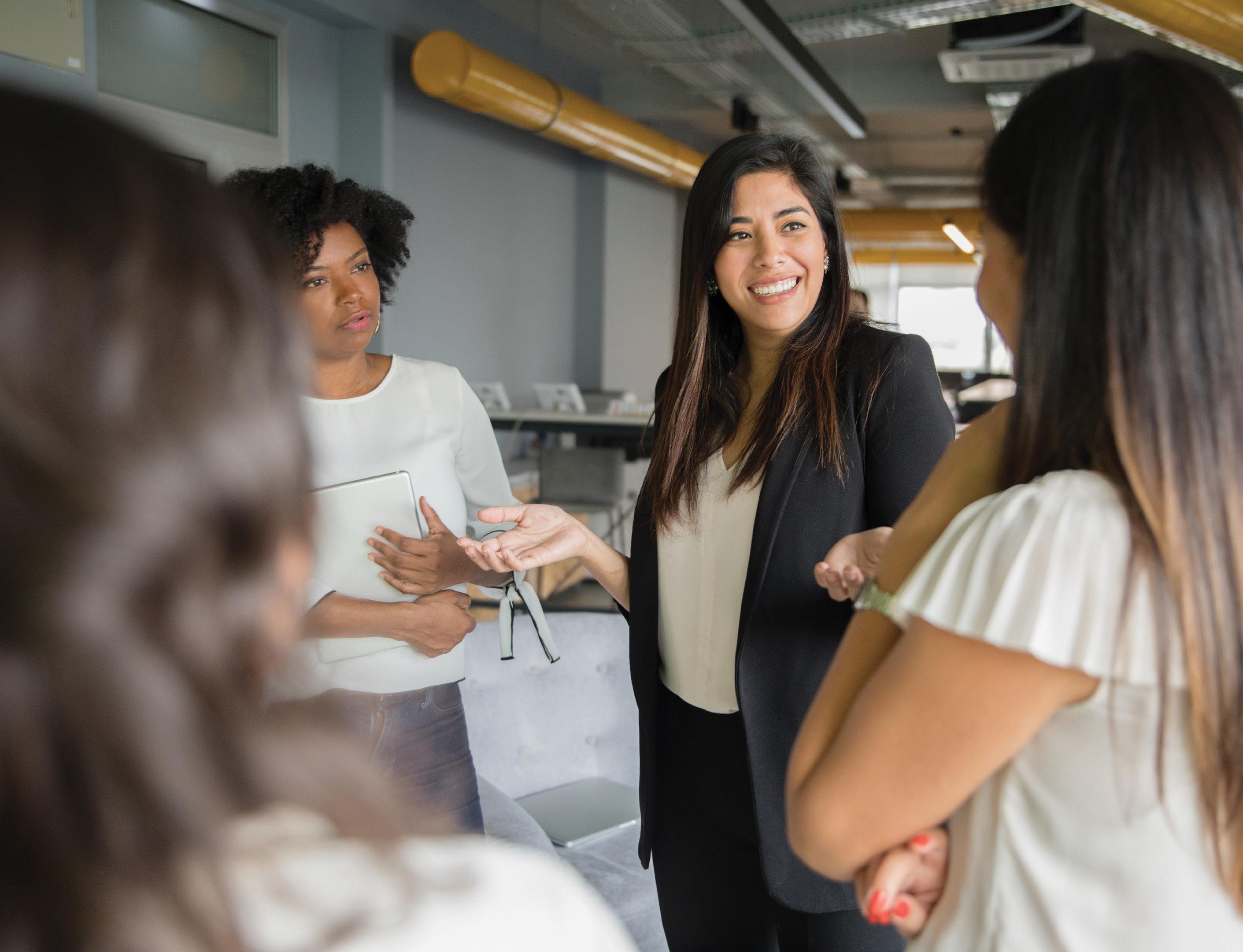
LMI.co/Diversity
We are an equal opportunity employer.
not only focus on initiating and enacting change as a corporate and social responsibility, they also concern themselves with exactly what more can be done from here—especially as they plan courses of action that will resonate across generations P84
FIVE
CARLOS VIDAL Orangetheory Fitness
ANGELIQUE SINA Friends of Puerto Rico
ALFREDO RIVERA Coca-Cola
CHRISTINE MONTENEGRO MCGRATH Mondelez International
LUIS MADRIGAL Uber
MARGITA THOMPSON California Resources Corporation
JEANNETTE FERRAN ASTORGA
Ascena Retail Group Inc.
JAIME MATA AT&T
RICARDO MADAN
TEKsystems
of 2019
P104
nine featured executives GOOD
LATINO-LED PASSION PROJECTS Learn about the impact Miguel Quiroga (Visible), Andrea Perez (Nike), and other members of the Alumni Society’s Class
are making through forward-thinking initiatives
These
THE GREATER
91 96 100 106 110 116 120 124 128
WITH AN INTRODUCTION FROM OUR GUEST EDITOR: CID WILSON P86
COVER: GILLIAN FRY 3
Hispanic Executive
CONVERSATIONS AT THE TOP:
DANIEL LUBETZKY
In an interview with Ruben Navarrette, the founder and executive chairman of KIND discusses his winding road to success and how his curiosity and creativity inform his bold philanthropic initiatives
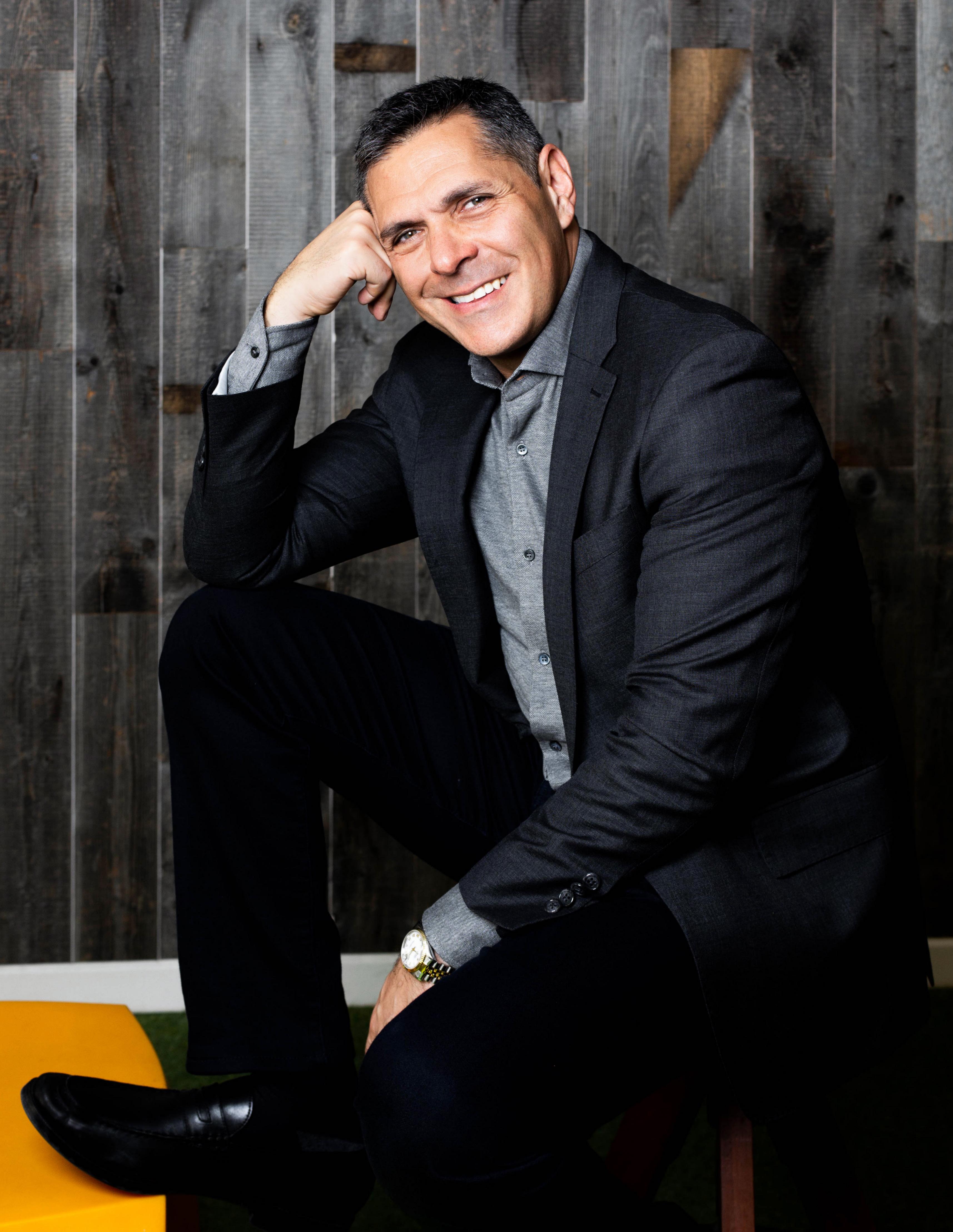
74 GILLIAN
4 Contents
FRY
EVER-READY TO EVOLVE
As senior vice president of global revenue at Dell, Bruny Rios is no stranger to large-scale transformative initiatives—in fact, she believes they strengthen her team’s ability to adapt
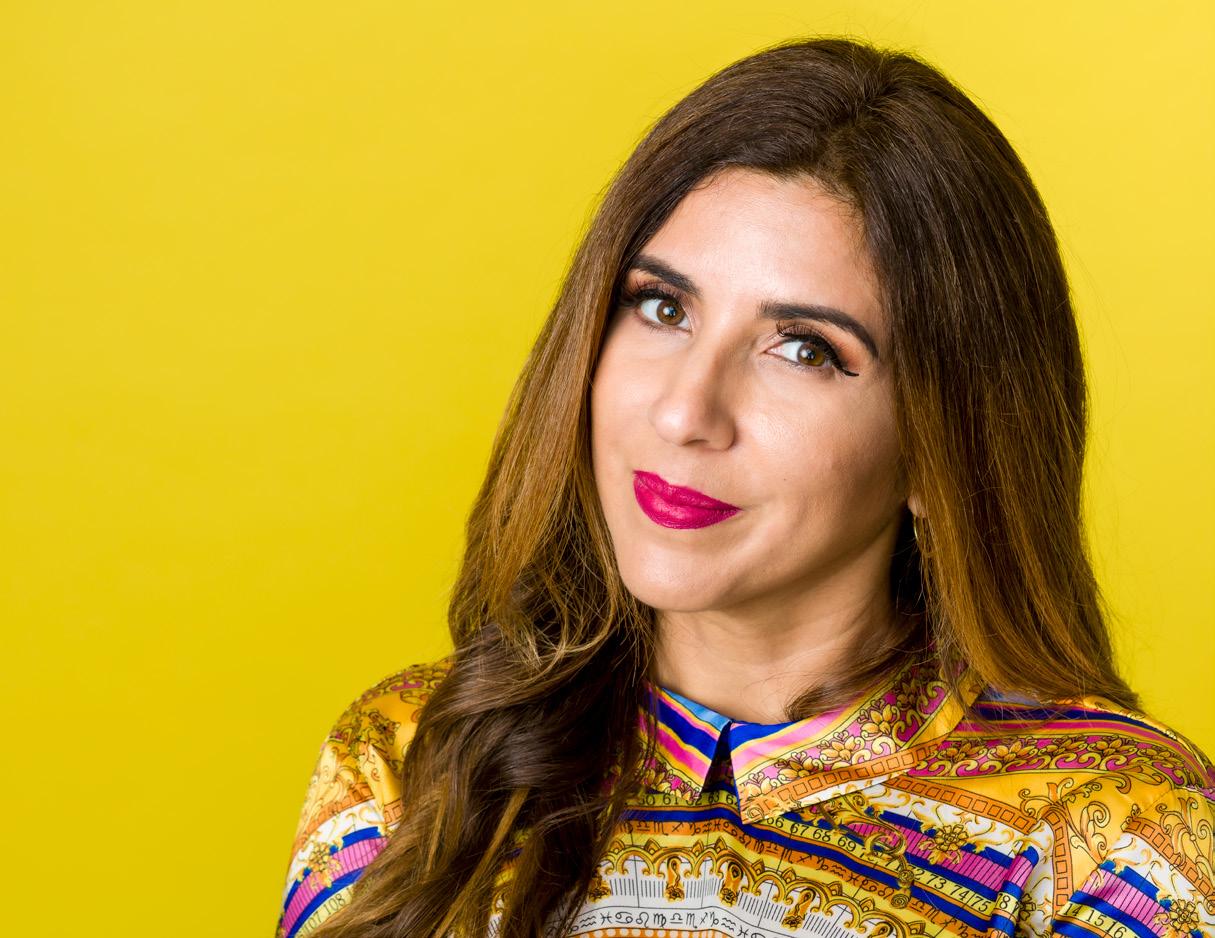
THE PEOPLE ON THE BUS COME FIRST
By navigating multifaceted real estate deals and seeking optimal locations for terminals, Rey Nunez emphasizes the customer experience at Greyhound
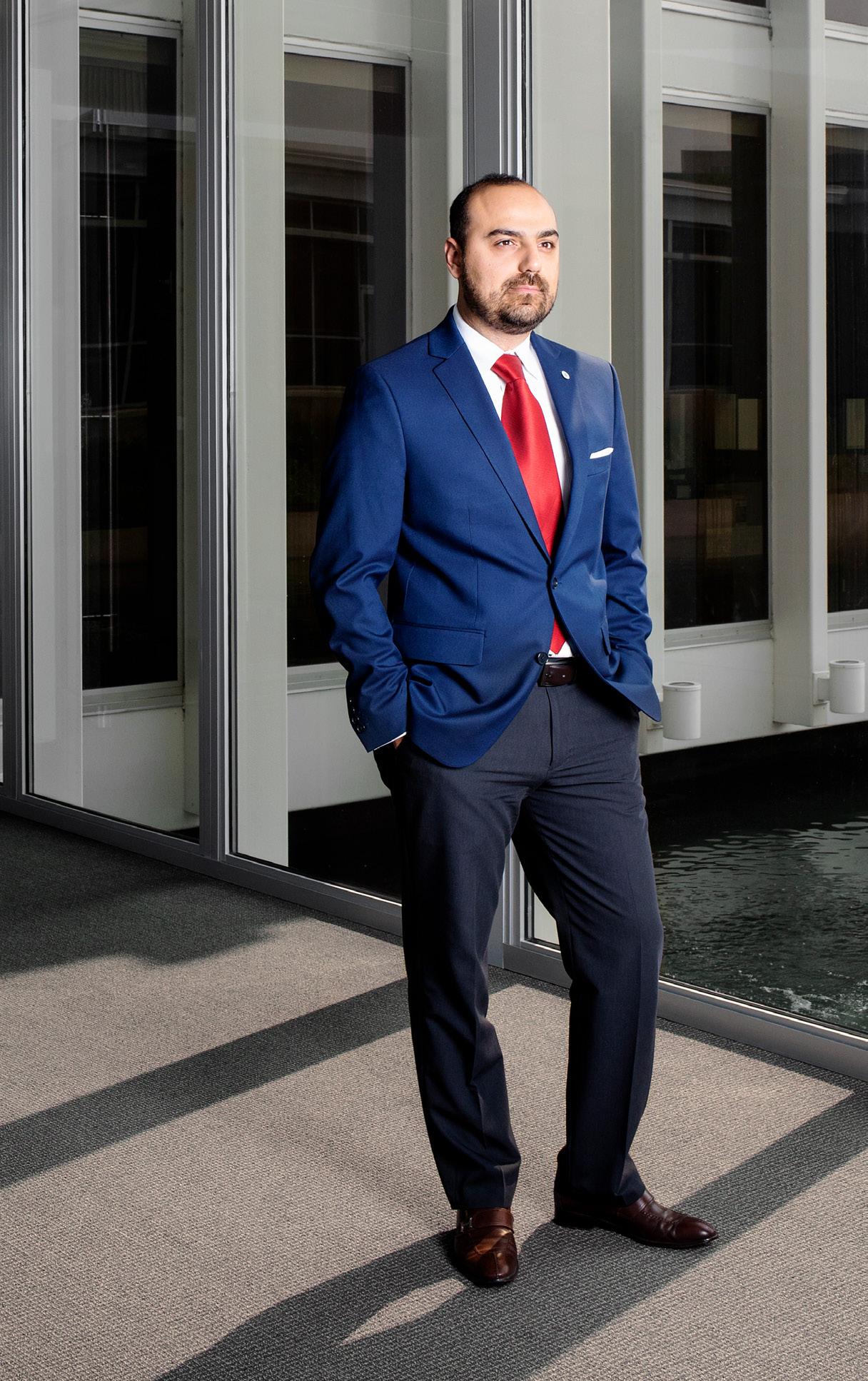
GUIDING THE MARKETING MODEL
At Merkari, programmatic pioneer Francisco Garcia presents cutting-edge marketing technology to brands with a multicultural focus
A NEW DESIGN IN EDUCATION
Marnie Forestieri has developed her educational philosophy into a learning-academy franchise as the founder of the Young Innovators Academy
GOING ALL THE WAY UP
Juan Silva initiated an overhaul of the Latin American IT division at Otis Elevator, focusing on the development of collaborative processes to get ready for the future
BUILDING A BRIDGE IN FINANCE
As a global director of finance at Johnson Controls, Edgar Mayorga is working to harmonize his team’s practices as they’re implemented both locally and internationally
THE BEST MIX OF INGREDIENTS
Over the last year, Bacardi Tax Director Dania BlandonHernandez has worked with her team to adopt the financial infrastructure of the recently acquired Patrón brand
Odds & Ends 6 A LETTER FROM THE PUBLISHER 9 RECOMMENDED READING & LISTENING 10 A DAY IN THE LIFE 176 INDUSTRY INDEX 178 THE LAST WORD 18 51 60 68 142 156 170 156 68 5 Hispanic Executive RYAN KETTERMAN (YOUNG INNOVATORS ACADEMY), GILLIAN FRY (JOHNSON CONTROLS)
Contents
A Letter from the Publisher
WHEN READING THE STORY of our cover subject, Daniel Lubetzky, I am reminded of the depth and complexity of our Latino community. Our histories are rich, our identities are complex, our stories are so varied.
Growing up in a household of educators and Chicano activists, I was exposed as a young boy to the art of Diego Rivera and the concept of la raza cósmica , introduced by the Mexican philosopher José Vasconcelos. The art and ideas of early twentieth century México resonated with me tremendously because they made me feel as if there was something special—even magical— about being Mexican American.
Pedro A. Guerrero CEO of Guerrero Media Publisher of Hispanic Executive
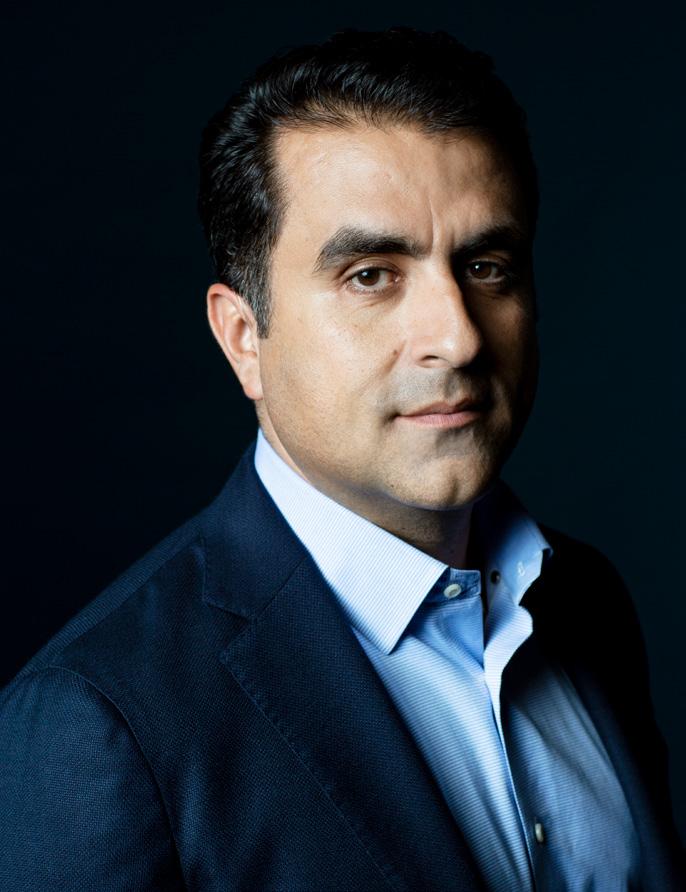
The concept of la raza cósmica underscored what I believed was rich about our Latino heritage: that we are a kaleidoscope of identities and that a new definition was perhaps needed as the zeitgeist of our existence.
Lubetzky’s story is a reflection of that wonderful tapestry of raíces that makes up what it means to be Latino.
I think a grasp of this understanding is missing from the outlets of our “mainstream” society, be it in media, marketing, or politics.
But we get it.
GILLIAN FRY
6 A Letter from the Publisher
There is so much more cross-cultural, cross-national essence that goes into the experience of being Latino, and Lubetzky is a great example of that. His story—which begins in Germany and Mexico and is now rooted in the United States—extends worldwide when you look at the impact his organizations are making.
And yet many don’t recognize Lubetzky as a US Latino. I didn’t, mainly because I didn’t know of him. Still, it is always an incredible feeling to discover that someone is Latino—or that a brand that I love, a brand like KIND, has a Latino powerhouse driving its success.
It is even more fulfilling to read and see profiles of Hispanic leaders that are focused on positively impacting society, especially when the dominant narrative in media today is the opposite.
There is a lot that goes into being a Latino, and with every story we tell we are reminded of that fact. Ultimately, the creation of this publication is a never-ending exploration into our community—one enhanced by the recognition of how and where we’re making a social impact.
When you see a new Orangetheory Fitness studio, know that Carlos Vidal (p.91)
is the leader behind that development. He leads with a passion for the community Orangetheory creates and for the greater social impact of making a healthier world.
When you eat an Oreo, Chips Ahoy!, or Tate’s Bake Shop cookie—or really any product from Mondel ē z International— know that Chris Montenegro McGrath (p.106) is ensuring that the cocoa comes from a farm that is sustainable. She believes in prosperous businesses for farmers, empowered and inclusive communities, and forests that are being conserved and restored.
When you use your Uber app for a ride or to order food, know that Luis Madrigal (p.110) was one of the engineers behind that technology, and he’s now an active role model and agent of change for D&I in Silicon Valley’s tech community.
These social contributions are yet another expression of what our community has to offer, yet another expression of who our community is. We’re a community that can’t be defined by a single surname, color, shape, or background, but a community that is distinctly Latino.
7 Hispanic Executive
“Daniel Lubetzky’s story is a reflection of that wonderful tapestry of raíces that makes up what it means to be Latino.”
ADVANCE INCLUSION IN THE WORKPLACE
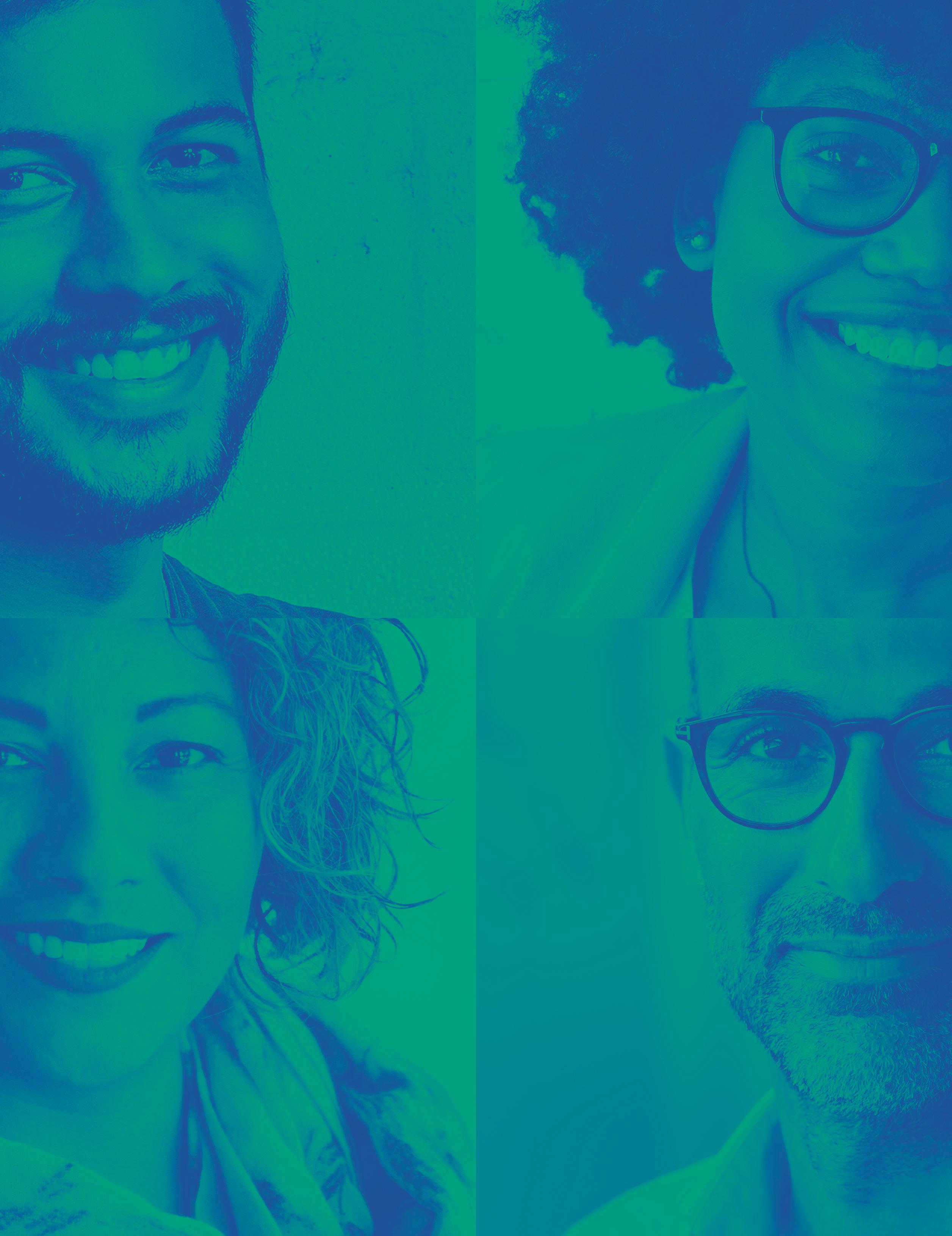
Join visionary companies and show your corporation cares to hire, promote, retain, and celebrate Hispanics as employees, customers, and citizens. www.weareallhuman.org/promise
Recommended Reading & Listening
True leaders are always learning. The impactful leaders featured in this issue offer insight into the books and podcasts that keep them inspired. Here’s what they recommend.

Read
The Go-Giver: A Little Story About a Powerful Business Idea
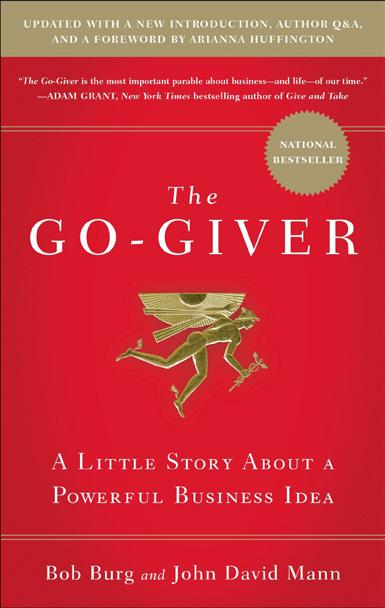
Bob Burg and John David Mann
Listen Impact Theory
Tom Bilyeu
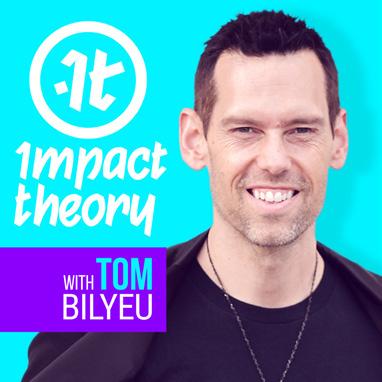
Read Multipliers
Liz Wiseman
+ The Culture Code
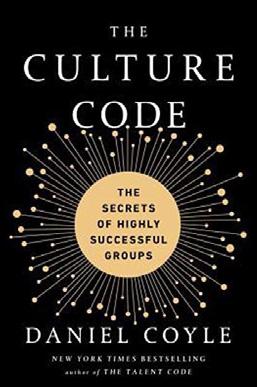
Daniel Coyle
Listen
Women at Work
Harvard Business Review
Listen
1865
Lindsay Graham
An award-winning, bestselling fictional tale about a businessman who is introduced to the power of giving.
Eliseo Rojas
ETR Business Solutions, P65
“My favorite podcast by far. The top-level quality and wide diversity of people Tom interviews is off the charts, and the conversations get really deep but are at the same time understandable.”
Carlos Vidal Orangetheory Fitness, P91
“Especially in the age of widespread ‘digital transformation,’ which is invariably causing loads of disruption to legacy business models and organizational cultures alike, these are excellent books I’d recommend for any technology leader who’s been challenged to keep their people and their customers at the heart of everything they do in a healthy and growthminded manner.”
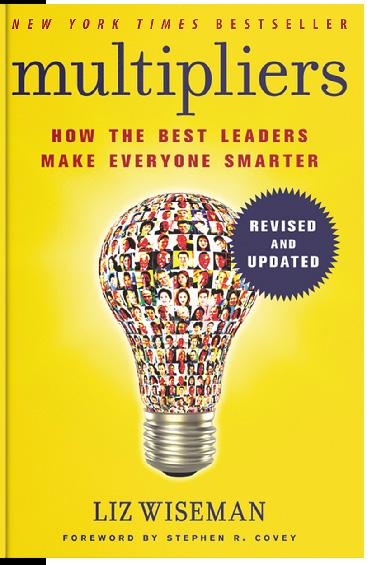
Ricardo Madan TEKsystems, P128
“On my commute, I love to start or end the day with a podcast. I am currently enjoying HBR’s Women at Work. As the coexecutive sponsor of Ascena’s working parent associate resource group, I am always looking for inspiration from other women leaders on how they balance demanding careers with family and on how to achieve your greatest potential.”

Jeannette Ferran Astorga
Ascena Retail Group Inc., P120
“I am currently gripped by the podcast 1865, a historical fiction drama about the turmoil US leaders are plunged into the moment after President Lincoln is shot. It shows how institutions’ values shift over time, the need to understand people’s motivations, and that compromise takes strength and is not always satisfying. Plus, it’s incredible how they immerse you in the story.”
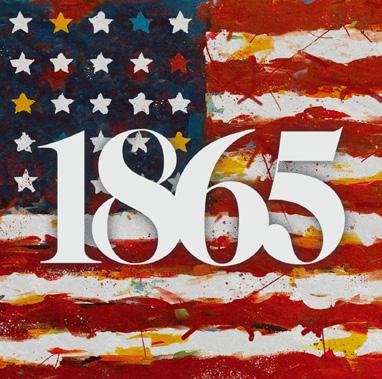
Margita Thompson
California Resources Corporation, P116
9 Hispanic Executive
Day the in A Life of
Claudia Romo Edelman
Photographer Gillian Fry followed the founder of We Are All Human while she was in Chicago to host her second Hispanic Leadership Summit. A global ambassador, Claudia is leading a movement to raise awareness of the power of the US Hispanic community.

10 A Day in the Life
6:10 AM
An early riser, Claudia enjoys a regular morning workout. “I work out with my husband six times a week,” she says. “Exercise is the anchor of my life. It keeps me focused and centered, which is particularly important when you lead a life that’s constantly on the move.”

11 Hispanic Executive
7:21 AM

Claudia and her husband, Richard, enjoy breakfast together. “Every morning, as I enter the day, I like to outline the three goals I want to achieve,” she says.

7:43 AM
Claudia checks in with her daughter. “Regardless of where I am or what I’m doing, I always have a daily call with my kids,” she says.
12 A Day in the Life
8:47 AM
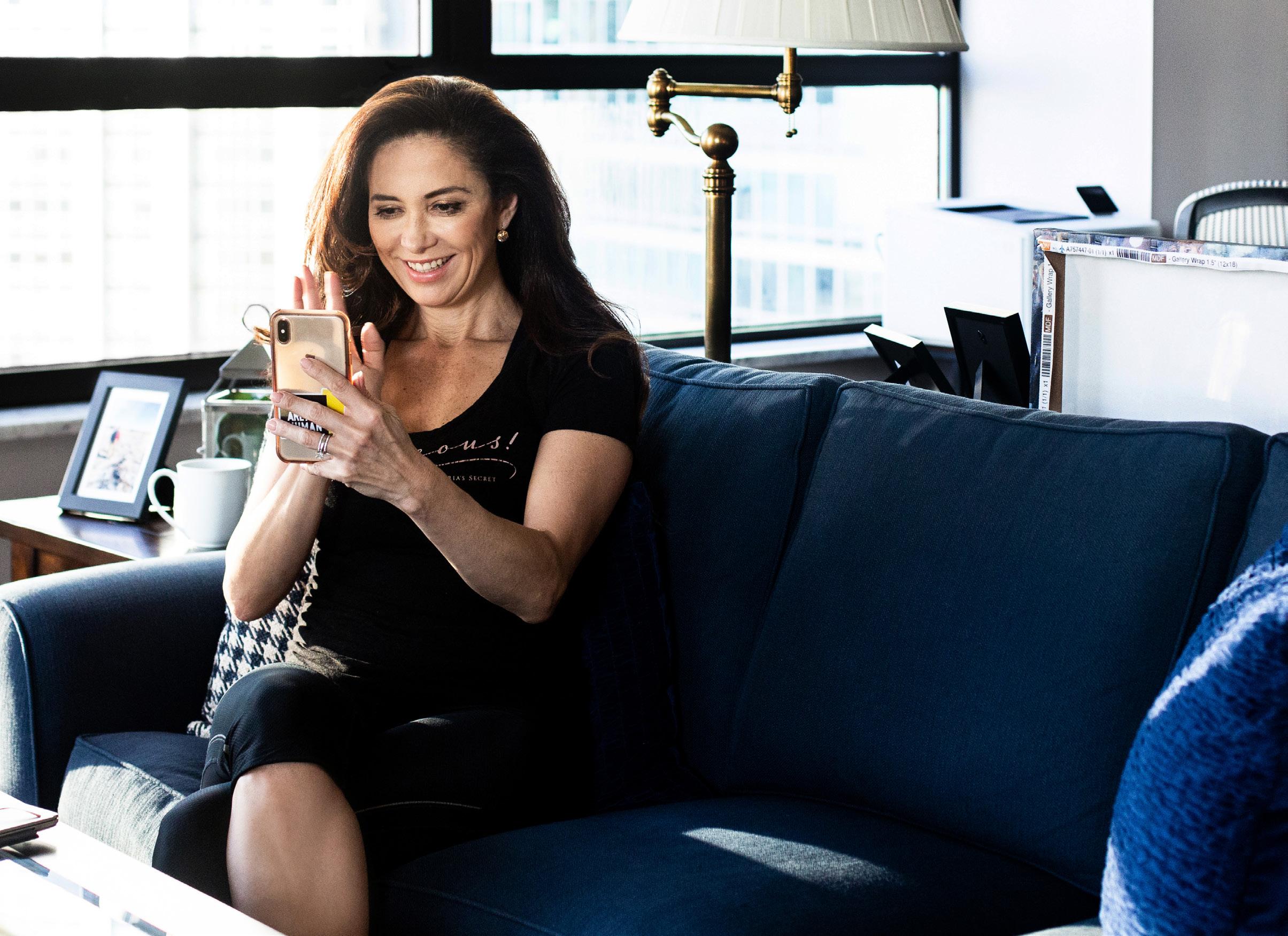
Toting her luchador laptop bag, Claudia travels to her first meeting. “We produce these bags and give them to the speakers at our summit with the message: ‘Behind every mask, there’s a human,’” she explains. “At the World Economic Forum in Davos, we saw the president of Microsoft wearing his.”

13 Hispanic Executive
9:12 AM
Upon arriving at the Radisson Blu Aqua hotel, Claudia greets Patricia Mota, president and CEO of the Hispanic Alliance for Career Enhancement (HACE), at the breakfast for HACE’s thirty-seventh national summit and gala.
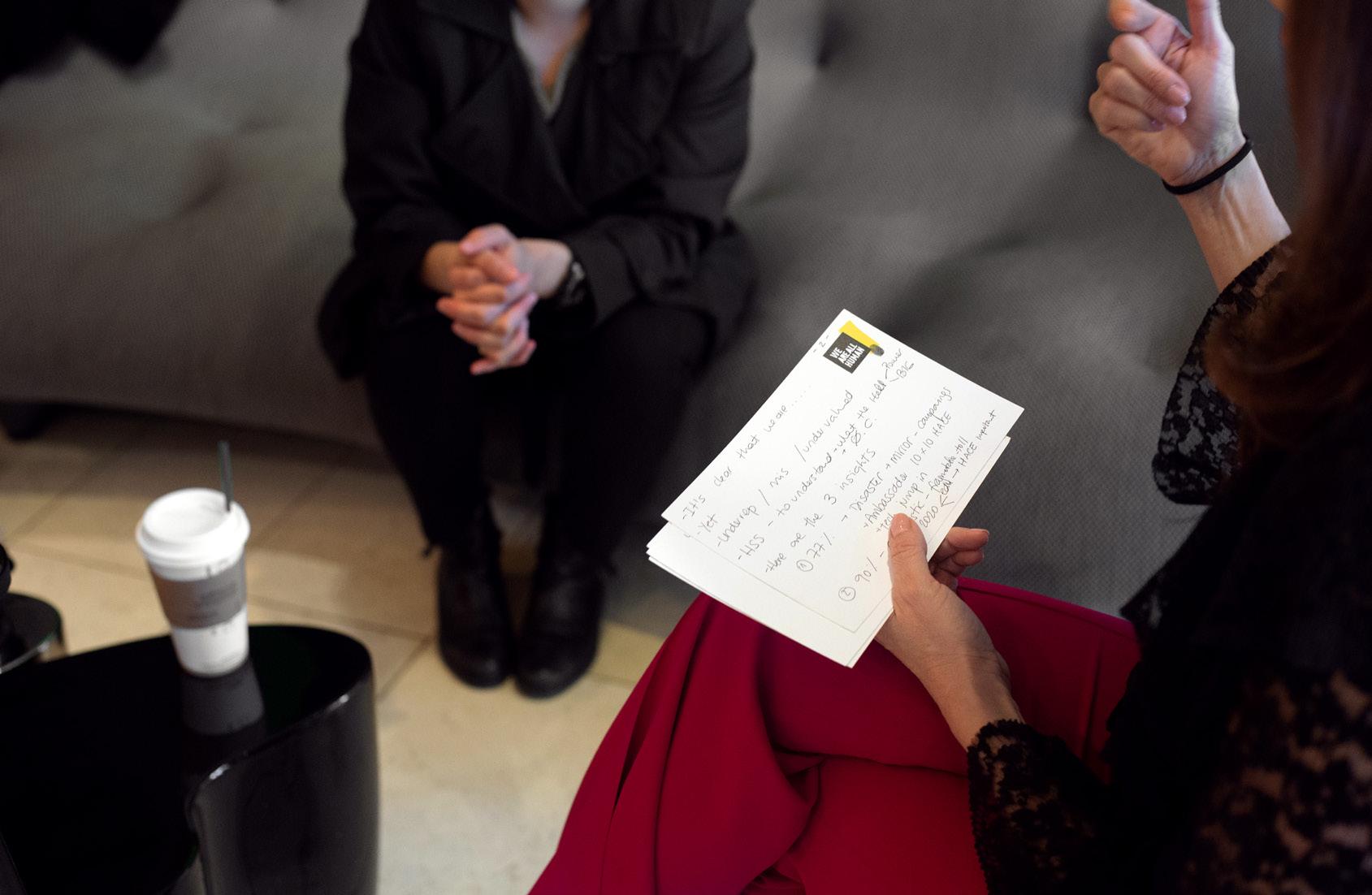
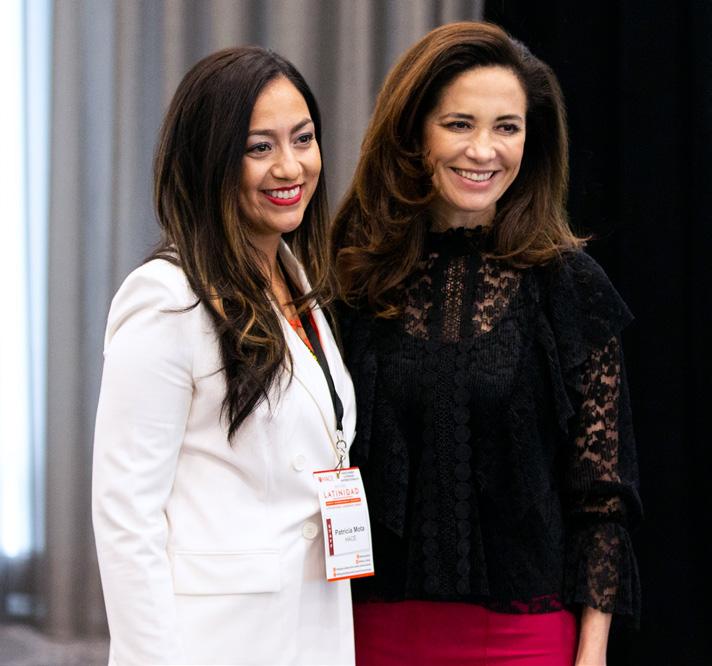
10:33 AM
After doing a walk-through of the venue that will host her foundation’s Hispanic Leadership Summit the following day, Claudia practices her keynote speech for the HACE luncheon. Her tips for public speaking? “First, address and connect with the audience, then tell a personal story about yourself, deliver your message with one to three points you want to make, then close it with something inspirational.”
11:07 AM
 Claudia meets with Dr. Robert Rodriguez, founder and president of DRR Advisors, to coordinate efforts in uniting the Latino community.
Claudia meets with Dr. Robert Rodriguez, founder and president of DRR Advisors, to coordinate efforts in uniting the Latino community.
14 A Day in the Life
1:04 PM
“This is our time. There is no better time,” she says during her keynote address. “Hispanics have never been stronger. However, we’ve also never faced so many political pressures. This community needs to be united and it needs to unite now.”
12:56 PM
At HACE’s summit luncheon, Claudia is touched by the words of the speakers preceding her keynote address. “Being able to speak up for the issues that matter is a privilege,” she says. “I want to use my voice to remind us that we are all part of the same human family.”
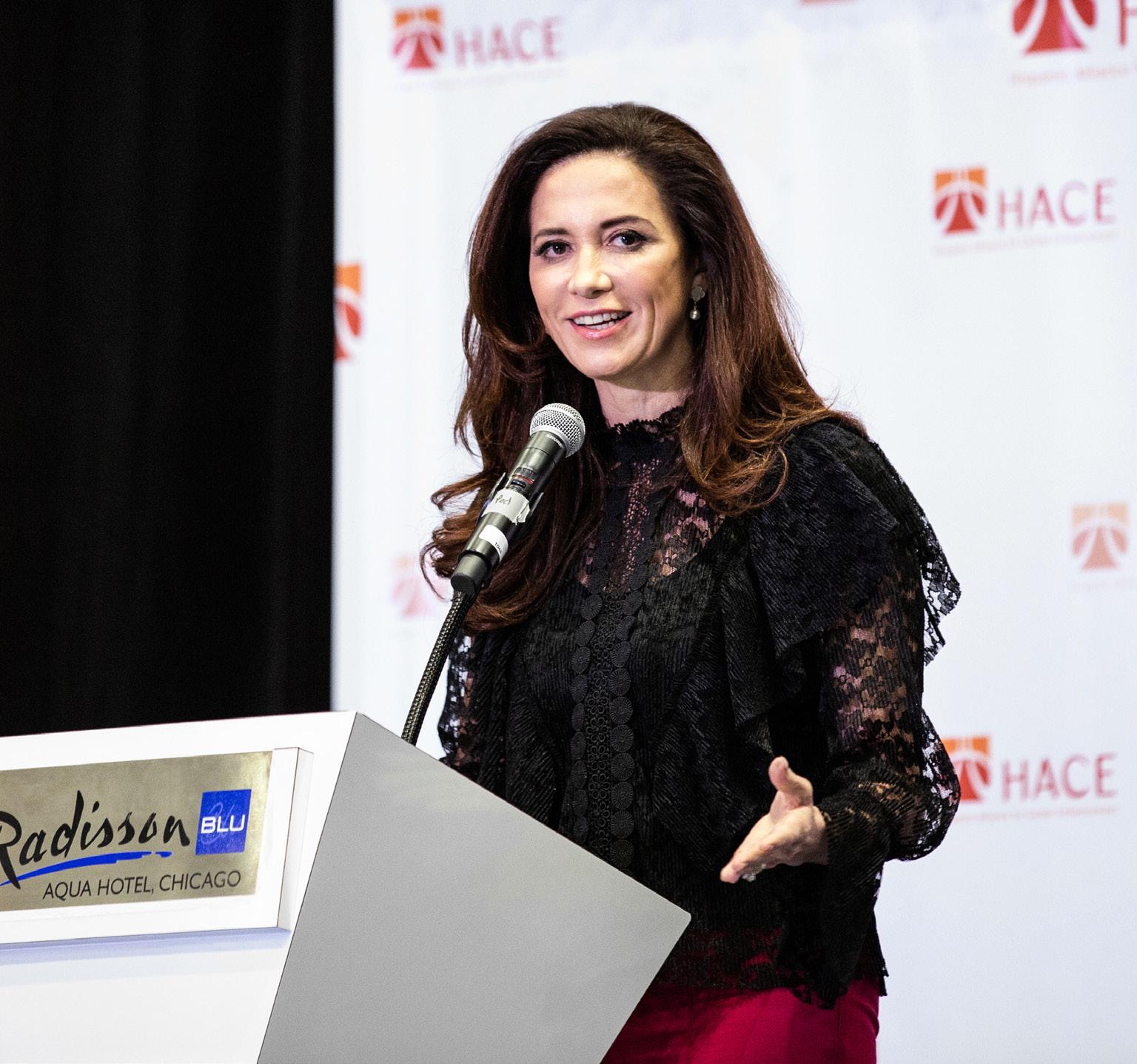

15 Hispanic Executive
Featured Contributors
Ruben Navarrette is a syndicated columnist with The Washington Post Writers Group, author of A Darker Shade of Crimson: Odyssey of a Harvard Chicano, and host of the podcast Navarrette Nation. Read his interview series, Conversations at the Top, on p.74.
Cid Wilson is the president and CEO of the Hispanic Association on Corporate Responsibility (HACR). He entered the role in July 2014, bringing more than twenty years of corporate finance and Wall Street equity research experience. He manages a staff of talented and dedicated professionals and works closely with corporate board members, Hispanic organizations, and corporate partners around the country to increase the representation of Hispanics at all levels in corporate America. Additionally, Wilson directs programs and initiatives aimed at encouraging Fortune 500 companies to include Hispanics in the areas of employment, procurement, philanthropy, and governance.
A proud Dominican American with Bergen County, New Jersey, roots, Wilson has interest in serving the community, which has been exemplified through board memberships with leading minority advocacy groups, including LatinoJustice PRLDEF (formerly the Puerto Rican Legal Defense & Education Fund), the National Council of La Raza (now Unidos US), and Dominicans on Wall Street. Read Wilson’s guest editor letter on the importance of giving back on p.86.
Creative
VP, Creative
Kevin Beauseigneur
Director, Editorial
Kevin Warwick
Director, Design
Topher Ellsworth
Managing Editor
Kathy Kantorski
Senior Editor
Frannie Sprouls
Editors
Melaina K. de la Cruz
KC Esper
Hana Yoo
Staff Writers
Sara Deeter
Billy Yost
Contributors
Ruth E. Davila
Russ Klettke
Bridgett Novak
Lior Phillips
Rhiannon Root
Paul Snyder
Julia Thiel
Stephanie Zeilenga Designer
Topher Ellsworth
Photo Editors & Staff Photographers
Cass Davis
Gillian Fry
Production Assistant
Andrew Tamarkin
Corporate
CEO & Publisher
Pedro A. Guerrero
Chief of Staff
Jaclyn Gaughan
VP, Sales

Kyle Evangelista
VP, Hispanic Division

Vianni Busquets
Senior Events Manager
Jill Ortiz
Senior Director, Finance
David Martinez
Director, Client Services
Cheyenne Eiswald
Senior Client Services Manager
Rebekah Pappas
Director, Talent Acquisition
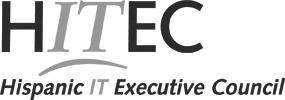
Elyse Schultz
Talent Acquisition Manager
Haylee Himel
Director, Strategic Partnerships
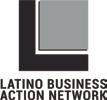
Krista Horbenko
Director, Business Development
Jenny Vetokhin
Director, Strategic Accounts
Taylor Frank
Senior Director, Sales
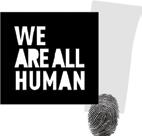

Ben Julia
Sales Training Manager
Alexa Johnson
Content & Advertising Managers
James Ainscough, Allyssa Budjoso, Norman Edwards, Nicole Haas
Hispanic Executive® is a registered trademark of Guerrero, LLC.

©2020 Guerrero, LLC. guerreromedia.com
Reprints
Reprinting of articles is prohibited without permission of Guerrero, LLC. Printed in China. For reprint information, contact Reprints & Circulation Director Stacy Kraft at stacy@guerreromedia.com.
Industry Partners
Hispanic Executive is published quarterly by Guerrero, LLC. To subscribe, visit www.hispanicexecutive.com/subscribe. For editorial consideration, please email info@hispanicexecutive.com. By submitting a letter, you agree to let us use it, as well as your full name, city, and state, in our magazine and/or on our website. We may edit for clarity. Hispanic Executive, 825 W. Chicago Ave., Chicago, IL 60642, 312-447-2370. 16
Masthead
MIS SION Mission
When one’s work makes an impact in the community, it transcends employment and becomes a calling. These executives have answered their call.
18 Bruny Rios, Dell
24 Rebecca O’Mara, Grundfos
30 Raul Vazquez, Oportun Inc.
Be Flexible and Pay It Forward
BY WILL GRANT
As senior vice president of global revenue, Dell’s Bruny Rios believes in the power of being adaptable
18 Mission

Revenue Dell KOREY HOWELL
Bruny Rios SVP of Global
When Bruny Rios takes a sip of coffee, her childhood is not far from her mind. As children, she and her brother were given a giant container by her father to fill to the brim with coffee beans. Together they spent hours picking them in their native Puerto Rico. Though her family was technically poor, Rios says she was never aware of that in her childhood. “I grew up in a vast piece of land that my brother and I used as a playground,” she explains, adding, “I never had a sense of necessity.”
Spending days on end picking coffee beans seems like it would have provided enough reason to put Rios off the stuff for the rest of her life, but she says it’s absolutely the opposite. “I drink coffee daily,” Rios says cheerfully. “When people talk about coffee, I’ll always have an opinion.” She’ll even occasionally share her stories of working her family’s coffee farm.
“We learned very early on that anything we wanted, we were going to have to work for it,” Rios says. “You can complain all day long and
look at all the things you may not have. But if you stop and look at what you do have, you’ll find it’s a lot and with it, endless possibilities.”
She believes that her upbringing is part of the reason she’s currently senior vice president of global revenue at Dell, a company she’s now been with for nearly two decades and one that’s an instantly recognizable name in technology. “It’s not something that I think about too much, but growing up that way made me resilient and adaptable,” Rios says. Her adaptability fits well with Dell, which Rios says is not only constantly innovating but has evolved immensely over the course of its history.
Rios came to the US in 1993, following her husband who was serving in the military. “It was a complete change in my life; it was an entirely new environment that was unfamiliar and challenging,” Rios says. But it was also exhilarating.
Having to adapt to a new situation, she found her own flexibility empowering. It paired well with a strong desire to succeed, born
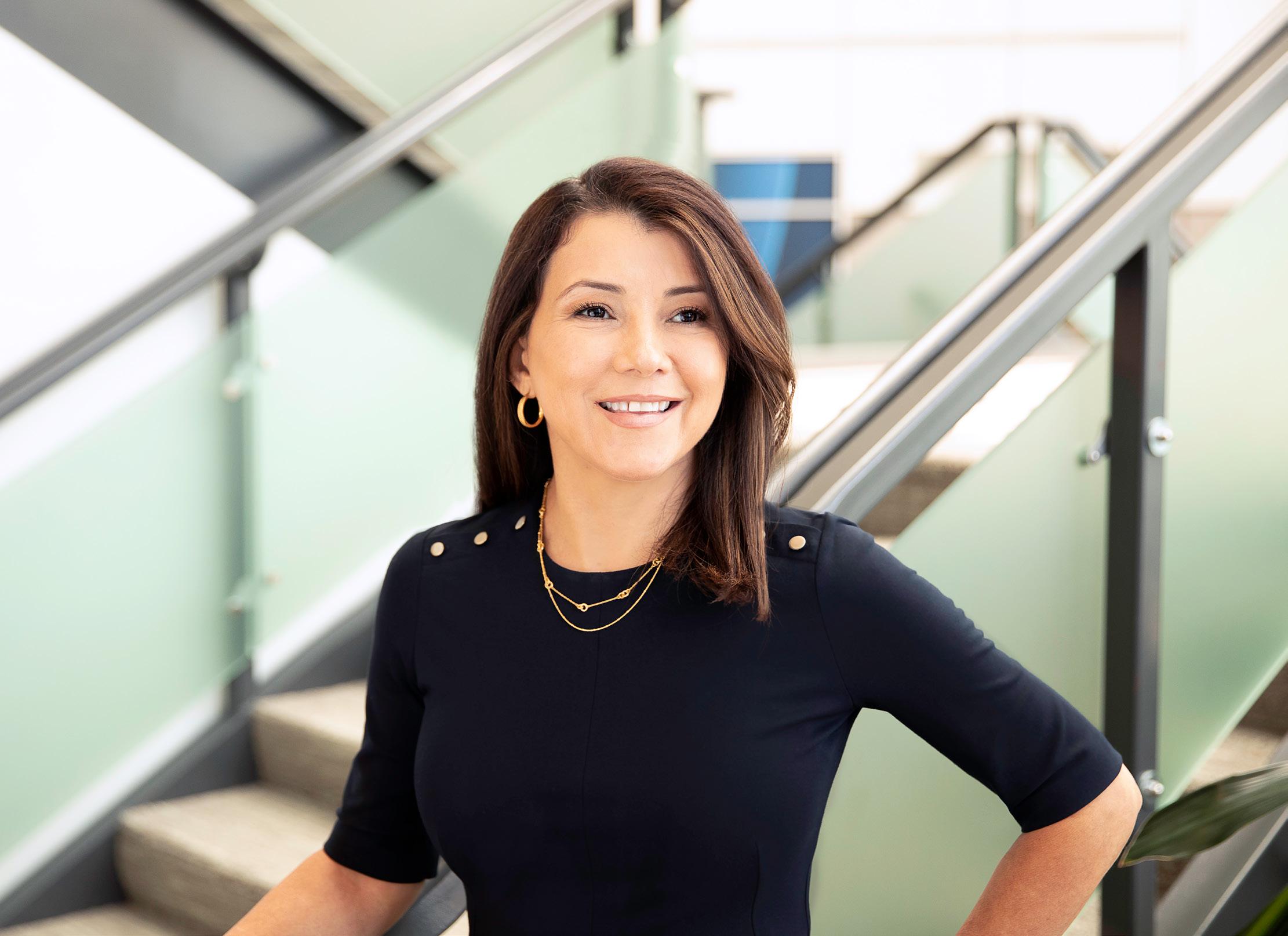
KOREY HOWELL 20 Mission
from her family’s own struggles. Rios eventually went to work for Dell Financial Services (DFS), then a developing arm of the much larger parent organization. “It provided me with key opportunities, and I quickly volunteered to lead a major initiative that landed me in the corporate offices,” Rios says. “I have to tell you, at that stage of my career, it was certainly a project beyond my capabilities.”
It didn’t stop Rios. “I knew from previous experiences that I would thrive in this new environment and just had to look at it as an opportunity,” Rios says. “That’s one of the best things about working at Dell—it’s the perfect playground to challenge yourself and develop your career to go as far as you want to take it.”
After finding success at DFS, where she was learning and building a reputation, she went on to join Dell’s corporate accounting team, where she began a leadership and expansion role in charge of the entire corporate function including reporting, policy, M&A, and treasury. She now continues her leadership in the global revenue function of Dell.
Rios is no stranger to wide-scale transformative initiatives. One of her largest projects concerned the 2016 combination of Dell and EMC Corporation that eventuated with Dell becoming the world’s largest privately controlled company. The combination meant addressing countless overlapping projects and processes, while working to embrace the best of both company cultures, which Rios says were each strong in their own ways. “You’re working to build a trusting environment where people can share and collaborate,” Rios says. “That’s where the work truly begins, not ends.”

Outstanding leader. Outstanding vision. At Ernst & Young LLP, we value every opportunity to celebrate and support outstanding leadership. Congratulations to Bruny Rios with Dell Technologies on her business achievements and the legacy that she is creating. Visit ey.com © 2019 Ernst & Young LLP. All Rights Reserved. SCORE no. 06345-191US ED None.
21 Hispanic Executive
“While there are a lot of tactical processes to continue to work on, the bottom line comes down to this: if we believe in the mission we have, everything else will follow.”
MENTORING AND ELEVATING LATINOS
Bruny Rios is passionate about mentoring at Dell and enables change via the Latino Connection employee resource group. Mentoring young Latino professionals is close to Rios’s heart. “We have similar culture and experiences that bind us together,” she says. “There’s a level of authenticity and transparency that makes the process special for me in that we’re able to learn from one another.”
Rios says that telling her own story is important to empower young Latino professionals to “work harder than anyone else.”
She is also a vocal promoter of D&I initiatives at Dell. “I’m extremely grateful to work at Dell because they’re so obviously committed to those initiatives,” Rios believes. “I would love to see more Latinos in my position across corporate America. Diversity brings diversity, and that’s what we’re doing and working to continue at Dell.”
“The Dell-EMC combination was one of the largest and most complicated technology deals ever,” says Adam Reilly, Deloitte lead M&A advisory partner. “Bruny’s strong leadership and clear-eyed decision-making—despite an environment of competing priorities and constantly evolving information—was critical to both the consummation of the deal and the success of the integration.”
Along with the EMC combination, two major divestitures were occurring simultaneously in addition to Dell’s return to the public market in 2018. All of this created a rapidly evolving environment with a pace to match. “It really helped strengthen our adaptation muscle; we know how to get things done.”
Working through constant change and managing her own growing team has offered challenges for Rios, but a relentless sense of optimism permeates the SVP’s vision for the future. “While there are a lot of tactical processes to continue to work on, the bottom line comes down to this: if we believe in the mission and trust each other, everything else will follow.”
“Bruny exemplifies leadership, confidence, inclusivity, and collaboration,” says Brian Stevens, global coordinating service partner at EY. “Always willing to roll up her sleeves to achieve a desired outcome, Bruny has a unique talent for rallying those around her—integrating others in decision-making and in achieving a sustainable solution.”
Rios’s leadership ethos at Dell is tied to her days in Puerto Rico. “I pride myself on being approachable and flexible,” Rios says. “A leader is responsible for identifying various work styles and creating a space where individuals can do what they do best.”
Rios is direct when she needs to be but maintains that her team wins together and loses together, along with all that comes between. “There isn’t a single person that’s successful if the team is not,” she asserts.
The SVP measures her own successes by the opportunities to facilitate the career growth and development of those around her. “It’s very fulfilling to be part of other people’s success,” she says.
With that in mind, her own goals can best be summed up by something her mother used to tell her. “It’s pretty simple: no matter what you do, it’s important to be happy. And for me, that’s learning. If you are learning, you’re growing.”
Rios’s own focus on mentoring future Latino leaders is to ensure that another young, driven Puerto Rican girl who’s off picking coffee beans day in and day out will eventually be rewarded with wider opportunities. “I just want to pay it forward, and Dell has made that very easy to do.”
22 Mission

Copyright © 2019 Deloitte Development LLC. All rights reserved. Individuals working together towards one goal can make a strong impact. At Deloitte, our success is the result of teamwork and our multidisciplined, multidimensional approach to business and serving our clients. www.deloitte.com Making a real impact
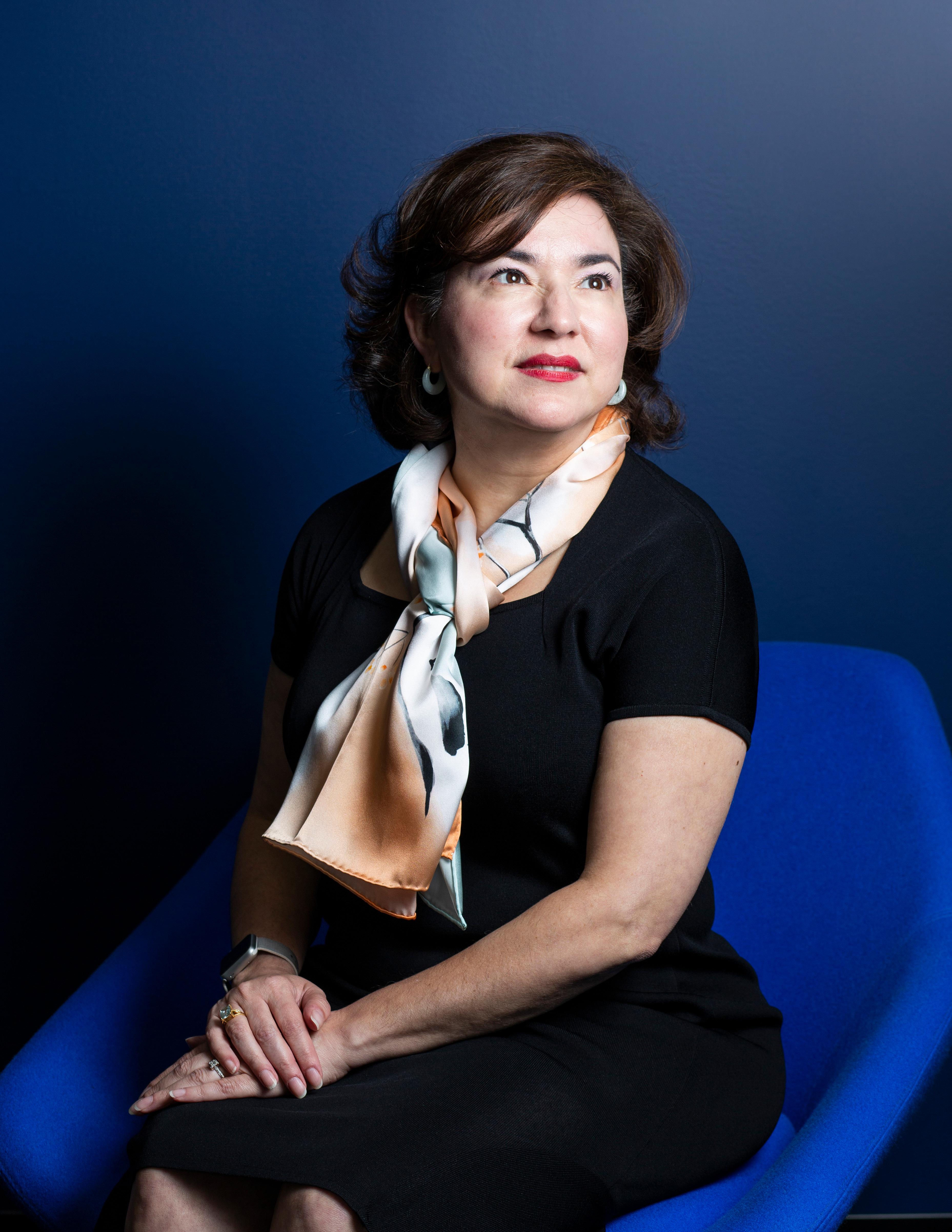 Rebecca O’Mara VP of Service Grundfos
Rebecca O’Mara VP of Service Grundfos
Recounting a Path to Educate
BY SARA DEETER PHOTOS BY CASS DAVIS
As the vice president of service at Grundfos, Rebecca O’Mara encourages women to maximize the impact of their work—a practice with which she’s very familiar
25
Executive
Hispanic
PURSUING A PASSION
According to Rebecca O’Mara, the importance of personal passions cannot be discounted. “Singing is my outlet and my salvation,” O’Mara says. “I really believe that people should have hobbies, or just things they love to do. I sing in a band, and I play the piano.”
And O’Mara isn’t going to let anyone stand in the way of her love of singing. “I’ve been known to sing with the mariachis at any venue—even when my daughter was a teenager and would get embarrassed and beg me not to,” O’Mara chuckles. “And now, she’s a singer too.”
At the beginning of her career, O’Mara was not entrusted with particularly high-profile positions. As a bank teller in high school, she was not even allowed to touch any money. For more than a year, she counted food stamps in a back room. Later, after obtaining an undergraduate degree in finance, O’Mara found a position in the investment department at Harris Bank in downtown Chicago.
“I was basically a secretary with a bachelor’s degree,” O’Mara says. “It was the 1980s, and there were very few opportunities for women. There were no women traders on the trading floor. There’s nothing wrong with being a secretary; it’s quite a noble profession. But I didn’t want to be a secretary—I dreamed of being an executive.”
Knowing she wouldn’t get very far in that environment, O’Mara went to work for Illinois Bell (now AT&T). “I was a line manager and had to learn how to climb telephone poles,” O’Mara says of her initial
job duties. “I installed phones on the North Side of Chicago, out in the street with a truck and ladder. I was with the company for ten years and worked my way up. By the 1990s, I was one of the youngest executives in the company.
“But then the whole world changed,” O’Mara continues. “The regulations changed, the technology changed, and the industry consolidated as one company bought another and another. So, I decided to go and find a new path.”
O’Mara’s drive, as well as the connections she made while serving as a volunteer coach, mentor, and speaker with Hispanic organizations like the Hispanic Alliance for Career Enhancement (HACE), landed her a position as director of global sales and marketing at Caterpillar.
Located in a rural region of Illinois, Caterpillar was struggling to recruit people, particularly diverse candidates. To help solve
26 Mission
Rebecca O’Mara, vice president of Grundfos’ service and solutions business unit in the Americas, literally climbed her way to the top—it just took a little time to get there.
PARTS REPAIR EXPERTISE

GET IT ALL WITH GRUNDFOS
Grundfos services all pumps regardless of brand, size or location. We also offer certified spare parts for all the brands we manufacture Grundfos, Yeomans, PACO, Sewer Chewer, Chicago Pump and Morris. Our technicians provide on-site and in-shop repair through our network of service centers and Authorized Service Partners. Get everything you need to reduce downtime and increase efficiency with Grundfos Service & Solutions.
Learn more at grundfos.us/service
SERVICES OFFERED
INSTALLATION & OPERATION
REPAIR & MAINTENANCE
ENERGY OPTIMIZATION
MONITORING & CONTROL
GENUINE OEM SPARE PARTS & SERVICE KITS
In her first year at Grundfos, Rebecca O’Mara, pictured here on a training floor at the manufacturer’s location in Aurora, Illinois, grew her unit by double digits percentage-wise.
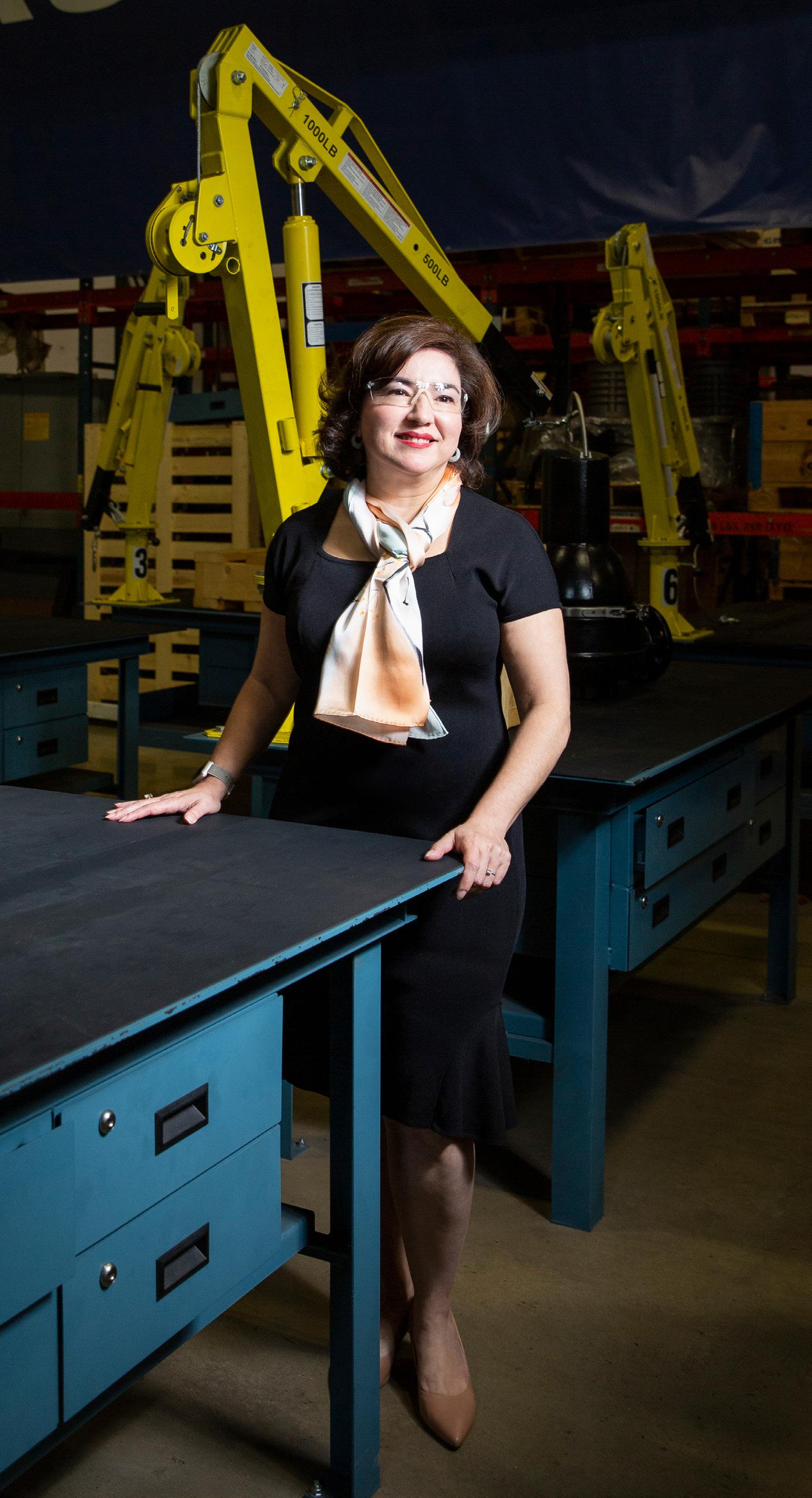
that problem, O’Mara founded the company’s first employee resource group (ERG), the Caterpillar Latino Connection. She was the president of the organization between 2005 and 2007.
“I wanted to create a place for people from all different Latin American backgrounds to feel an affinity,” O’Mara recalls. “But I also wanted to make sure that Caterpillar understood that we were a benefit to them. As a business leader, I knew that we had to show facts and data, and Caterpillar Latino Connection supported recruitment events, provided training for our members, and raised money for nonprofits. We were welcoming to all.”
O’Mara’s leadership of the Caterpillar Latino Connection clearly made an impression. Soon after, other ERGs formed including a women’s organization and LGBTQ group.
As she has continued in her career, O’Mara has remained unafraid of carving out opportunities for herself and others. “You never really lose your drive and ambition—it just changes
28 Mission
as you get older. You focus more on helping others and making a positive impact in the world,” O’Mara says. “I’m always striving and reaching for ways to give back my knowledge and insights on my successes and failures.”
In her current role at Grundfos, O’Mara does just that. She makes a point of encouraging other women to maximize the impact of their work by taking on profit and loss management roles. “There are so many super, super successful women out there,” O’Mara explains. “But there aren’t too many doing full P&L management. The decisions you make in those roles can affect hundreds, if not thousands of people. They can affect the return on investment for investors. It’s a powerful role.”
Given the historical and often unconscious biases affecting women in those roles, O’Mara has her work cut out for her. But she doesn’t mind. “I like to do things that are hard and messy,” she says. “I’m always thinking about how I can use my voice with male colleagues to help them see a different perspective.”
O’Mara has not always had the same kind of support that she provides as a leader and mentor. “In a high school drafting class, I went to the teacher and said, ‘This is getting too hard, I’m going to quit.’ And he just said, ‘OK.’ I was getting all As in the class, but it didn’t seem to matter,” O’Mara remembers.
At Grundfos, O’Mara works to create an environment that allows her team to come up with great ideas and to fail when they need to. “I tell my people all the time, ‘Fail small and fail fast, then regroup, adjust, and transform.’ That’s where you really learn, when you make mistakes,” she says.

That philosophy has led O’Mara to great success, enabling her to grow her unit by double digits percentage-wise during her first year at Grundfos. “I encourage my team to try out their ideas,” O’Mara says. “Do you think a rental pump is a good idea in your market? Do it. Do you want to start a training program? Start small. Do you need help with pricing? Do it—see how it goes, build on it, and I’ll help you if you need it. My job is to remove the roadblocks.”
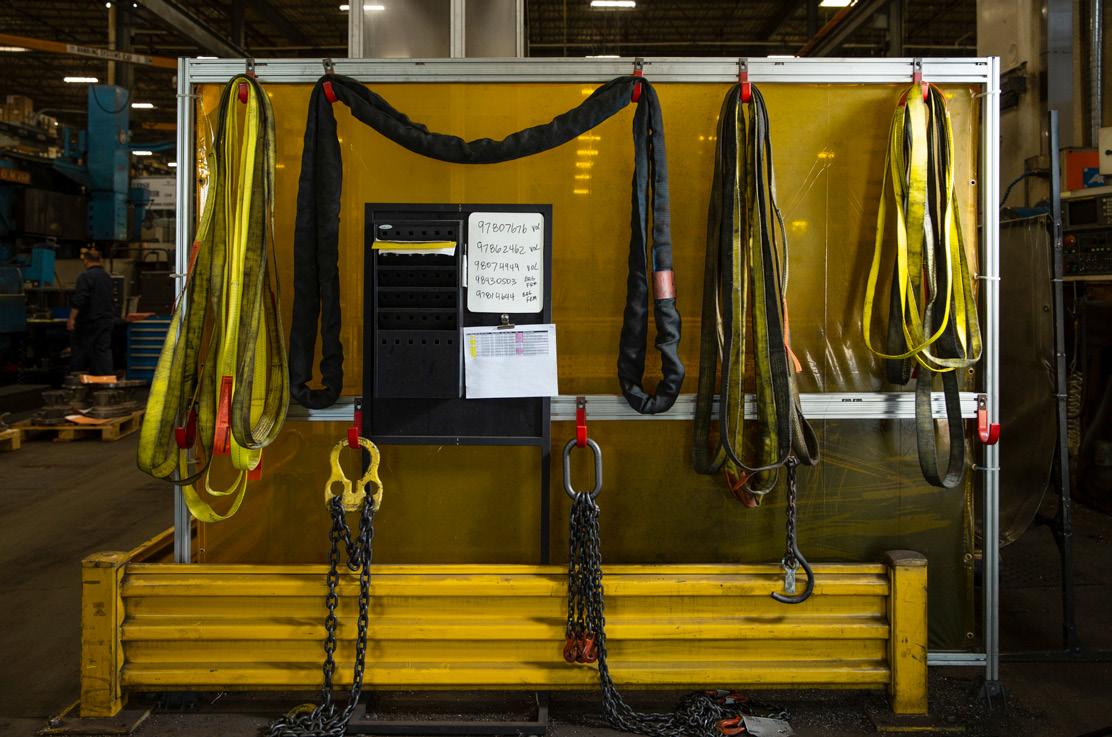
29 Hispanic Executive
“I tell my team all the time, ‘Fail small and fail fast, then regroup, adjust, and transform.’ That’s where you really learn—when you make mistakes.”
All Hands on Deck at Oportun
BY WILL GRANT
CEO Raul Vazquez taps into the power of community and compassion to expand Oportun’s client base and enrich company culture
30 Mission

ERIN LUBIN PHOTOGRAPHY
Raul Vazquez CEO Oportun Inc.
A “PEOPLE-DRIVEN VIEW
OF
BUSINESS” has always been Raul Vazquez’s philosophy. A well-respected leader in search of his next career challenge, he joined Oportun seven years ago because of a deep belief in the company’s mission to empower low-to-moderate income individuals to build a better future by helping them establish a credit score. But he was also intrigued by the opportunity to bring his expertise and team approach to a new industry where he believed he could make a difference.
At Oportun, Vazquez leads a company that is leveraging technology and innovation to provide access to affordable credit to the estimated 100 million people in the
ic milestones within the sector, and have led to a number of awards and accolades for the company’s ability to serve a historically overlooked segment of society.
Prior to joining Oportun, Vazquez spent nine years with Walmart in a variety of roles, including as CEO of Walmart. com and later as executive vice president of Walmart stores across twenty-three states. His tenure at Walmart provided the core insights and lessons that motivated his search for a new challenge and ultimately informed the foundation of his “people-driven” philosophy at Oportun.
“One reason why I chose Oportun is because I like learning new things. So to go
Throughout his career, Vazquez has honed his philosophies through a wide range of experiences that have helped shape him into a leader. As a father, husband, son, and boss, he has learned the importance of being willing and open to work with others, being receptive to their thoughts and feelings, and being present and open to learning from any situation or individual. At Oportun, he applies these lessons to unite and guide his team. “I like to have an all-hands approach, which means treating everyone like a peer and having a very open dialogue,” he says.
This commitment was evident from the very beginning of his time at Oportun. Early on, Vazquez recognized the need to
United States who are shut out of the financial system because they don’t have a credit score or have been mis-scored by traditional credit bureaus. Over the past seven years, he has helped nurture a sense of mission at the company, aligned and mobilized the entire organization, and applied technology in new ways to fuel remarkable growth and impact.
Oportun has helped 760,000 people establish a credit score and has provided over 3.2 million affordable small dollar loans that have saved customers an estimated $1.5 billion in interest and fees. Those are dramat-
into financial services, which was a brandnew industry for me, was appealing,” Vazquez explains. “When I saw elements of technology and retail in this business, I thought not only was I going to gain something from learning, but I would be able to contribute in terms of the areas of technology and scaling in retail. I’d be able to help address some of the challenges that Oportun was facing.” Plus, as a Latino business leader and CEO—one who recognizes the gravity of that role—he is quick to embrace the impact his leadership has on a company’s community and culture.
unite every member of the company under a common goal. While its mission was alive and well, he says that Oportun needed to tighten operationally in order for that mission to grow and thrive. He knew that he had to first create consensus and gain buy-in across the organization before he could apply the tactical and technological steps necessary for the company to scale.
“We had to learn to collaborate differently, recognize each other’s strengths, and understand that what we could do together was greater than what we could accomplish
32 Mission
“Instead of people being able to see one part of the puzzle, they could see the whole puzzle together.”
alone,” Vazquez says. “We were very transparent about the challenges we were facing and the outcomes we wanted to create. Having the clarity of a specific goal and shared purpose was helpful because it allows conversations with individuals and teams to be in service to that goal.”
After Vazquez rallied his team, Oportun was able to bolster its profitability, expand its customer base to more than 1.5 million people, and enrich its company culture. Since overcoming Oportun’s initial operational challenges, Vazquez has continued efforts to unite his team by hosting monthly “All-Hands Meetings,” which function like open forums that encourage all employees to come together to hear about company updates and voice their opinions or ask questions. Vazquez especially knows how crucial it is to hear every one of those voices. The results speak for themselves as Oportun continues to expand and reach new growth milestones in service to its customers.
“We sought to make decisions together as a team, and that became a very powerful practice, because instead of people being able to see one part of the puzzle, they could see the whole puzzle together,” Vazquez says about the meetings.
To give clarity around the company’s mission and goals, Oportun updated its values to include six critical elements that guide everything the company does: innovation, courage, empowerment, service, excellence, and care. “In updating the values, we really gave a lot of thought to the language
that shapes our behavior,” Vazquez explains. “We thought carefully about how to describe each of them, then we sought to demonstrate them. We believe that leadership is something you do by example, so we try to live by those values every day.”
While he says all of the values are important to the integrity of the company, “courage” tends to be the one that stands out. “Everything starts with courage—to be innovative, admit that there is a better way, or open yourself up to criticism,” he says. “You have to have the courage to envision people doing things differently or better than you. It even requires a bit of courage to empower someone else and set your ego aside so that you can be of service.”
For Vazquez, excellence and compassion go hand in hand with being a courageous leader. He considers the perspectives of all members on his team, regardless of their rank. Early in his childhood, he learned from his family in Mexico that there is no blue or white collar—only one community. And at Oportun, Vazquez has made sure his community works toward each objective as a whole rather than as individual parts.
“My job is to be of service to others,” he says. “As a consequence, I need to keep growing and improving—how can I become more wise, compassionate, and effective? Compassion is the combination of empathy and the desire to act. So, when I think about the future, it’s about us making greater strides in achieving our mission so we can be helpful to more people.”
Global event
Middle-market focus
Deloitte’s Entrepreneur Summit offers privately held businesses the opportunity to engage in one-on-one meetings with approximately 200 investor groups which, in aggregate, manage in excess of $2 trillion.

Join highly successful business owners, leading investor groups, senior executives, and industry specialists for a learning and networking event like no other.
Learn how you can attend by emailing John Lindsey at jlindsey@deloitte.com
www.deloitte.com
Copyright © 2019 Deloitte Development LLC. All rights reserve
33 Hispanic Executive
“It even requires a bit of courage to empower someone else and set your ego aside to be of service.”







Extraordinary People. Extraordinary Stories. Subscribe Now hispanicexecutive.com/subscribe Tell Us Your Story hispanicexecutive.com/getfeatured
STRA TEGY Strategy
What is your secret to successful leadership?
The
impressive executives
and they are strategies
and the heart.
featured here share theirs,
that engage both the mind
John Campos, Acxiom
Julio C. Barrionuevo, FedEx 43 Arturo Carrillo, Bimbo Bakeries USA 46 Arivee Vargas, Vertex Pharmaceuticals 51 Rey Nunez, Greyhound Lines 54 Frank Galindo, Lincoln Educational Services
36
40
Driving Excellence by Never Settling for “Good Enough”
BY KC ESPER
At Acxiom, John Campos helps auto clients navigate the changing digital landscape of consumer marketing
36 Strategy
John Campos was raised in a “blue-collar-ish” family. His father’s parents immigrated to the United States from Mexico, while his mother’s family grew up on an Indian reservation in Kansas (where his grandmother still lives today). He was raised in an environment that celebrated and appreciated its roots, encouraging the hard work required to continue growing and challenging yourself. Campos learned a slew of lessons during his upbringing, but one from his father stands out and continues to guide him through his professional career: “never be content.”
37 Hispanic Executive
“If you are content with your work, you’re not improving,” Campos says. “This has evolved into my motivation to continue to develop and constantly take on new challenges for me and on behalf of my clients.”
Campos was the first member of his family—on both his mother’s and father’s sides—to graduate from college. After graduation, he worked at Country Companies for a few years before joining Acxiom as a contractor in 2000. While Campos’s initial role at Acxiom was a technical one, involving the development of a customer loyalty solution, by the time he was hired full-time in 2002, he had discovered his passion for helping solve client problems. His interest in engaging with clients, listening to their issues, and designing solutions continued to grow over the next twelve years in account management roles. Now, Campos stands as vice president and global head of automotive, where he uses his father’s advice to fuel his work and inspire his team members.
Throughout his tenure, Campos has witnessed considerable developments in the marketing strategy of automotive clients. The path to auto purchase has changed dramatically in this digitally disrupted landscape. Consumers still visit dealerships, but their path to purchase also includes online research, reviews, and comparison. The challenges for the automotive industry are to recognize and understand the customer across all channels of engagement, to deliver a frictionless buying experience, and to provide an all-around satisfying purchase and ownership experience that consumers desire.
Campos’s team helps Acxiom’s automotive clients make consumers’ experiences engaging, relevant, and seamless throughout the purchase and ownership journey. Doing this successfully requires creating a unified data framework through which automotive clients can harness digital and offline data to fuel the great marketing technologies that are available today to create a better customer experience.
“By bringing together all data in a unified data layer, our clients can see the full picture and better understand the consumer’s interest and needs,” Campos explains. “That helps them deliver a more relevant message to them.” If a consumer previously purchased an SUV, for instance, clients can deduce that he or she might have a growing family and require a vehicle with more space. Acxiom can then use this insight to help the auto client develop a strategy to cater advertisements to their shoppers. Campos says, “We help our clients use these data elements to get to know their customer and drive insight that can be leveraged to help create a more productive consumer experience.”
Before the explosion of channels, traditional automotive marketing strategies involved a much more hands-on approach. For example, automotive manufacturers would reach out to a known selection of customers via mail, requesting that they visit dealerships to test drive vehicles. However, today the more contemporary method uses data-driven strategies to determine what kinds of consumers would be interested in specific vehicles, making the shopping experience more personalized to the individual.
38 Strategy
“Acxiom has remained focused on people-based marketing, even as technology has changed.”
Using data assets also helps Campos and his team add insight and inform clients on how to best promote offers and incentives through the various channels. Campos says that having more data and more technology brings both opportunity and challenge. The expansion of channels has created the potential for brands to deliver less personal experiences if they don’t use data to really understand their customers and prospects across digital and offline interactions.
Campos adds, “This is what Acxiom’s Unified Data Layer framework is all about; we assess how we can bring together the right data and technology to make digital and realworld experiences feel relevant and personal. At Acxiom, we’ve been focused on people-
based marketing for fifty years. As digital disruption has taken hold, it turns out this transformation has revealed Acxiom’s core strength: know your customer, through data and technology, to deliver customer experiences that matter. This is still true today, especially as the channels for engaging with customers have fragmented and expanded.”
The magnitude of Campos’s role still excites him every day: “The energy my team has to help top automotive brands achieve their goals inspires me, and it is helping Acxiom become the gold-standard for data-driven automotive marketing.” As a leader, Campos guides his team to embrace their roles as marketing strategy thought leaders and to continue pursuing ever increasing levels of
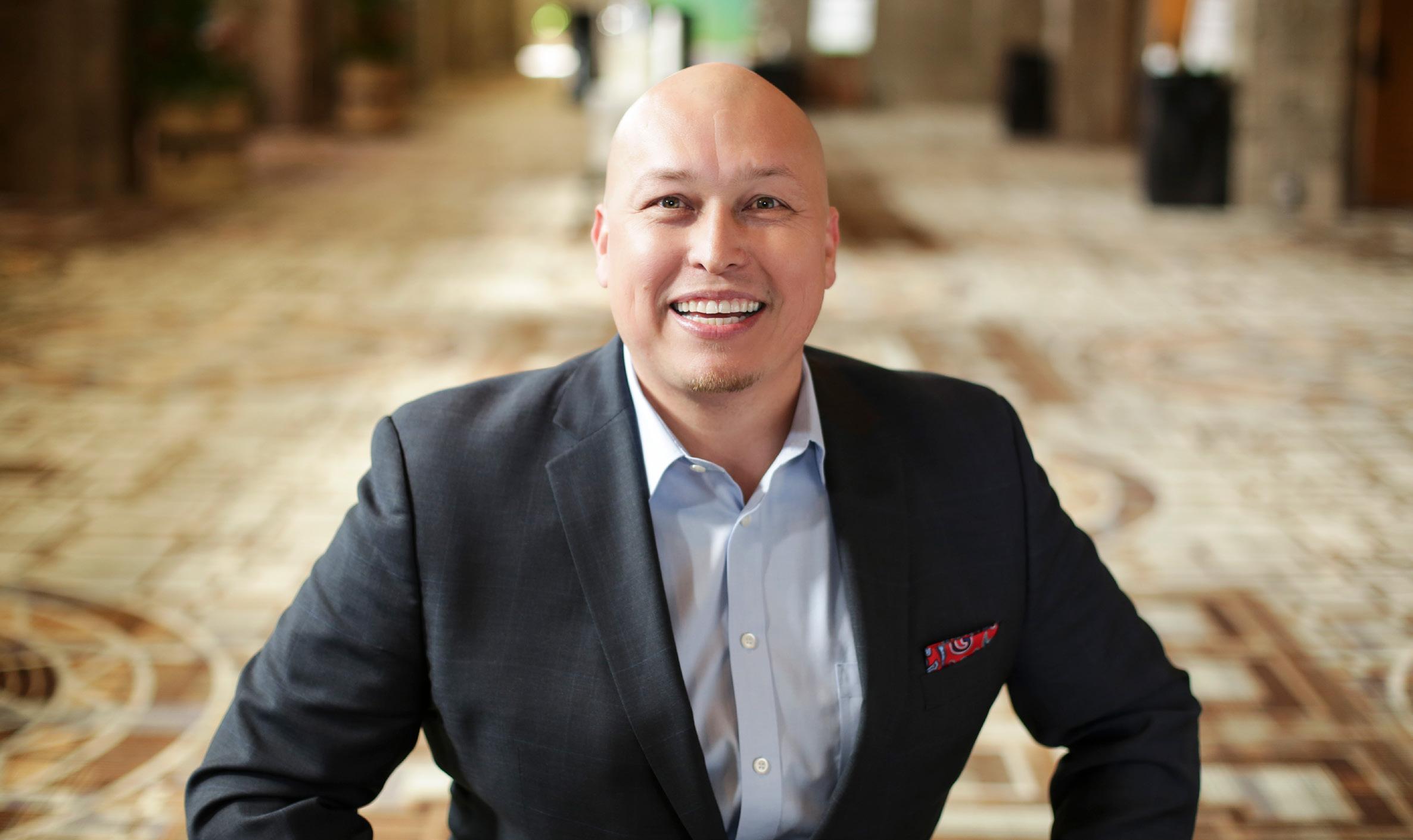 John Campos VP and Global Head of Automotive Acxiom
John Campos VP and Global Head of Automotive Acxiom
excellence. He encourages members to take calculated risks, work toward a greater goal, maintain an entrepreneurial mind-set, and treat clients with the same respect one would treat his or her own business. As marketing strategy and technology evolve, he inspires the automotive team to embrace and embody the same motivation he was given by his father: never be content.
“We need to push ourselves. I encourage my teams to challenge one another because that’s what creates the spirit of innovation. I want them to take on situations out of their comfort zone—don’t run away from them. The world is changing fast, so must we. You have to find that positive element and let it guide you through that change to the right place.”
PAUL VIEFHAUS 39 Hispanic Executive
Julio C. Barrionuevo on how he’s nurturing the growth of FedEx throughout Mexico, Central America, and the Caribbean
Dual Mind Delivery
BY BILLY YOST
IN FEBRUARY OF 2019, FedEx unveiled its SameDay Bot, an autonomous delivery robot that, as the company explains in a prepared statement, was “designed to help retailers make same-day and last-mile deliveries to their customers.” The bot program, which actually made its debut on The Tonight Show Starring Jimmy Fallon , began its pilot program this summer. As senior vice president of FedEx’s Latin America and Caribbean division, Julio C. Barrionuevo says that while delivery robots are not necessarily in his region’s purview quite yet, that type of innovation, which continues to push FedEx ahead, is part of the reason he has spent twenty-two years there. “I feel like we have a mandate to continue to develop new solutions for our customers,” Barrionuevo says. “The more we can innovate for our customers in ways that lower the cost for them, the more successful we will be.”
40 Strategy
Barrionuevo’s arrival at FedEx in 1997 was the perfect culmination of a series of set-up roles. With his industrial engineering degree in hand, Barrionuevo joined Eastern Airlines fresh out of school—and he figured that job would last him a lifetime. “At the time, the concept of full employment was much more prevalent,” the SVP explains. “I thought that was where I would retire.” Eastern provided great experience and growth, enabling Barrionuevo to earn an MBA while there. Unfortunately, the economic odds were not in Eastern’s favor, and the airline eventually dissolved—but not before its COO and Barrionuevo’s boss, Joseph B. Leonard (who later became CEO of AirTran), offered his young protégé some advice.
“Joe was the first instrumental executive influence in my life,” Barrionuevo says. “He said that while the finance people might often challenge us, if you really want to learn how the business operates, it’s where you should go work next.” The young executive took it to heart, taking on increasingly complex financial roles at Ryder System. Those courses of action were incredibly effective for Barrionuevo on two fronts. “My engineering background has always helped me solve difficult problems,” he says. “Finance has allowed me to break down every business opportunity into a few smaller drivers that we can rally and create visibility around.”
When a headhunter reached out to Barrionuevo about joining FedEx, the pitch was perfect. “They said ‘Your background is in planes and trucks. FedEx is planes and trucks,’” Barrionuevo laughs. “But it really was a great way to bring those prior experiences together.”
Currently, the SVP oversees forty-four of fifty countries/territories in Latin America, an area where FedEx has set its sights on cultivating massive customer growth. Just ten years ago, Barrionuevo says, instituting domestic service and creating supply chain capabilities in Mexico was merely a dream. Following the 2011 acquisition of the package-delivery
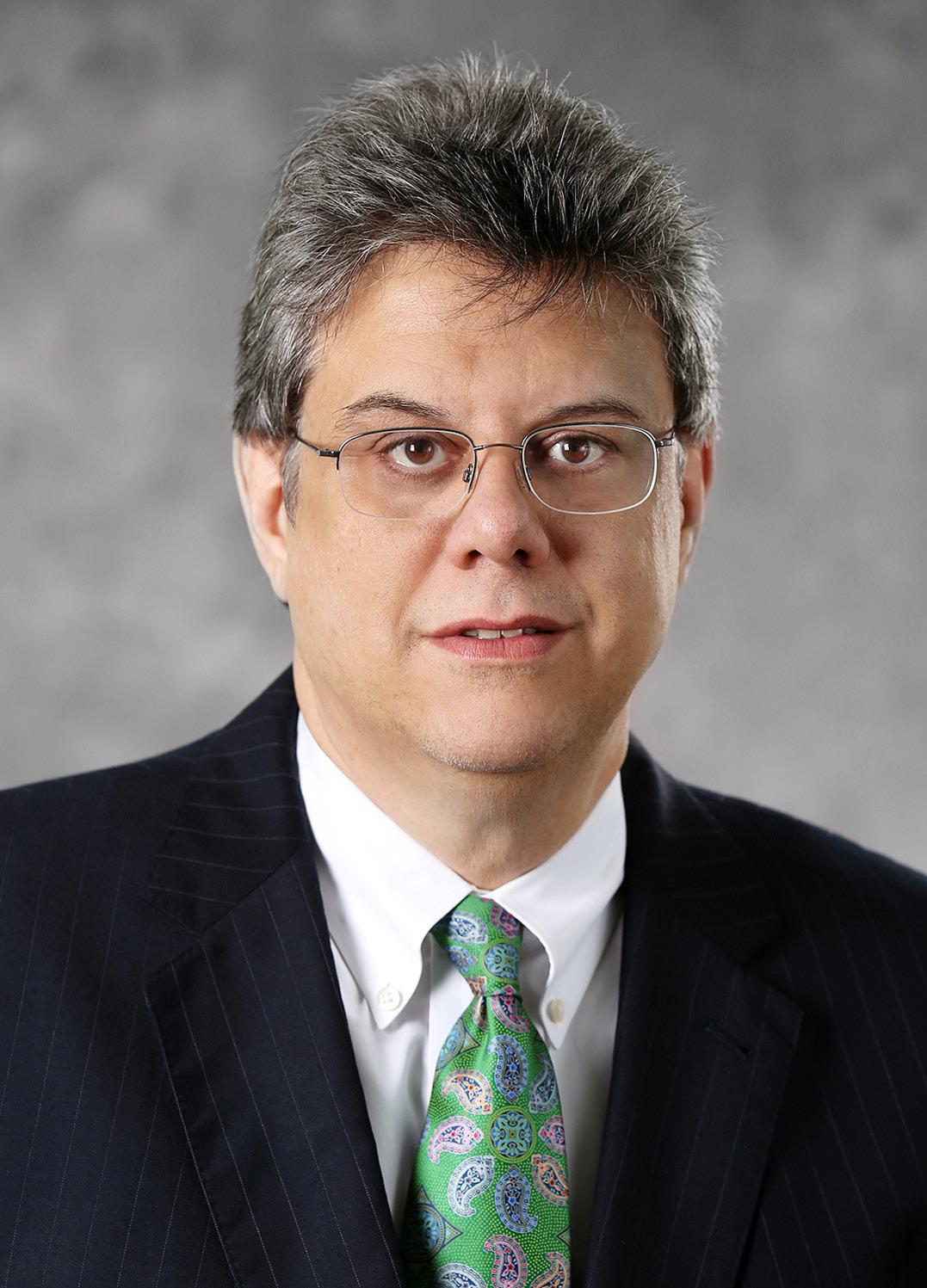
Barrionuevo notes that his focus is on finding ways to deliver the best possible service while lowering transportation expenses for FedEx’s customers.
Julio C. Barrionuevo
GORT PRODUCTIONS 41 Hispanic Executive
SVP of Latin America & Caribbean Division FedEx
TWENTY YEARS OF SERVICE
Julio C. Barrionuevo has been involved with St. Jude Children’s Hospital for practically as long as he’s been at FedEx. For nearly twenty years, the SVP has helped bring visibility to a hospital that he believes does an incredible amount of good for the Miami and Latin American communities. Not only did he cofound the FedEx/St. Jude Angels & Stars Gala, but in 2019, he also received a lifetime achievement award at their annual volunteer conference in Memphis for his contributions to the hospital.
service MultiPack, in addition to significant investment, FedEx is now a formidable force in the Mexican domestic market.
FedEx is also focused on expanding its Latin American retail presence. “More and more, what we’re looking to do is replicate the imprint we’ve been able to establish in our more stronghold countries like the US and Mexico,” Barrionuevo explains. “The more we create possibilities for our customers to be successful globally, the more successful we will be.”
Innovations like the FedEx Delivery Manager—which allows customers to customize home delivery to meet their schedules—is just now being introduced in parts of the Caribbean market. Still, Barrionuevo offers that the company spends significant periods of time mapping progress of goals for those economies, while finding ways to promote growth in the region.
Barrionuevo notes that his focus is on finding ways to deliver the best possible service while lowering transportation expenses for FedEx’s customers. Transportation and logistics is a competitive, high-growth area, and one that benefits from both his problemsolving acumen and financial mind-set. “We’re targeting significant growth over the next three to five years and have developed a road map of the major opportunities that will help get us there.”
And though his personal success has kept the senior vice president at FedEx for over twenty years of a career that spans close to forty, Barrionuevo says that talent development is where he experiences the most satisfaction. “When I leave this job I’ll ask, ‘How many people did I develop and mentor who are now or will be leaders in key roles?’ That really does become your legacy in the end. Other successes come and go, but this is what truly remains.”
42 Strategy
“When I leave this job I’ll ask, ‘How many people did I develop and mentor who are now or will be leaders in key roles?’ That really does become your legacy in the end. That is what truly remains.”
Bimbo Bakeries USA has taken Arturo Carrillo on a thirty-year journey that has spanned various positions and departments—and thousands of miles across international borders
“Ultimately, the consumers become the boss”
BY PAUL SNYDER
THIRTY YEARS AGO, on his first day at a Bimbo bakery in Guadalajara, Mexico, Arturo Carrillo felt an immediate connection with his new place of employment.
“I remember thinking, ‘Oh my God, this is where I want to stay,’” he recalls.
Born and raised in Guadalajara, he has “stayed” with Bimbo, although the term is somewhat relative. When he started in 1989, he was a mechanic, working in the bakery’s maintenance department. At the time, Grupo Bimbo had only a few bakery locations around Mexico. Now, Grupo Bimbo has 136,000 employees and 198 locations across 32 countries. Over three decades, Carrillo has also grown with the company, moving from mechanic, to supervisor, to manager across a variety of departments— production, environmental, quality, sanitation, food safety, and crisis management. Today, he is senior director of quality, food
safety and regulatory—nearly 2,500 miles away from Guadalajara in Bimbo’s US headquarters of Horsham, Pennsylvania.
A lot has changed for Bimbo, but the things that attracted Carrillo to the company in the first place remain.
“What I really liked when I started at this company was the philosophy, principles, and values—the people were the center of everything,” he says. “As I moved my way up the ladder, I had support from my managers the entire time and I learned a lot from them. They supported my continuing studies—I got a degree in electromechanical engineering—and through all these years what has stuck with me is how we try to retain and support talent so they continue to succeed.
“Moving to the United States was a challenge,” he adds. “From a personal, cultural, and language standpoint, it was tough. But at the end of the day, I believe that people are
43 Hispanic Executive
good everywhere and I want to do what I can to support a company that has helped me all these years and is growing itself.”
When Carrillo says that people are at the center of everything, it’s not limited to the personnel on Bimbo’s payroll. It includes every single shopper and consumer that spends money on a Bimbo product. The company’s commitment to its customer base is the driving force behind its new “Superior Quality Always” initiative—something that Carrillo is heavily involved in managing in Bimbo Bakeries USA. “Superior Quality Always” is an end-to-end holistic model that applies the company’s quality principles all the way from the bakery floor to the consumer’s kitchen.
Over the course of their relationships with Bimbo, several of the company’s business partners have seen their trust in Carrillo blossom. “Arturo is a strategic, forward-thinker and was instrumental in creating a partnership between the teams at Bimbo Bakeries USA and Nexcor Food Safety Technologies,” explains Robert Burgh, president of Nexcor Food Safety Technologies. “His advocacy for food safety and risk mitigation challenged both teams to think holistically about the food safety project and thoroughly implement new solutions. Arturo’s leadership encouraged the consideration of all viewpoints and the development of a complete food safety solution that aligned with Bimbo Bakeries’ vision and brand.”
Bimbo has always put a heavy emphasis on quality—one of the main reasons for its success—and Carrillo points out that the “Superior Quality Always” initiative engages every single department and employee within the organization.
“All areas are aware and understand how they impact the entire business,” he says. “Most conventional quality systems focus more on the manufacturing processes. In this case, we identify and learn and connect all areas to improve our products, processes, and efficiency. Ultimately, the consumers become the boss. We have to work to achieve and exceed their expectations and understand their preferences.”
The process of using reactive instincts to become proactive is a challenge in itself since consumer expectations are always changing. Carrillo points out that even at an intrinsic level, wholesale change is never easy.
“This is a cultural change,” he says of Bimbo’s new initiative. “The mind-sets and behaviors of associates that are used to working in a different way have to change, and you have to figure in generational differences, a variety of skill sets, capabilities, and even a working
“Change is difficult, but it is constant. It’s a big challenge, but at the same time, a very good one to have. Over the years, the thing I learn time and again is that not knowing something ultimately inspires me to learn more.”
44 Strategy
paradigm. Change management is a huge part of this, and we always knew that would be the most critical and difficult part.
“So we designed our strategy to overcome those barriers as well as factors that could derail us,” Carrillo continues. “We are implementing new technology, new software, new ways to do activities. You need a strong communication process with the right tools, right training, and right education. There is still a lot of work to do, but I believe we are moving in the right direction.”
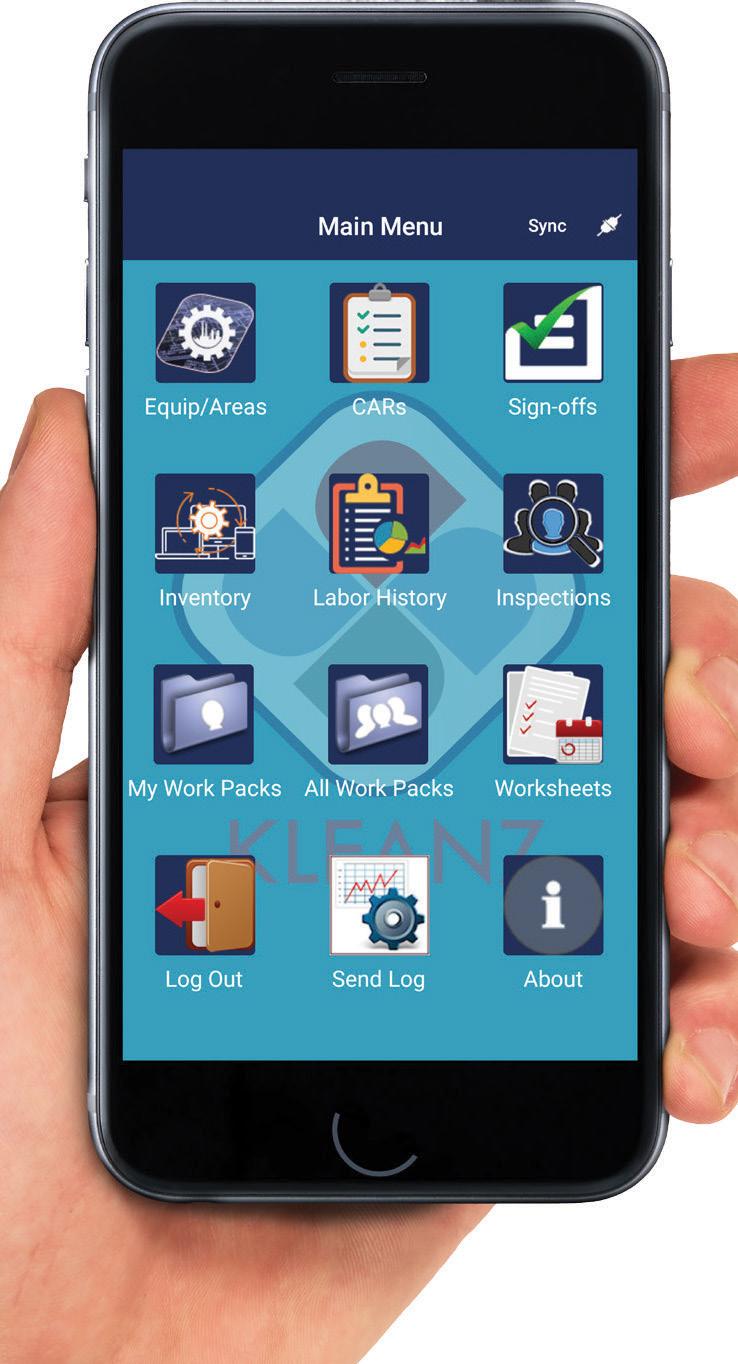
What makes Carrillo uniquely suited to the role of implementing and overseeing this wholesale change is his personal and professional experience with the company. Carrillo has given thirty years of his life to Bimbo, moved across international borders, and taken on many different roles to improve Bimbo as well as himself. If anyone can personally illustrate the concept of working outside a comfort zone, it would be hard to find a better candidate than Carrillo.
“Change is difficult, but it is constant,” he says. “Yes, it’s a big challenge, but at the same time, a very good one to have. Over the years, the thing I learn time and again is that not knowing something ultimately inspires me to learn more.”
Giving yourself over to the fact that nothing stays the same is ultimately liberating, Carrillo notes. From one day to the next, his job is never the same. Working on US soil has brought with it a need to not only operate in a new language but also to get around a myriad of marketing and regulation requirements that vary from Mexico to the United States. In addition to ensuring superior quality for his consumers and customers, Carrillo must also ensure that the company associates are aware of various regulations, prepared for inspection, and well-trained. On top of all that, Carrillo strives to improve the world’s understanding of just what Bimbo is.
It might sound like a lot, but all these years later, Carrillo says he’s still exactly where he wants to be.
“I enjoy the interaction with everyone,” he says. “We always try to enjoy our time here, and I think it’s very rewarding when you see the results, you see associates appreciate our purpose and how we strive to help them grow personally and professionally. It doesn’t have to be a ‘job.’ It can be fun. It can be a family.”
Congrats Arturo
KLEANZ KLEANZ
Food Safety Technologies
is proud to partner with Bimbo Bakeries, USA
45 Hispanic Executive
Amerisan’s partnership with Bimbo Bakeries has helped them achieve their continuousimprovement goal, implementing color-coded 5S shadow boards for all locations. Each plant now boasts a streamlined 5S program that is HACCP and audit compliant. Thank you, Arturo Carrillo, for enlisting Amerisan as Bimbo’s corporate supplier to improve food safety.
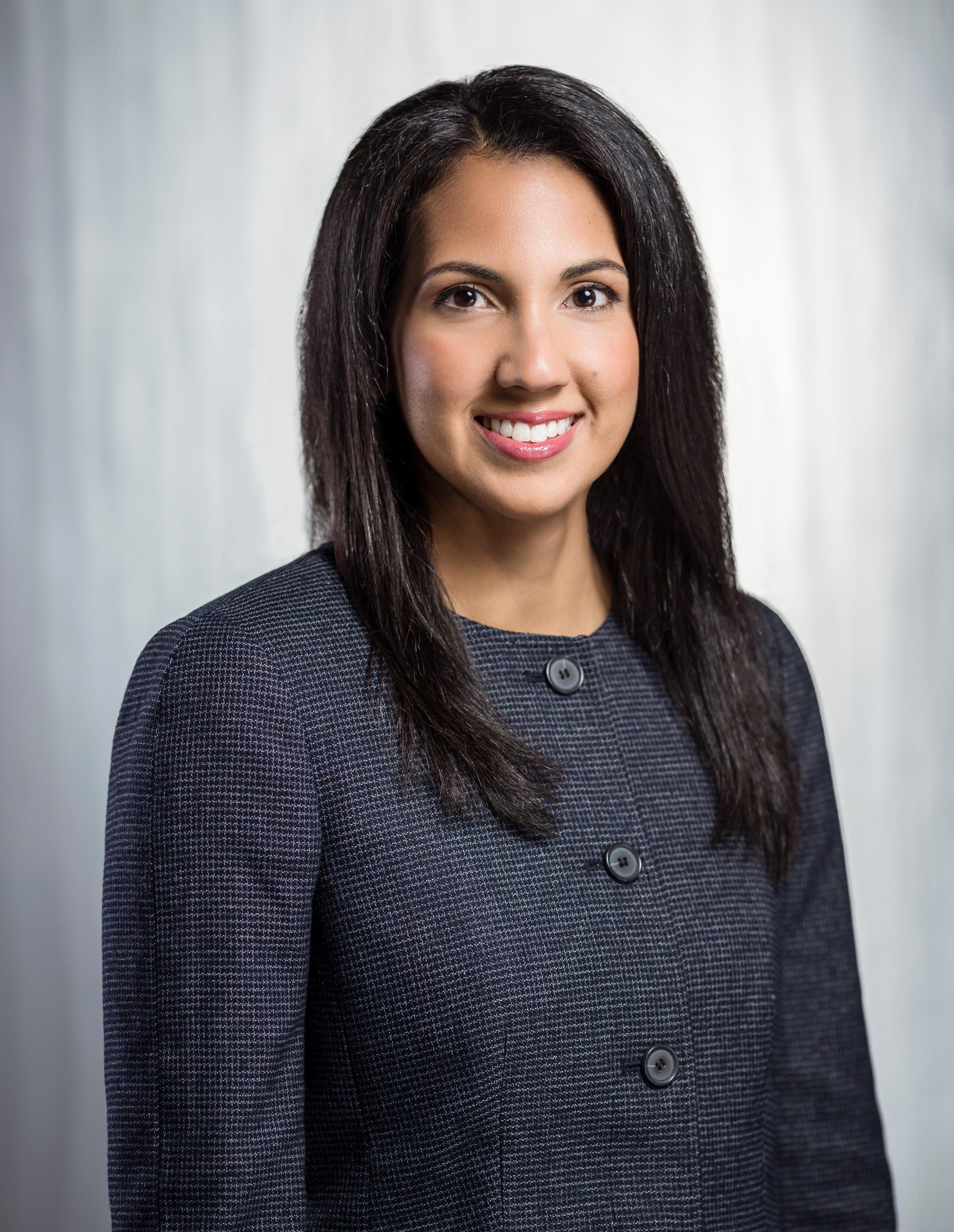 Arivee Vargas
Head of Global Anti-Corruption & Assurance Programs
Arivee Vargas
Head of Global Anti-Corruption & Assurance Programs
RYUJI SUZUKI, BEAUPIX
Vertex Pharmaceuticals
AntiCorruption, Anti-Can’t
BY KC ESPER
Arivee Vargas channels her personal values to empower her team at Vertex and develop a world-class anti-corruption program
47 Hispanic Executive
“Growing up, I always said I was going to be a lawyer,” she says. “But it’s extremely challenging to believe you can be something that you can’t really see. And it’s hard to know what something is unless you’re exposed to it.” Determined and grounded in her father’s education-forward spirit, Vargas paved her path, eventually achieving her childhood dream of becoming a lawyer.
After law school, Vargas took time to develop technical skills through her clerkships—a position she found highly formative—and ensured that the judges she worked with were determined, inspired people. During this time, she even had the opportunity to clerk for the Honorable Ojetta Rogeriee Thompson, the first African-American woman to serve on the First Circuit for the US Court of Appeals, and the Honorable Denise J. Casper, the first African-American woman to serve on the United States District Court for the District of Massachusetts.
“I enjoyed the academic exercise of my clerkships,” Vargas notes. “I loved the
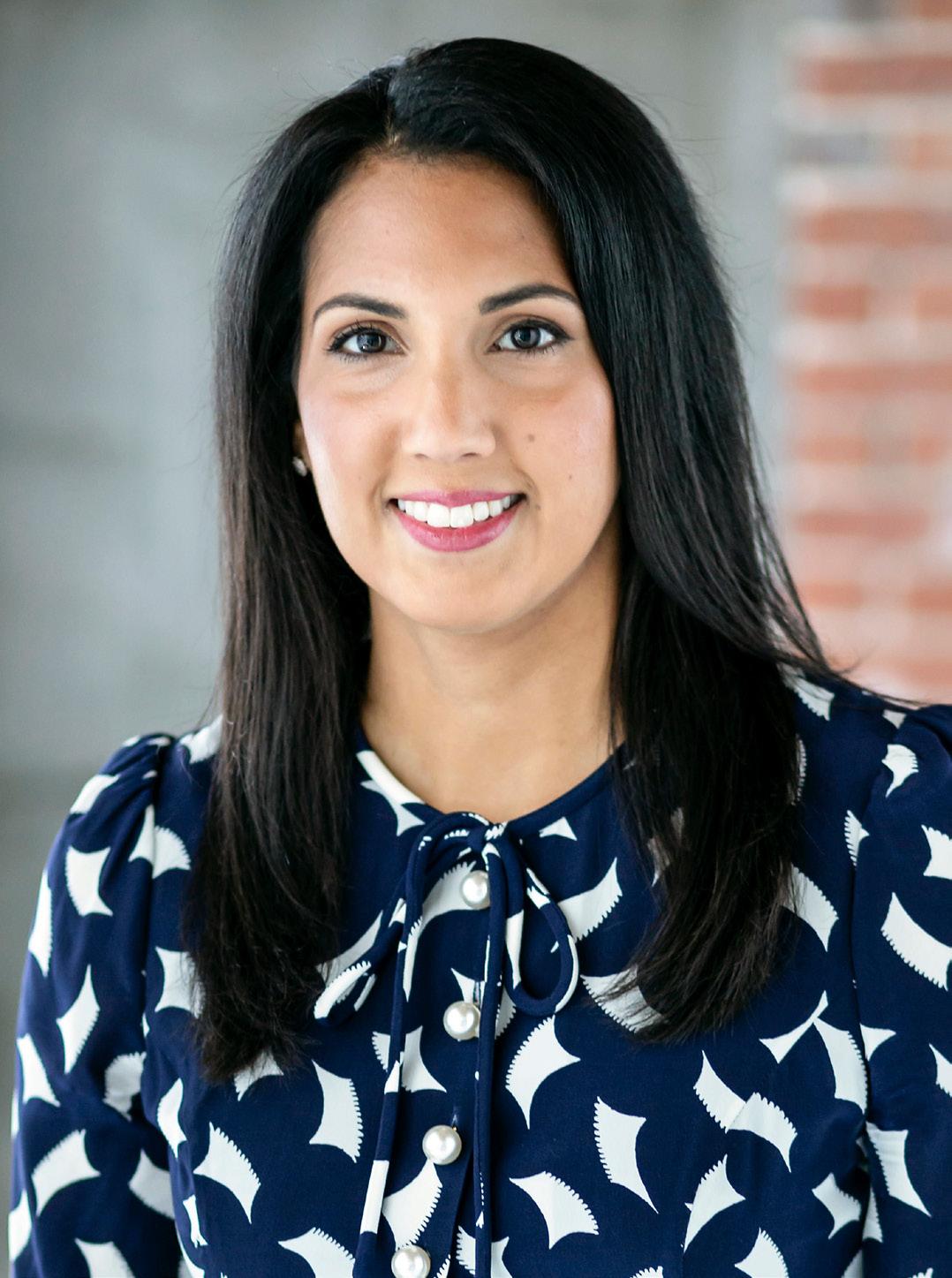
RYUJI SUZUKI, BEAUPIX 48 Strategy
As a young girl, Arivee Vargas grew up watching Law & Order. She was captivated by the justice system—the life-changing impact lawyers could have—and though she knew little about the field, she knew that was where she was meant to be.
intellectual challenge of figuring out really complex legal problems, reading the briefs on both sides, and talking through the case and decision with the judge. It felt like my writing, research, analytical, and criticalthinking skills skyrocketed.”
After spending more than two years developing her techniques, she decided it was time to go back into practice, joining Jones Day in Boston. During both clerkships, Vargas also taught at the business school at Boston College and continued to teach while at Jones Day. These experiences eventually led her to Vertex Pharmaceuticals Incorporated. Today, she stands as the company’s head of global anti-corruption and assurance programs in the Office of Business Integrity and Ethics.
About her teaching years, Vargas says, “For many of my students, I was the only person of color that taught them. So, for them, it was import-
Leadership. Integrity. Trust.
ant to see someone at the front of the classroom who reflected who they were. And I really took that responsibility seriously. My time there provided me with a unique set of experiences and skills, including how to simplify and communicate complex topics and how to read the room to see whether students were grasping the concepts we were discussing. This all helped prepare me for my current role at Vertex.”
Now, inspired by the legal role models she discovered during her journey through and after law school, Vargas continually surrounds herself with extraordinary individuals. At Vertex, Vargas channels her own global experience, as well as her teaching experience, to communicate effectively with her team members and stakeholders around the world. When working in different countries, Vargas takes the time to learn appropriate mannerisms, employ comprehensive
These are the words we would use to describe Arivee Vargas. She is a leader we most admire.
Arivee, your colleagues at PwC congratulate you on being featured in Hispanic Executive for your work on various compliance initiatives at Vertex.
www.pwc.com © 2019 PricewaterhouseCoopers LLP, a Delaware limited liability partnership. All rights reserved. 573008-2019-Hispanic Executive Arivee Vargas 2019 Ad.indd 1 4/24/2019 10:33:09 AM 49 Hispanic Executive
We wish you continued success in your career and look forward to working with you in the future.
SOBRE SU FAMILIA: LIKE FATHER, LIKE DAUGHTER
Though Vargas did not grow up in a family of lawyers, her father taught her skills that she would carry with her to be successful throughout her career. After immigrating to the US from the Dominican Republic, Vargas’s father worked tirelessly to get his college degree, while working full time and raising his two daughters. Through him and her mother, she learned the power of determination and hard work.
communication strategies, and acknowledge any blind spots that may be hindering. Her techniques have allowed her to be a valuable business partner across Vertex’s community base and have aided in her success in building and enhancing the company’s anticorruption program.
The vision for the program was simple: “Build a best-in-class anti-corruption program to prevent, detect, and mitigate bribery corruption risk.” Vargas and her team tailored the program to fit the needs of Vertex and the risks that it faces every day.
“We spent a lot of time trying to understand the mission and critical business activities, and build consensus. We collaborated with cross-functional teams across the globe to enhance and implement the systems needed to mitigate corruption risk, and raised awareness with our colleagues in different markets about how we can make sure that we’re exercising corporate responsibility—and that we are acting responsibly, ethically, and with the integrity in the way we do business.”
The team even designed a third-party corruption tool to help conduct corruption-risk due diligence and research on vendors, using a risk-based approach. The team aimed to identify and mitigate any risks that vendors might
pose before they were engaged. “It’s primarily about enhancing our employees’ awareness. We’re educating them on important and ethical ways to conduct business in countries across the globe,” she remarks.
Vargas’s global mind-set has helped ignite a passion for empowering team members and serving as a role model for Latinx employees in the legal space. She wants to teach aspiring Latinx lawyers to channel their unique selves, rather than feeling like they need to conform to a specific mold. She says it’s imperative for members of her community to realize that “they are capable of doing whatever they set their minds to.”
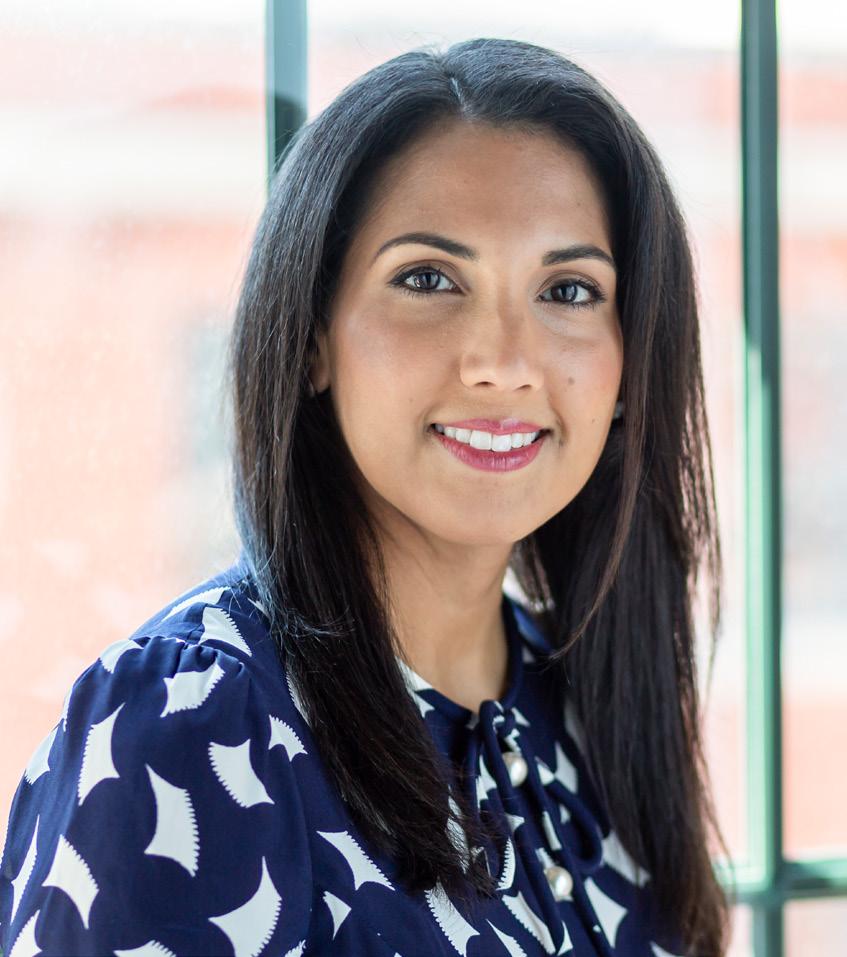
In her job, however, Vargas also strives to be as much of a student as she is a teacher. She aims to welcome and bolster perspectives, embracing any opportunity to learn something new, or guide others to be successful.
“I am a perpetual student,” she explains. “I thrive on mastering new ideas and skills and working through difficult challenges and problems. I feel energized when I am doing or learning something new and helping my team fulfill their potential. I’m committed to developing them and making sure that they, too, are energized by the important work we all do together.”
RYUJI SUZUKI, BEAUPIX 50 Strategy
“It’s primarily about enhancing our employees’ awareness. We’re educating people on important and ethical ways to conduct business in countries across the globe.”
When negotiating real estate deals, Greyhound’s Rey Nunez keeps the customer front and center
The People on the Bus Come First
BY BILLY YOST THE GREYHOUND CORPORATE offices in
Dallas are just a fifteen-minute walk from the real hub of the company’s business: its bus terminals. Rey Nunez says he likes to periodically make the walk to South Lamar Street in downtown Dallas to remind himself of the journeys Greyhound passengers take.
The senior director of real estate knows that regardless of the direction they’re headed, those passengers represent the lifeblood of the 105-year-old company. He also knows that they should play into each and every decision he makes. By emphasizing the customer experience, Nunez has been effective in navigating multifaceted real estate deals, managing leases, and seeking optimal locations for terminals and maintenance facilities. He says that because he’s come to expect certain detours in complicated transactions, as well as negotiations with potential roadblocks, the real estate team is able
provide real value to the company. Ultimately, the goal is for Greyhound to provide the very best experience for its customers.
For Nunez, leading the real estate group at Greyhound came as a surprise. Early in his career, if you had asked him, Nunez would’ve said he was an accountant. He was ten years deep in financial roles at Motorola before being offered a role in space planning. “The people in that role were architects, and it didn’t seem like a financial background was going to be very helpful at all,” Nunez says. “I decided to take it because I thought I could learn something new—and it wound up being a pivotal moment.” The move changed the course of Nunez’s career for the next decade-plus.
Since coming to Greyhound in 2011, he’s played a key role in eighty dispositions, totaling over $265 million. In May of 2016, the company announced a successful
51
Executive
Hispanic
Rey Nunez Senior Director of Real Estate Greyhound Lines
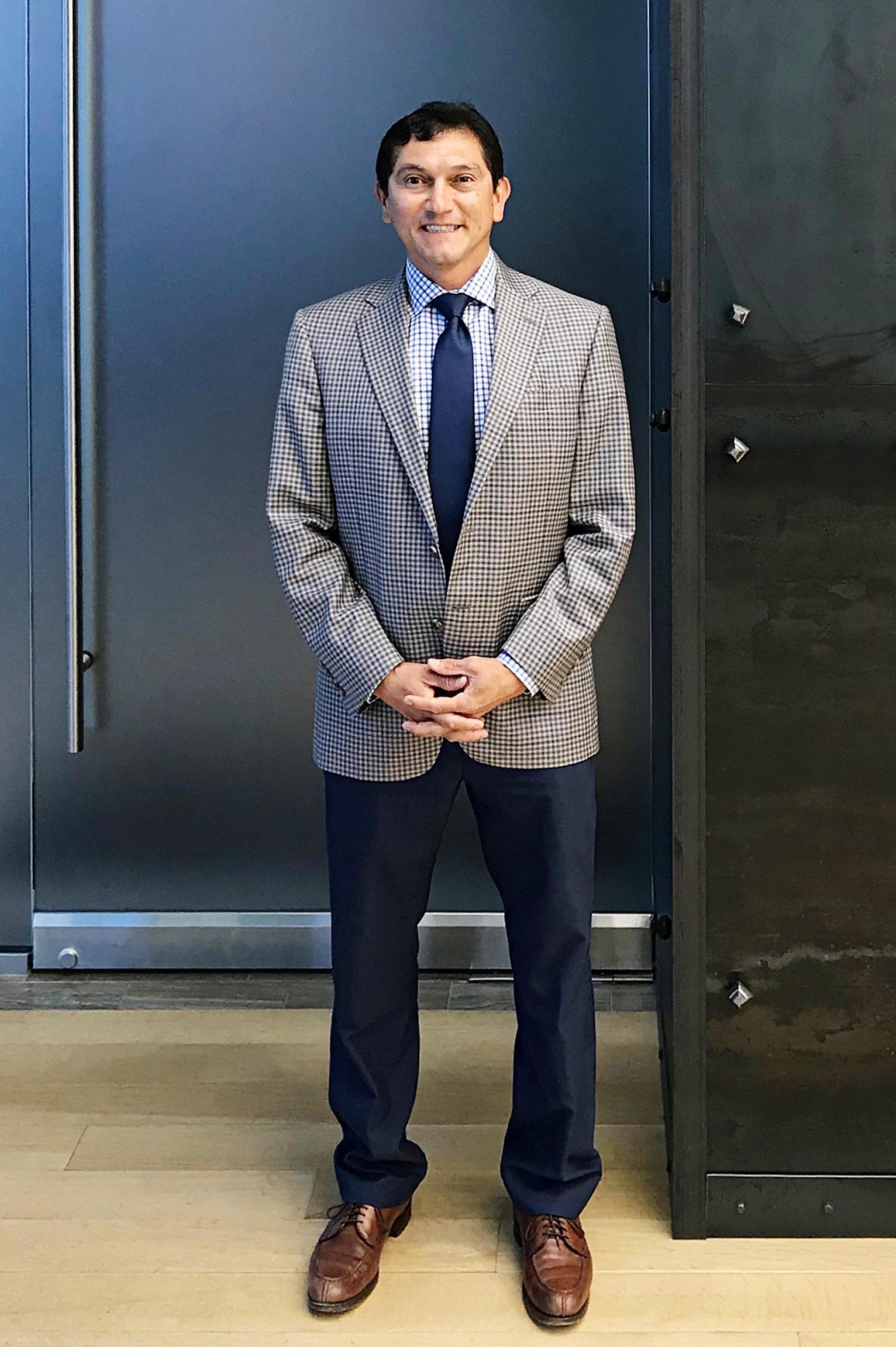
transfer of operations in San Jose to a nearby intermodal facility, allowing Greyhound customers better connection to Amtrak, BoltBus, Caltrain, and other forms of transit. Just a halfmile from its previous facilities, the location was a deal Nunez worked on for two-and-a-half years—though the initial interest in the move dates back nearly twenty years.
“We had always been told that there wasn’t enough room or that it couldn’t work,” Nunez says. But when a motivated seller made an offer equaling three times the value of Greyhound’s current bus station, both seller and buyer partnered to educate city officials about how the deal would work best for all parties, particularly San Jose passengers. “It was a strategic move on our part that really ended up working out great for everyone,” Nunez says. Amtrak was already operating out of the facility and was contracted by Greyhound to sell its tickets, thus eliminating the need for any new infrastructure. The developer who bought the old Greyhound headquarters had plans to demolish the building and install residential housing, of which Nunez says the city was greatly in favor.
Considering the number of stakeholders in a given exchange has become second nature for Nunez. “I think an important part of my job
COURTSEY OF GREYHOUND 52 Strategy
is trying to foresee where things are headed,” he explains. “I like to be prepared for the worst-case scenario. So, we do our homework and work very hard to prepare for whatever outcome may occur.” The director of real estate says that by communicating with internal stakeholders early and often, Greyhound is able to respond much more effectively— and often much more quickly—with worthwhile information.

Balancing the needs of multiple interested parties may seem like a tough job, but Nunez says his family provided him with an alternative to white-collar work early in his life. His parents were formerly migrant farmers in Minnesota, and, when he was a boy, they brought him to the North Star State for a summer so that he could experience the same type of farm work they had done. “I realized very quickly that I didn’t want to do
that sort of work,” Nunez says. “It propelled me to work harder, and it gave me extra energy knowing that there was something much more difficult I could be doing than homework when studying at the University of Texas at Austin or preparing for the CPA exam.”
That summer of hard labor remains fresh in Nunez’s mind. He explains it as an instrumental moment in which he not only realized the kind of career he didn’t want, but also one where he was able to witness how laborers are often perceived by those who are privileged with more opportunities. It’s helped Nunez to keep an open mind throughout his career—and he’s always willing to step outside of his comfort zone.
“Opening a new door can be scary because you don’t always know what’s behind it, but you’ll never know if you don’t try.”
JLL is proud to be Rey Nunez’s brokerage partner in his vision to better serve Greyhound customers and their communities.
Rey Nunez is an extraordinary leader, and his dedication to his colleagues and Greyhound customers is clear. JLL is proud to work with him and support his vison to achieve ambitions—both for himself and the customers he serves.
“Opening a new door can be scary because you don’t always know what’s behind it, but you’ll never know if you don’t try.”
53 Hispanic Executive
Delivering the Message
BY WILL GRANT
Frank Galindo’s marketing background makes for an odd yet perfect pairing with compliance for Lincoln Educational Services—just in time for him to show lawmakers the value of technical schools
54 Strategy
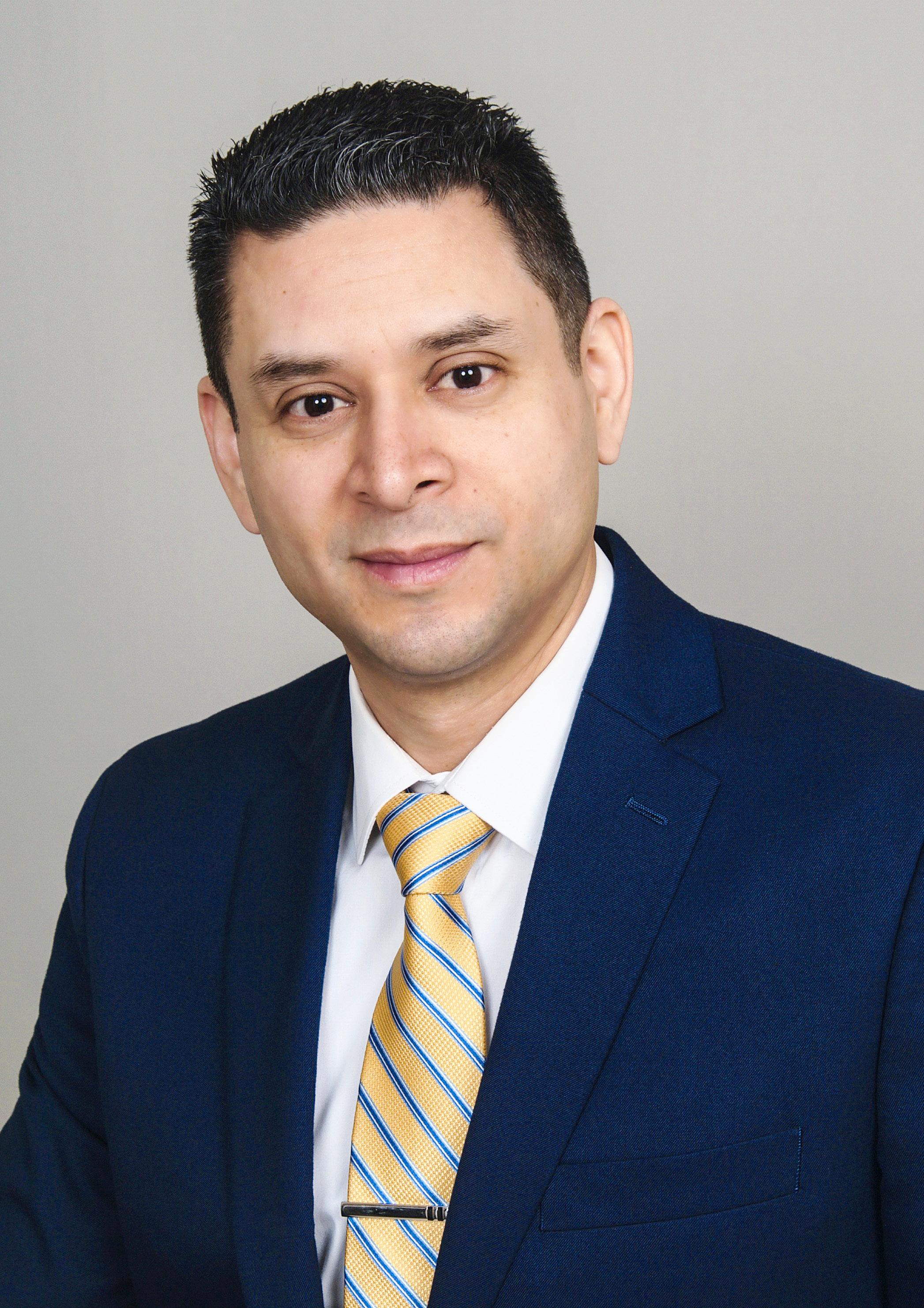 Frank Galindo National Director of Compliance
Frank Galindo National Director of Compliance
DAN LAPLACA 55 Hispanic Executive
Lincoln Educational Services
A GROUP FOR GOOD
Frank Galindo credits his wife for a true moment of clarity. “My wife puts her heart and soul into helping seek legal status for victims of abuse and domestic violence,” Galindo says. “I knew that I could also do more.”
As a member of the Knights of Columbus, Galindo aids the group’s efforts on behalf of the mentally and physically disabled as well as victims of natural disasters— work that he has found infinitely validating. When Galindo’s home country of Ecuador was hit by an earthquake in 2016, the group raised money for the country’s citizens, and Galindo and his family were able to personally deliver the money to soldiers in charge of the relief camps, asking that the funds be put toward children and nutrition.
“The Knights of Columbus is truly a great group of people who want to do good for others,” he says.
EIGHT YEARS INTO HIS ROLE as marketing manager and brand advocate for Lincoln Educational Services (the parent company of Lincoln Tech, a school for skilled trades and vocational training), Francisco “Frank” Galindo made a transition that may seem confounding. After having spent the bulk of his career in some advertising capacity, the self-described “creative at heart” assumed a national compliance role for the company.
To note, his role isn’t all about laws and regulations—he is also responsible for advocating for higher education and the skilled trades. In effect, Galindo says he has one foot in compliance and one foot in marketing. This rare dual role has been essential for Galindo to bridge a gap rarely even considered at many companies, but imperative to Lincoln’s operations.
“My eight years spent in marketing at Lincoln was really fundamental to my understanding of how and why we craft our messaging the way we do,” Galindo says. “We want to appeal to prospective students while still following all of the rules that are required to be in compliance with our accreditors and the various agencies we’re accountable to.”
Galindo says staying compliant offers a litany of challenges, but in addressing these, his marketing background has been invaluable. “My skills allow me to provide different perspectives on how to manage our messaging at a time when our industry is under an intense amount of scrutiny,” he explains.
With the high-profile shuttering of for-profit technical schools like ITT Technical Institute and Corinthian Colleges, Galindo says it has become absolutely imperative to demonstrate that operating with integrity is at the heart of Lincoln’s business and educational practices. “Our integrity is what has kept us in business for so long,” Galindo says. “Now we’re focused on convincing regulators and lawmakers that what we do has a very significant place in society and in our economy.”
As a for-profit postsecondary school emphasizing trade skills for careers that are always in high demand, Galindo and his team have endeavored to educate lawmakers at both the state and federal levels about the importance of skilled-trades institutions and their value to the economy. Members of the compliance and regulatory team have traveled to Capitol Hill to meet with senators and congressional repre-
56 Strategy
sentatives, and Galindo has personally met with New York assembly members and senators on exactly how Lincoln Tech and schools like it affect individual lawmakers’ home districts. “We show them exactly how much revenue is being generated from a tax perspective in their districts,” Galindo says. “When you can show them how many people who have graduated from our schools have gone on to be employed in their districts, it illustrates our benefit at a granular level.”
Demonstrating the need for skilled training has also been an issue of importance for Galindo and his team. “You can look up [data on the] US Bureau of Labor Statistics website all day long and tell the same story,” Galindo says, “but it doesn’t equate to sitting down with an employer and having them tell you that they simply can’t find the people they need to fill positions.”
In partnering with Lincoln to donate technology or sponsor classrooms, companies like Fiat Chrysler and Bridgestone/Firestone have openly committed to supporting the institution in hopes of luring its graduates. Some of those employers have gone so far as to accompany Lincoln executives to meet with senators and congressio-
nal representatives to stress the importance of the programs they offer.
Galindo says the success of these partnerships has been remarkable and has “allowed the company to successfully champion for the education of our skilled labor force.”
Now eight years into his compliance role, Galindo is also currently pursuing an MBA to build his capacities out even further—much like the first time Galindo elected to reach higher, in 2015, when he was selected for the Launching Leaders program at Lincoln. He was one of only a handful of individuals selected from different departments who were identified as having the potential to excel in their careers. Galindo says the program instilled in him the belief that he could rise to new challenges at Lincoln. During the program, he made it clear that he wanted to take on more responsibility. He credits this for helping him take on more projects and collaborate with key individuals at Lincoln.
“I feel successful and blessed to have been able to do what I’ve done at the company,” Galindo says. “I’ve learned that accountability and striving to be better benefits not only yourself, but those around you.”

“You can look up [data on the] US Bureau of Labor Statistics website all day long and tell the same story, but it doesn’t equate to sitting down with an employer and having them tell you that they simply can’t find the people to fill positions.”
“Working hard for something we don’t care about is called stress.
Working hard for something we love is called passion.”
Simon Sinek
0419_CongratsFrank_CR2088.indd 1 4/23/19 12:00 PM 57 Hispanic Executive
THANK YOU FRANK FOR YOUR PASSION AND INSPIRING ALL OF US TO REACH HIGHER.









The trail before us has been blazed by many, but the next generation of business leadership isn’t guaranteed to be Latino. We have to make it so. We have to come together to create a powerful collective. Join a new movement for rising Latinx leaders. Subscribe to NextGen Collective nextgencollective.com/subscribe Powered by Hispanic Executive
Entrepreneurs
ENTRE PRENE URS
Perhaps the ultimate form of leadership is business ownership, and the Latino community is rich with entrepreneurs. The men and women featured here tell stories of risk, reward, and the lessons learned along the way.
60 Francisco Garcia, Merkari Group
65 Eliseo Rojas, ETR Business Solutions
68 Marnie Forestieri, Young Innovators Academy
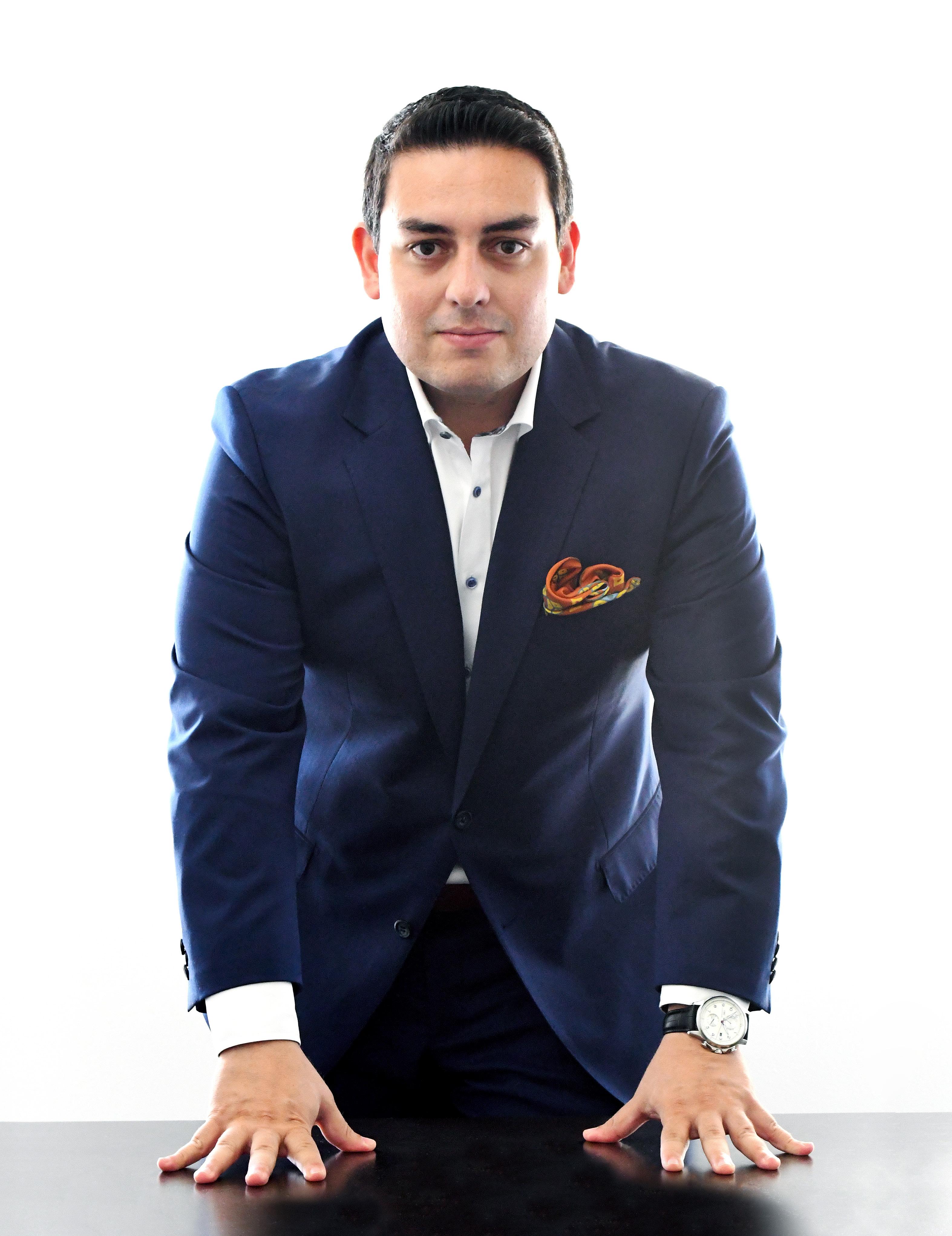
UNAI AROZENA
Francisco Garcia Cofounder and CEO Merkari Group
more photo please more photo please
Guiding the Marketing Model for the Modern Age
BY STEPHANIE ZEILENGA
At Merkari, programmatic pioneer Francisco Garcia brings cutting-edge marketing technology to brands with a multicultural focus
61
Executive
Hispanic
FRANCISCO GARCIA HAS BROUGHT multicultural marketing into the twenty-first century. Renowned as a programmatic marketing pioneer who helped establish the first wave of agency trading desks throughout Latin America and US multicultural markets, Garcia is now finding big success at Merkari Group, a digital marketing consultancy he cofounded in 2016.
Merkari helps businesses of all sizes utilize the latest marketing technology. Within Merkari’s first year, the business landed one of the largest premium TV channels in Latin America and some of the leading multicultural agencies in the US as clients. It was also selected to be one of Google’s sales-certified marketing partners, a prestigious alliance bestowed on a small number of companies. As a sales-certified marketing partner, Merkari provides consulting services for businesses wanting to use the premium Google Marketing Platform.
Plenty of hard work, dedication, and passion preceded Garcia’s success at Merkari. Beginning with his research and sales internship at Telemundo, each step of his career has solidified his reputation as an expert on the marriage of technology and marketing. Right out of college, he was hired as a media associate at Starcom MediaVest Group, where he worked on brand strategy and activation for Procter & Gamble US Hispanic initiatives as well as other major brands. By 2013, Garcia had landed as digital media director at Publicitas (now NewBase), which is where he developed one of the first multicultural trading desks for programmatic marketing—a management platform that streamlines programmatic ad buying.
“Digital advertising used to be a manual process, which was complex and time-consuming,” Garcia says. “DSPs connect you to all the outlets at once and allow for automation of digital marketing initiatives.”
Garcia was eventually hired on as director of platform solutions at MediaMath, a programmatic marketing technology firm. He led top-tier accounts with major brands such a Coca-Cola, Intel, American Airlines, Univision, and other Fortune 100 brands, helping them use marketing software to revolutionize the way they approached multicultural marketing strategies. Garcia’s work with Mediacom and Coca-Cola earned him a silver award for Best Use of Programmatic at the 2017 Festival of Media Awards.
He also spearheaded MediaMath’s New Marketing Institute Latin America expansion, an initiative designed to educate the next generation of marketers in the use of programmatic and marketing
automation. He says, “Educating different professionals across the region and seeing them later step into marketing leadership roles has been a gratifying experience.”
Garcia cofounded Merkari after identifying a need for a marketing model for the modern age, one that bridges the gap between consultancy and fully integrated digital services. The firm grew quickly, bolstered by a partnership with Google that began six months after Merkari was established. “We received that trust from Google because of our successful track record at MediaMath and the reputation that preceded us,” explains Garcia. “Google is the leader in advertising and technology, so receiving that vote of confidence proves that we have something special here.”
Initially focusing solely on programmatic marketing, Merkari now also provides advanced analytics, cloud management, creative
62 Entrepreneurs
“Our vision is to span across the Americas and keep evolving with our clients’ needs as they request us to dive into ever more sophisticated integrations of marketing systems.”
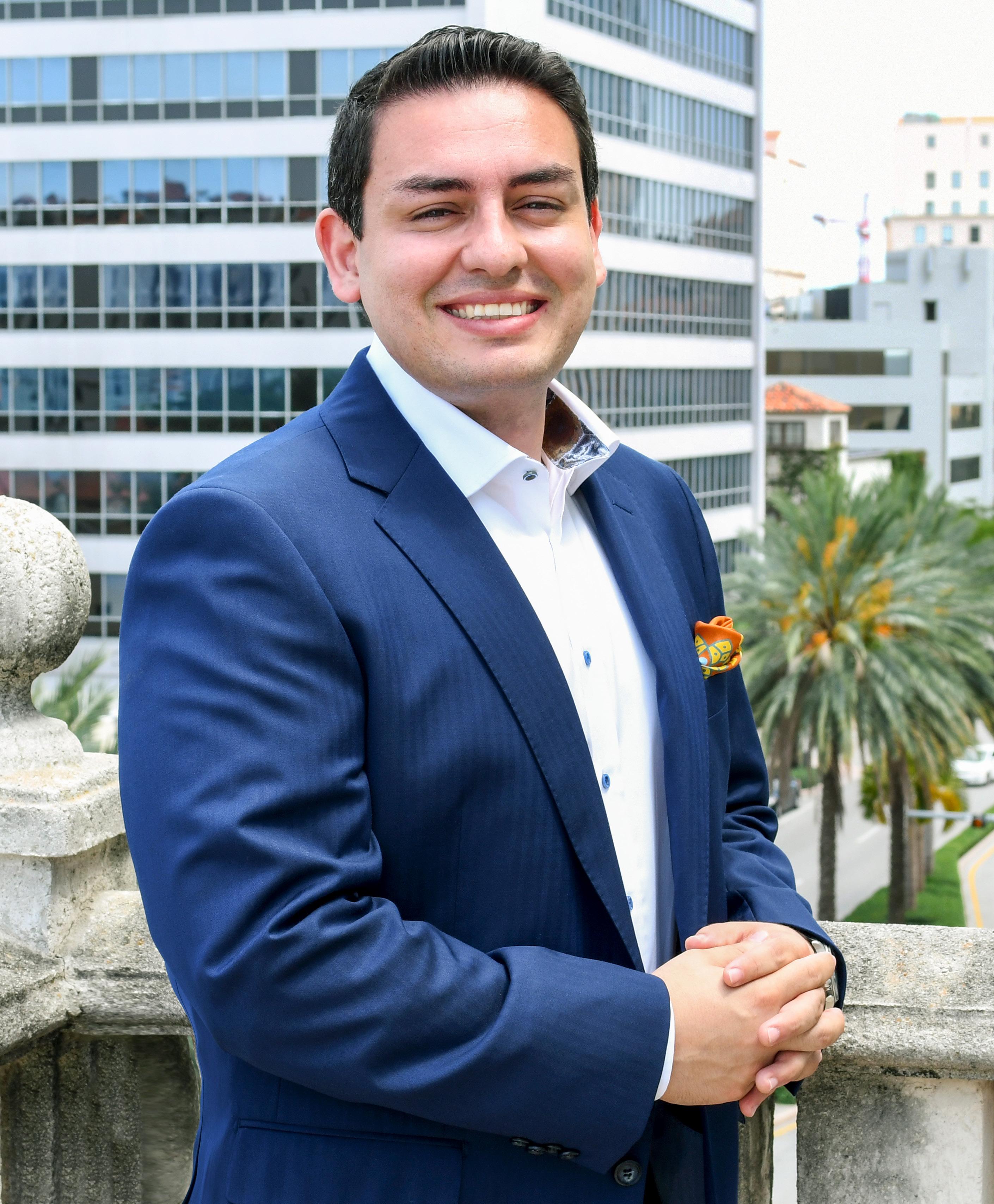
63 Hispanic Executive UNAI AROZENA
development, and integrated reporting. Merkari has become a strategic partner for both marketing agencies and direct clients. Through cuttingedge technology and top-notch client service, Garcia’s company has supported some of the most prominent agencies to ensure client satisfaction. These partnerships have included projects such as Telemundo’s World Cup, Copa América, and the Women’s World Cup. From Miami, the business has spread to Mexico, Colombia, Ecuador, and Central America. “Our vision is to span across the Americas and keep evolving with our clients’ needs as they request us to dive into more sophisticated integrations of marketing systems,” Garcia says.
Garcia came to the US when he was fifteen years old, and today he calls his success a true American Dream.
“I’ve received amazing opportunities, including going to university with full academic scholarships and working with amazing companies throughout the country,” he says. “I’ve been very privileged. I’ve also worked hard— transplanting to different cities as I’ve moved up the ladder—and had incredible mentors throughout my career.”
To that end, Garcia values giving back to the community. Not only does he aim to incorporate a sense of social responsibility into Merkari’s mission, but he also wants to provide opportunities for other budding Hispanic leaders.
In January of 2019, Merkari again
partnered with Google to start an education initiative at Florida International University’s Honors College and create a course titled Digital Media in the 21st Century. “We’re teaching advanced skills for leveraging all of Google’s marketing tools to execute marketing strategies and prepare these students for the workforce,” states Garcia, who is currently working toward his master’s in data science at Northwestern University. “Giving back this way is important because there is a huge need for talent in Miami.”
Another particularly fascinating way Merkari has recently served its community is through Bolivar Phil, a philharmonic orchestra of expert musicians from Latin America— mostly Venezuela—who migrated to the US for economic or political reasons. Merkari created the orchestra’s brand identity, established all of its media channels, and formulated and implemented a pro bono digital campaign to promote Bolivar Phil leading up to its debut in June of 2019. The ambitious initiative is reflective of the ways in which Garcia has led a company like Merkari. And he hopes to find additional projects so that he and Merkari can do good on a global level.
“We’re looking for partnerships with additional universities and ways to continue giving back to the Hispanic community—we’re all working together to create a better US,” he says.
64 Entrepreneurs
Eliseo Rojas left a big career as part of a Fortune 500 C-suite to follow his greater purpose: advising small and midsize businesses that are often minority- or woman-owned

It’s a Small World After All
BY RUTH E. DÁVILA
ELISEO ROJAS ARRIVED in New York from Peru at the age of fifteen. He didn’t speak a word of English. His neighborhood was just two blocks from Yankee Stadium, and in those days (the early 1970s), he recalls the Bronx being speckled with burnt-down buildings. For many in the area, there wasn’t a clear road out. Rojas’s path was mapped by high school teachers who both saw his potential and wanted to invest in his education—one that led him to the Ivy League. He ended up at Columbia University, where he played on the soccer team, and, after graduating, married a Barnard College graduate.
Eliseo Rojas Founder and CEO ETR Business Solutions
Rojas launched his career in investment banking and transitioned to procurement, where he found his calling in supplier diversity. His corporate career culminated with the title of chief procurement officer for the Fortune 500 marketing and advertising services company Interpublic. He then branched out to form a consultancy a few years ago. Today, Rojas serves small and midsize businesses as the leader of ETR Business Solutions, focusing on minority- and woman-owned firms.
65 Hispanic Executive
BEST READ
The Go-Giver: A Little Story About a Powerful Business Idea by Bob Burg and John David Mann
BEST ADVICE
“Stay focused, stay in the game, don’t give up. If you fall down seven times, get up eight times.”
BEST BUSINESS PHILOSOPHY
“Have a single-minded purpose on clients and helping them solve their challenges.”
So, how did you get the entrepreneur bug?
It’s what I’ve known my whole life, even though I spent much of my career in corporate. My grandmother was a single mom and she fiercely provided for her four children, including my mother. They both had an incredible work ethic and ingenuity. I remember my grandmother cooking for large groups at her house and then selling the food to workers at construction sites. Or handwashing clothes for the neighborhood to make money.
My mother had a child at sixteen and always worked alongside her. That’s why I’ve always been passionate and supportive of women businesses.
And here you are today leading a venture of your own to help entrepreneurs. How would you describe your business model?
We are essentially the McKinsey of the small/ medium-sized market. We serve clients from $1 million to $350 million in revenues, representing a range of industries and sectors. We work with them to provide resources and services—business assessments, financial reviews, growth strategies, access to capital, and other advisory services.
How did you become inspired to launch a consulting company?
It’s rooted in my purpose in life—to share my knowledge and experience with underserved communities and help them achieve their objectives. My entire career has been colored by that. As a senior executive and
chief procurement officer, I made it a priority to participate in advocacy groups and boards of directors around these causes. Today, I’m still chairman of the board of the Women Presidents’ Educational Organization.
That purpose is driving what I’m doing today. I wasn’t able to fulfill it completely in the corporate world, but it gave me the tools, ability, and knowledge that I can now share with others.
Can you share any lesser-known resources for minority businesses?
It’s not a secret, per se, but certification is a must for a minority- or woman-owned company. If you’re looking to do business with Fortune 1000 companies or government agencies, it’s a requirement for their vendors. It also allows you, at the very least, access to people who can help you navigate through different organizations. Supplier diversity and procurement professionals are there to help companies get to the right resources; if you’re out there on your own, it’ll be a lot more challenging.
What other advantages does certification provide?
Certification agencies provide access to capital, development, and networking. They partner with consultancies like ours to coach companies. For example, an agency will hire us to offer three hours of one-on-one advisement to each of their members, customized to their needs. Certifying agencies also host valuable gatherings where you get to meet
“Supplier diversity and procurement professionals are there to help companies get to the right resources; if you’re out there on your own, it’ll be a lot more challenging.”
66 Entrepreneurs
ROJAS RECOMMENDATIONS
corporate and governmental agencies and other business owners that you could potentially do business with.
Looking across your portfolio, which high-growth industries are your clients tapping into?

The highest growth potential is in technology—especially artificial intelligence—and all the tech innovations that are helping the economy grow. The health industry is very strong, too, and companies that can help that industry will do well. Finally, automotive is typically consistent and therefore a strong arena to play in.
Those industries all come with unique challenges. How did you build a team capable of consulting across a broad spectrum of businesses?
The team we’ve put together is comprised of professionals who, at a minimum, have twenty to twenty-five years of expertise in the corporate world. Two of our members have been business owners, so they truly understand what it takes to be successful in this environment—from HR to operations to sales, finance, IT, and legal
negotiations. There is a common value that unites us as a team: we are all devoted to leveraging our knowledge and experience to help people.
In the short term, what outlook do you foresee for the small/ midsize market?
Resilience is the name of the game. These companies are what I call the engine that drives the global economy. Anywhere you look, it’s always the small and medium businesses that are hiring, creating new products, fueling the economy by spending. They are driving the market, not the huge companies. I predict that will only increase with the proliferation of technology and other advancements.
Any parting words of wisdom for start-ups?
One thing that continues to be a big challenge for minority-owned businesses is getting access to capital. It’s extremely difficult and not always handled in a fair way. My message is that when you’re going for capital, make sure your story is clear, relevant, and powerful—so that funders will want to invest in you, regardless of who you are.
67 Hispanic Executive Workforce Management & Talent Acquisition Solutions www.atriumstaff.com
DEAR ELISEO,
We are proud to see you honored as an influencer of social responsibility and value your dedication to diversity initiatives.
You have inspired a network of growth and support that transforms organizations and empowers lasting change.
Rebecca Cenni-Leventhal, Founder & CEO
Congratulations to Eliseo Rojas on this well-deserved recognition. Eliseo’s accomplishments, strong partnerships, and his relationship with the Hispanic community are an example to all Hispanic Americans that through education, dedication, and commitment, one can achieve great heights. He is a well-recognized corporate leader in the field of procurement and supplier diversity. We in the MWBE community are honored to call him our friend. The National Hispanic Business Group is proud to support Eliseo Rojas!
Respect the Mission
BY WILL GRANT PORTRAITS BY RYAN KETTERMAN
Marnie Forestieri on following her purpose and building a new model in early-childhood education
68 Entrepreneurs
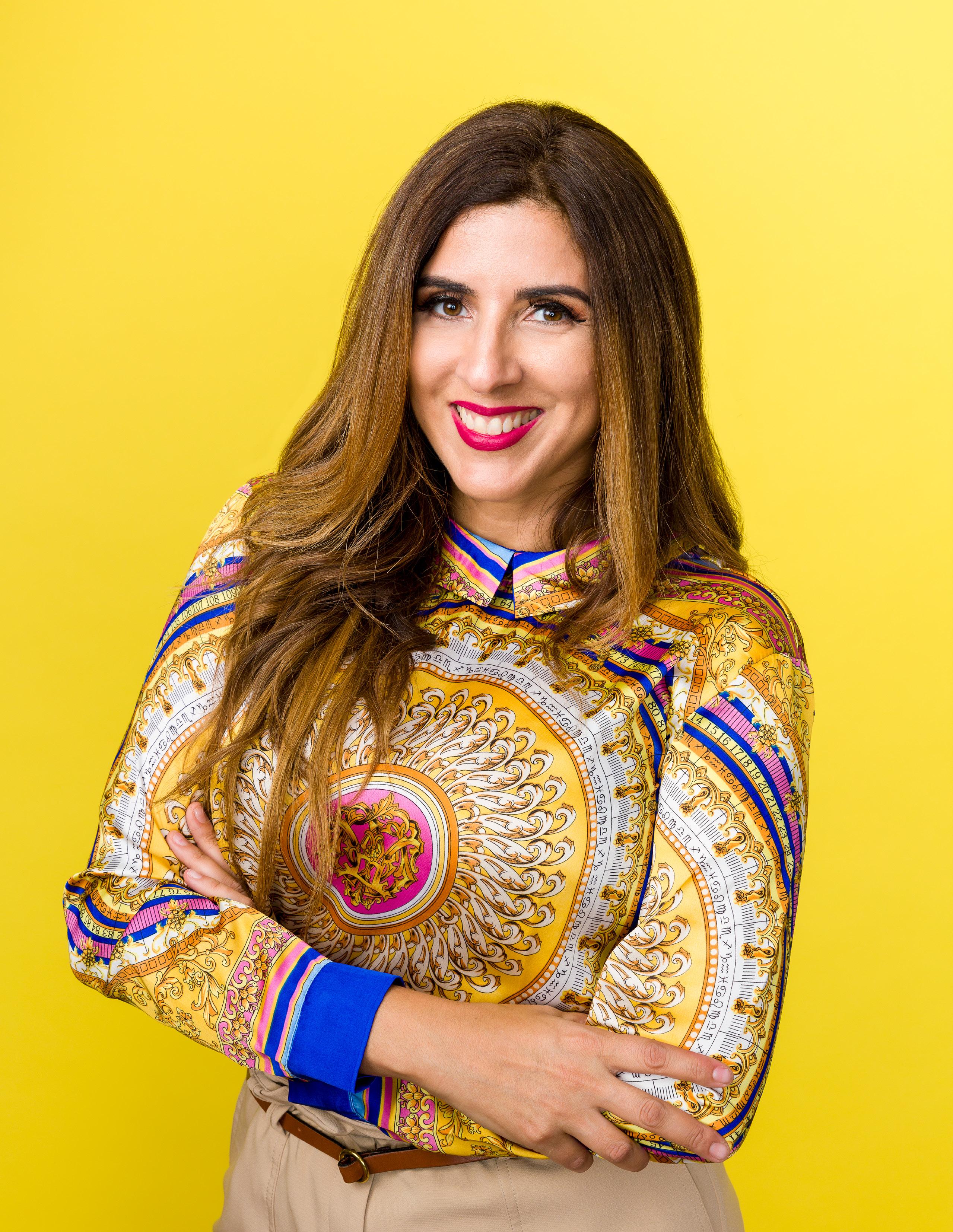 Marnie Forestieri Founder and CEO Young Innovators Academy
Marnie Forestieri Founder and CEO Young Innovators Academy
THE MOST CONSISTENT element of Marnie Forestieri’s story is her steadfast refusal to settle. For many, edging into unfamiliar fields before ultimately deciding on a career is a perfectly traditional path—and, unquestionably, an easier one to tread than Forestieri’s. From CNN Spanish journalist to family-business property developer to documentary filmmaker to writer to corporate vice president to preschool teacher to curriculum designer to successful entrepreneur, Forestieri has navigated her way to the forefront of early-childhood development services. Today she employs proprietary curricula to promote the mind-sets and thinking routines that her students will require to become the fearless problem-solvers of tomorrow.

in Florida. “My experience as an entrepreneur and educator truly builds on all of my previous experience.” The Dominican-born Forestieri began her career as a Tokyo correspondent for CNN Spanish, seeing the world from a wide scope. The stint in journalism set her up well in a number of capacities and undoubtedly contributed to her later, heralded creative endeavors—not only did she produce an award-winning documentary for the History Channel (Conspiracy in the Caribbean: Trujillo), but her book El Yakusa de mi Corazon was a Juan Rulfo Award finalist and published by Grupo Planeta.
While the awards and validation were nice, Forestieri says her nonstop career pivot was a result of numbers just not adding up. “Every
It’s not Forestieri’s first go at franchise development. The entrepreneur recently sold the childcare franchise she founded, the Amazing Explorers Academy, and is using the proceeds to build the burgeoning Young Innovators Academy. Featuring a business model that’s aimed to address high turnover rates in childcare as well as traditionally low wages and benefits, the company will also give employees ownership stakes in the company.
Forestieri’s résumé reads like a treasure map for one seeking ownership and validation of her chosen path. “I eventually found my mission,” Forestieri says from her home
time I got a check, I would think to myself that this was a completely unsustainable living,” Forestieri laughs. “I had to find a way to monetize my talents in a more serious way.”
The future business leader had already accrued some old-school know-how in turning her family’s film-development business into property management. “I knew this was a dying industry, and converting the business wound up being a very smart decision,” Forestieri says. “I discovered early on that innovation was the key to success, and I adopted the mind-set that if I was willing to go with change, the rest would come.”
70 Entrepreneurs
“I discovered early on that innovation was the key to success, and I adopted the mind-set that if I was willing to go with change, the rest would come.”

71 Hispanic Executive
Forestieri headed back to school to earn her MBA, but the pressures of raising young children impelled her to leave school early— but not without some valuable lessons learned. She tackled a VP of marketing role for a large telecommunications company. Unable to determine how she was going to talk herself into the position, she had a rocky first day. “One of the managers took me aside and told me that they didn’t have much hope for me because I was the third VP they’d had in a year,” Forestieri says. “It wound up becoming my best training and one of the best things I’ve ever done.” As VP, she overhauled numerous departments at the struggling company. Still, it wasn’t where she felt she belonged.
“So I went back to school again,” Forestieri says frankly of her decision to study education. “I went from being a VP with a driver and assistants to being a preschool teacher.” It was an exercise in humility for Forestieri, but also one that provided her with an opportunity to forge connections with teachers while learning more about the methods and processes of early education. Her own education ended up providing invaluable source material when she later built a school of her own.
After taking the bold entrepreneurial leap and developing her educational philosophy into a learning-academy franchise, Forestieri was convinced that she could expand that philosophy at an even larger scale—and in a way that could better benefit both educators and students. “The model I created as a franchiser was actually perpetuating the same challenges for the indus-
try: low wages, high turnover, and a lack of stability for those children who relied on our services,” Forestieri says. “That’s when I decided to go to Stanford.”
With sponsorship from Wells Fargo and others, Forestieri enrolled in the Stanford Latino Entrepreneurship Initiative Education-Scaling Program, offered by the Stanford Graduate School of Business Executive Education and the Latino Business Action Network (LBAN) spearheaded by CEO Mark Madrid.
“Marnie is the embodiment of fearlessness and courage, qualities that catalyze innovation,” Madrid praises. “She continues to push the envelope and surrounds herself with innovators, capital igniters, and outstanding talent. She is unstoppable. In our classroom of scaled US Latinx entrepreneurs, we declare that a number of them will create billion-dollar companies. Unequivocally, Marnie will be one of them.”
“It absolutely changed my life,” Forestieri says. “That was where I learned that I needed to challenge my own business model and work to create something new.”
As a graduate of the program, Forestieri says the experience continues to pay dividends and ultimately wound up contributing to Forestieri’s daughter attending Stanford. Today, the entrepreneur remains a committed mentor of the program.
The Young Innovators Academy, Forestieri’s brainchild, aims to build on her experience by bolstering early-childhood learning through technology-enabled
72 Entrepreneurs
“This industry demands some disruption, and that is what we’re going to do.”
components that will collectivize and unify local childcare and community-based organizations around the brand. “There’s what many consider a national childcare crisis, and my mission is to impact as many young kids as we possibly can,” Forestieri says. “This industry demands some disruption, and that is what we’re going to do.”
“By developing Hispanic-owned businesses like Marnie’s, Wells Fargo is helping strengthen the economic impact that diverse businesses have on their communities,” explains Regina Heyward, senior vice president and head of supplier diversity at Wells Fargo. “We’re happy to partner with organizations like Stanford and LBAN that align with our vision and provide
diverse businesses access to much-needed resources to grow and scale.”
Forestieri says her own excitement in being able to offer insurance, 401(k), and other benefits to an industry that has largely gone without such amenities will create a much more sustainable and retainable staff—which will help ensure continuity of care for students and better lives for the school’s employees. Was it worth a full résumé of accomplishments and multiple back-to-school efforts? “You have to respect the mission,” Forestieri says simply. “It’s those experiences that have made me successful and will continue to push me to push the boundaries of what is possible.”
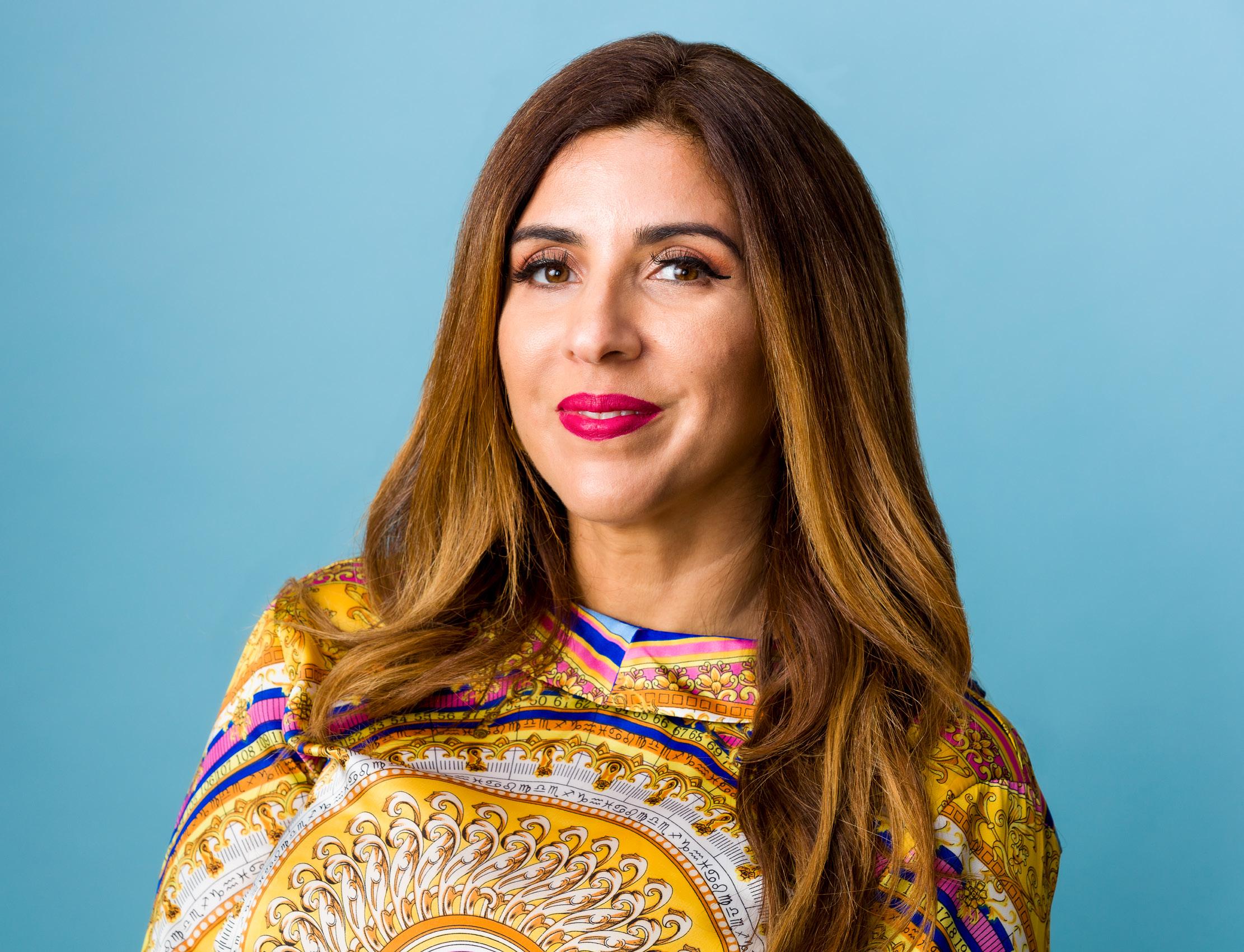
73
Executive
Hispanic
CONVERSATIONS AT THE TOP WITH RUBEN NAVARRETTE
Daniel Lubetzky
Best known as the founder of KIND Snacks, Daniel Lubetzky now has his sights set on a much bigger picture: humanity. Ruben Navarrette tells the story behind his ambition.
PORTRAITS BY GILLIAN FRY
74 Conversations at the Top

Daniel
Daniel Lubetzky Founder and Executive Chairman KIND Snacks
For generations,
Jewish people were taught to keep their passports handy. Because, on any continent, if things went south, whom do you think would be blamed? The same folks who have caught blame for more than three thousand years. You had to be ready to grab your stuff and disappear.
76 Conversations at the Top
Daniel Lubetzky chose a different path. As a boy, growing up in a Jewish family in Mexico City, he was enchanted by magic.
After all, why disappear—when you can make others disappear?
“I love being a magician,” the fifty-oneyear-old Lubetzky told me. “It’s fun for me. I had daydreams as a young person where my magic-making skills would help me survive in very tough circumstances.”
Lubetzky has plenty of skills—fluency in six languages, business acumen, emotional intelligence, and creativity. Perhaps his greatest gift is historical perspective: he knows the stories of those who came before him.
Including his father’s story. As a starving teenage boy incarcerated at the notorious Dachau concentration camp at the end of World War II, there were probably plenty of moments when Roman Lubetzky wished he could disappear.
Humanity is scarce in places like Dachau, but Roman Lubetzky once caught a glimpse of it. A German soldier must have taken pity on him when—though it meant defying his superiors—he tossed half of a rotten potato at the boy’s feet.
Roman Lubetzky would long credit that scrap of food with saving his life, and the kindness behind the gesture with preserving his faith in his fellow man.
Remember those two themes—food and kindness. We’ll see them again.
In 1945, when US and Allied forces crushed the Third Reich and liberated the death camps, Roman Lubetzky immigrated to Mexico, where his uncles had settled. Penniless, he taught himself Spanish and English by reading used encyclopedias. He got a job working in a factory, then began selling watches, and soon started his own
business. He also fell in love with a Jewish Mexican named Sonia, who became his wife. They had four children, including Daniel.
A hard worker and natural salesman, Daniel Lubetzky credits his parents with instilling in him integrity, grit, and perseverance. He also credits his father’s stories about surviving the Holocaust with fueling his desire to do well and do good. He has always wanted to succeed in business, but also serve humanity.
IT WAS THIS PATH THAT LED HIM TO ME.
In 2017, I was working as an editorial writer and columnist at the San Diego Union-Tribune when I got a call from a public relations agent who was eager to share Lubetzky’s story.
I remember the pitch: “He’s this young, up-and-coming businessman, born in Mexico but Jewish, who went to Stanford Law School. But then he got interested in how business ventures could help achieve peace, so he started a health food company based on this sun-dried tomato spread he discovered in the Middle East, and he donates some of the profits to fund peace efforts. Oh, he also founded an organization that unites Israelis and Palestinians in order to promote moderates in the peace process.”
How could I resist? This was a story I had to hear.
Lubetzky—who was living in New York but joked that he lived “on airplanes”—and I had a nice talk, and I wrote a column. We became fast friends.
The food company that encourages economic cooperation among neighbors— like Palestinians and Israelis—striving to coexist, which Lubetzky founded in 1994, is named PeaceWorks Holdings LLC. The organization that promotes a moderate
Motto Family
“Our family motto is ‘To be united as a family, to be noble towards all, and— whatever be our quest—to do our very best.’
“Unity, to get our kids to take care of each other, is one very important value for me. Being noble towards all, being kind towards all, being respectful towards all, treating others the way you want to be treated, and then doing your best at whatever you do. I don’t really care if you end up becoming this or that, for me the success comes from you trying and then you can derive satisfaction from doing your best.
“If you go beyond those, the other things I would love to teach our kids include grit, the responsibility we have towards each other and towards our world, and a hard work ethic.”
77 Hispanic Executive
Daniel Talks:
Conversations at the Top
Gut
Feeling vs.
Daniel Talks: Data
“Fundamentally, I’m a person that works from the gut, because I have twenty-five years in the space, walking the aisle, talking to people—so I have such a rich set of experiences that I can know if the product is going to be more likely or less to succeed.
“I try to encourage my teams to also work from the gut and go from their sensory: what would you want for yourself?
“Then, there’s a lot of the newcomers that are all about the data and the insights. And the truth is, neither of us is right. You need to find the balance between letting your gut and your creativity and imagination run, but also with some data at some points.
“Because if you’re just following data, you’re always going to follow someone else’s lead—you’re never going to set the new direction. Whereas if you’re allowing your imagination and your gut to lead you somewhere, you’re very likely to create new spaces.”
approach to peace in the Middle East, which Lubetzky founded in 2002, is called the OneVoice Movement.
It wasn’t smooth sailing. Lubetzky admits that he made mistakes. For several years, he couldn’t afford to take a salary and the overstock filled his cramped studio apartment. But he listened to feedback and made adjustments.
When success finally came for Lubetzky, it would be of such magnitude that neither he nor anyone else could have ever imagined it.
In the late nineties, Lubetzky was traveling, and he couldn’t find a snack that was both healthy and tasty, wholesome and convenient.
In 2004, with the help of a dedicated team, Lubetzky created his own snack bar— one with, as its slogan goes, “ingredients you can see and pronounce.” And, in a nod to the small act of humanity exhibited by a German soldier at Dachau, he would name the bar, and the snack company that grew from it, KIND.
Today, the company has sold more than two billion snack bars worldwide, and its product is carried by dozens of major retailers. KIND bars are among the most popular healthy snacks in the world. And the company has branched out to granola clusters, breakfast bars, and fruit bars—all while avoiding artificial flavors and preservatives. For a decade, revenue doubled each year. In 2017, sales topped $718.9 million.
In 2015, President Barack Obama named Lubetzky a Presidential Ambassa-
dor for Global Entrepreneurship. Not bad for a Mexican kid who—as he recalls in his 2015 book, Do the KIND Thing —started his first business when he was just six or seven years old, organizing carnival games for his siblings and cousins. At eight, he was a magician performing at kids’ birthday parties and bar mitzvahs. At twelve, he was making deliveries for a textile wholesaler in Mexico City.
By the time Lubetzky was a teenager, his family had moved to San Antonio, and the young entrepreneur was dabbling in the same business in which his father had carved out a niche: selling watches. In between trips to the local swap meet or to the mall, he graduated from Trinity University. Stanford Law School beckoned, which led to a short-lived career practicing law.
Then, Lubetzky’s life changed when he was awarded a fellowship to study joint business ventures between Arabs and Israelis. The rest is history.
It’s been a winding road for Lubetzky, and I was curious what lessons my friend had learned on the trip. So, I asked him.
First, I love that—for all the colorful names I’ve been called during my years as a journalist—there have been only three people who call me “Rubencito.” One was my late grandmother, Esperanza. Another is my dear friend and fellow journalist, Macarena Hernandez. And the third is Lubetzky.
78
Epidemics Exporting Daniel Talks:
“America is exporting the obesity and diabetes epidemics. It’s just so depressing that now we’re causing these problems across the world. And hopefully, one day soon, KIND is going to be among the companies also exporting from the US but with a product that that’s healthier and more helpful.”
79 Hispanic Executive
“The process of creativity really turns me on. I’ve come to accept that creativity is one of my greatest rewards, intellectual stimulation and curiosity also. I love learning from others.”
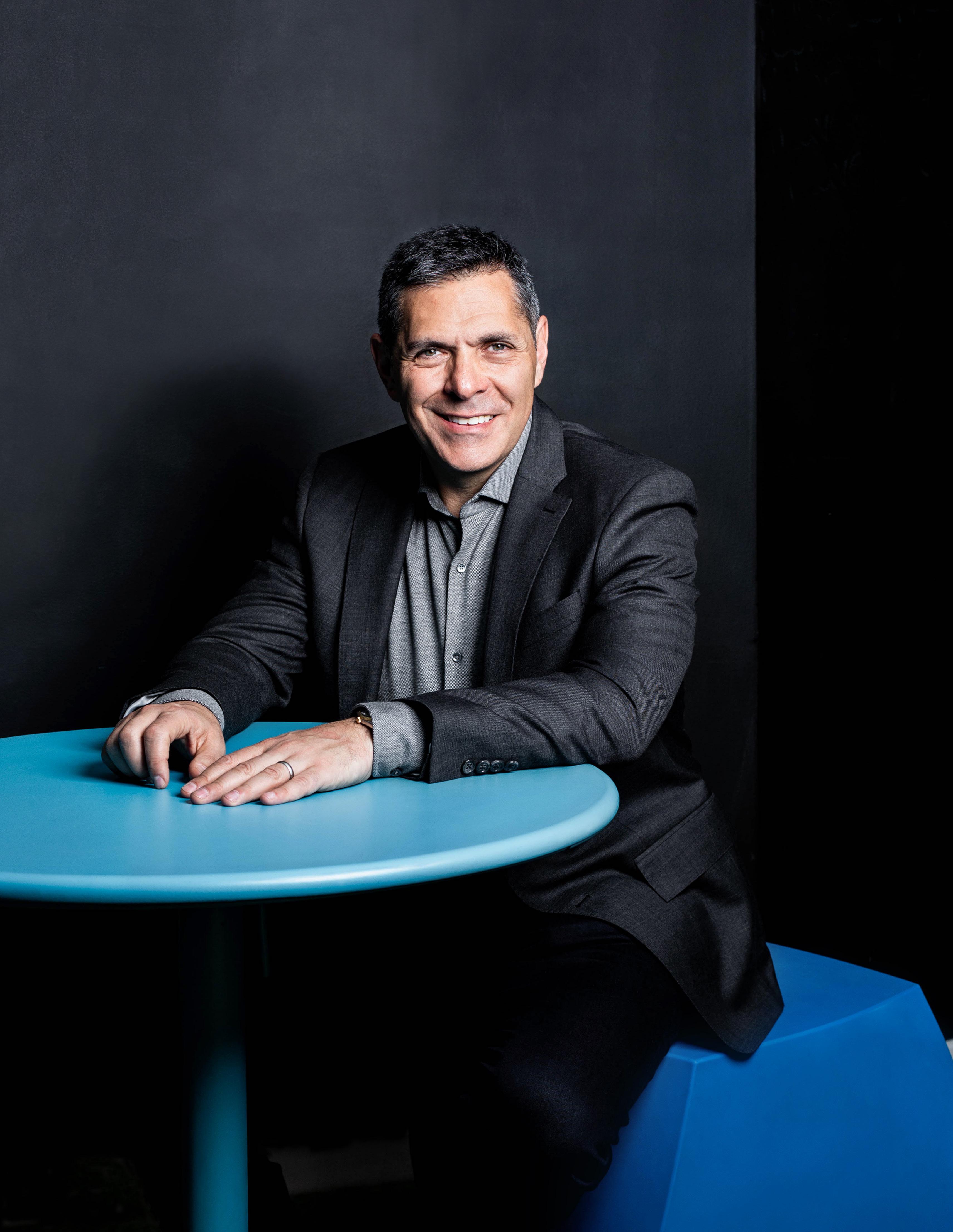
I’ve started in my life, Empatico has the most potential for transformative change.”
“Of everything
“HOLA RUBENCITO!” he shouted into the phone.
After we exchange pleasantries, and ask about each other’s families (he’s married now, with four children), I ask if the struggles he faced with PeaceWorks helped paved the way for the success he has enjoyed with KIND Snacks.
“It’s interesting you ask that question because only in the last week I had the following insight,” he said. “The first ten years of PeaceWorks, it was very tough. But in general, I thought that I was succeeding. And then I launched KIND, and very quickly it started exploding. I looked back at PeaceWorks and said to myself that it must have been a failure in retrospect. I guess KIND is how you do things . . .
“Then,” he continued, “just a few days ago, I started realizing that all of that is bullshit. To compare one against the other is a mistake. The reality is that it’s all about your attitude and your frame of reference at that moment. You have to make the best of it.”
Lubetzky has this relentless determination to achieve, create, and accomplish. The entire time I’ve known him, he has wrestled with unfinished business. He is never done. He is always looking for the next thing.
And so, I ask, what drives him?
“The easy answer is that, when you’re trying to build bridges and fight extremism and hatred, that work is never done,” he said. “But the other part that I cannot answer is where does my grit, or my competitive spirit, come from. It’s definitely not about
the money. I’m very lucky that I had financial success beyond anything I ever expected. And I think of myself as a good businessman—I know how to be a tough negotiator and how to create value for all parties. But that’s never driven me. I think what drives me is coming up with creative ways to do something. The process of creativity really turns me on. I’ve come to accept that creativity is one of my greatest rewards, intellectual stimulation and curiosity also. I love learning from others.”
It’s that love of learning—and the entire educational process—that, in 2017, led Lubetzky to launch a bold initiative to connect students around the world. The KIND Foundation has pledged $20 million over multiple years to fund Empatico, a free and simple tool that lets educators virtually connect their classrooms with other classrooms around the world. For children ages six to eleven, it provides activities, live video, file sharing, and a partnership with another classroom in a faraway place. The goal is to give students a greater understanding of similarities and differences, and to help them learn valuable life skills such as communication, critical thinking, cultural sensitivity, and active listening. All to create something the world needs: empathy.
Lubetzky lights up when he talks about the project, which is now operating in more than 150,000 classrooms in all 50 states and more than 130 countries.
“Of everything that I’ve started in my life, I think Empatico has the most potential
Daniel Talks:
Optimism in Today’s World
“It’s all about your attitude and your frame of reference. It’s up to you whether you commiserate and get sad about something or whether you make the best of it. I don’t think it’s about seeing the glass half full or seeing the glass empty, it’s about saying that you’re going to fill it up.
“And a lot of people are like, ‘Daniel, you’re such an optimist.’ But I don’t think that’s at all the case. I think it’s more that I’m determined to do something about it.
“I mean, you talk about today’s day and age and the reality is that I’m so terrified of what’s going on, no one would accuse me of being an optimist. I’m like really, really scared. My father went through the Holocaust, which is one of the darkest periods in history, and then the last sixty, seventy years we’ve been moving forward with a lot of progress where people really started breaking stereotypes—a lot of mistakes, but things moving in the right trajectory.
“And then, the last couple of years, it’s been stunning to see the rise of totalitarianism and authoritarianism and fascism and extremism and racism and hatred and dictatorships chipping away at established liberal democracies—whether it’s here in the United States or in Israel, Hungary, Poland, the United Kingdom, Mexico, Venezuela, Turkey, or Germany. Everywhere, monarchs are on the retreat and extremists are advancing.
“I’m really terrified about what we’re going to give our children, with problems with climate change, with plastic in the oceans. With all these different things that I’ve lived through during an incredible fifty-one years, I’m just really concerned about what we’re going to give our children.
“We need to do something. We can’t just commiserate.”
81 Hispanic Executive
Daniel
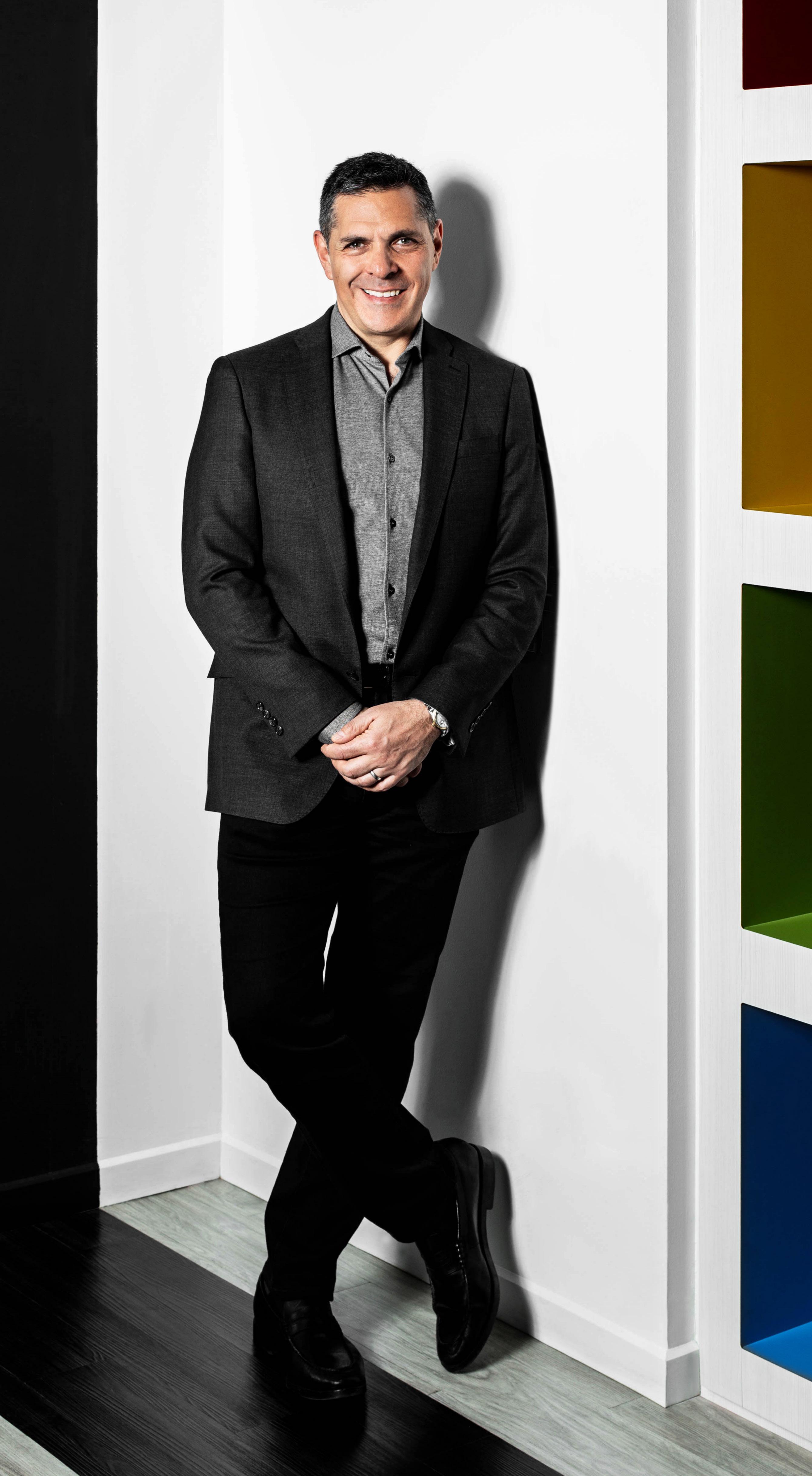
Talks:
Recognizing
Power Your
“It’s striking to me that a lot of people live their lives not recognizing the incredible power that they have to make change, even in the smallest of ways. You can choose to change the world for the better or for the worse— you will have an impact.
“Increasingly I’ve noticed that if you wait for somebody else to do stuff that you’ve noticed needs to get done, it’s not going to get done. And I’m not talking about picking up a piece of paper, I’m talking about things you need to do to improve society—if you notice that somebody’s not speaking up, don’t expect others to do it for you. If you notice that the oceans are not being cleaned or that immigrants are being attacked, you cannot wait for others to do that which you know needs to be done. Not that you can do it alone, but others cannot do it alone either. You have to work with people and recognize your powers as a protagonist to make a difference.”
82 Conversations at the Top
extremism and hatred, that work is never done.”
for transformative change,” he said enthusiastically. “It’s a platform, technology, and a set of tools to help teachers expand the horizons of their children and provide them essential social and emotional learning skills. It connects classrooms to each other, and it’s a matchmaking network so the classrooms can help the children discover each other’s humanity.”
Lubetzky also thinks a lot about nutrition, and what he considers the sacred duty of all food companies: to ensure their products promote good health. He worries that obesity and diabetes are on the rise in the United States, and he urges companies to not simply fall back on using refined sugar or flour over natural ingredients just because they’re cheaper. He says consumers pay for those decisions in the form of greater healthcare costs.
The businessman is backing up the sermon with a commitment of $25 million over ten years to create an independent nonprofit organization called Feed the Truth. Its objective is to fight the influence of the food industry on public health.
YOU ALWAYS HEAR CORPORATE LEADERS talk about how one can do well and, at the
same time, do good. But how often do we see it happen?
Lubetzky is pulling it off.
Recently, Mars Inc. announced that it was buying a 40 percent stake in KIND Snacks in a deal that values the company at more than $4 billion.
As founder, Lubetzky still controls the majority of the company. And just like that— though he would never bring it up—my friend’s personal net worth jumped to more than a billion dollars.

After about an hour on the phone, as our time together came to an end, I thanked Lubetzky for his time and friendship over the years.
“I’m very proud of you,” I told him. “You’re a good man, you’ve developed good products, you do good work, and you’re trying to be a good husband and father. So, in all the ways that matter, I’m proud of you.”
Take a look at the extraordinary journey of this young man and his family, from a Nazi concentration camp during World War II to corporate success in America eight decades later. From despair, came hope. From oppression, came opportunity. From darkness, came light.
That’s quite a magic trick.
“When you’re trying to build bridges and fight
83 Hispanic Executive
—Ruben Navarrette is a syndicated columnist with The Washington Post Writers Group, author of A Darker Shade of Crimson: Odyssey of a Harvard Chicano, and host of the podcast Navarrette Nation
GO THE GREATER O
84 The Greater Good
The executives featured here
are passionate about making an impact that is larger than themselves and their companies. With scopes both great and small—yet powerful nonetheless— they’ve found their purpose and aligned their careers accordingly. Now, they’re making a difference in the world, and we celebrate their efforts.
WILSON P86 CARLOS VIDAL Orangetheory Fitness ANGELIQUE SINA Friends of Puerto Rico ALFREDO RIVERA Coca-Cola CHRISTINE MONTENEGRO MCGRATH Mondelez International LUIS MADRIGAL Uber MARGITA THOMPSON California Resources Corporation JEANNETTE FERRAN ASTORGA Ascena Retail Group Inc. JAIME MATA AT&T RICARDO MADAN TEKsystems
WITH AN INTRODUCTION FROM OUR GUEST EDITOR: CID
D
look at five innovative
members of the Alumni Society’s Class of 2019 P104 91 96 100 106 110 116 120 124 128 plus 85 Hispanic Executive
A
passion projects being guided by select
CID WILSON
L
When you succeed, you give back. And when you give back, you succeed.
Pellentesque dapibus urna sed vulputate lobortis. Pellentesque ornare sem vel leo malesuada, quis finibus ipsum euismod. Curabitur lacinia justo vitae erat dignissim, eget cursus augue tempor. Cras ac nibh nec libero mollis scelerisque vel ut sem.
AT THE HISPANIC ASSOCIATION on Corporate Responsibility (HACR), we work every day to advance Hispanic inclusion in corporate America.
As president and CEO of HACR, I’m often asked by companies and Latino professionals how to balance professional commitments with community activities. When companies allow their Latino employees to participate in the community, it has a positive impact—not only for the employees, but also the employer and the overall Latino community.
As you succeed, you give back. And when you give back, you succeed.
how I balanced my community and corporate energies: “When you succeed, you give back. And when you give back, you succeed.”
Donec vehicula ante eros, id iaculis erat mattis ut.
I can attest to this as one who, for more than twenty-one years on Wall Street prior to joining HACR, balanced my professional work with my deep commitment to the community. As I was increasing my community commitment, I found that it had a positive impact on my professional performance and, ultimately, corporate advancements. And so I coined a phrase which captures my belief in
When I got the communication from Forbes in 2006 that I was ranked as the number one Wall Street financial analyst in my field, it was one of the biggest achievements in my professional career. What many people didn’t know was that the measuring period of my Wall Street ranking overlapped with the period of my active involvement in Latino public policy organizations and dozens of visits to Washington, DC—including multiple participations to join community leaders to stop the Sensenbrenner Bill from passing Congress when it was introduced in 2005. That bill was the notorious anti-immigrant bill that, had it passed, would have allowed for the felony prosecution of anyone who gives any level of assistance (even a drink of water) to
A LETTER FROM OUR GUEST EDITOR, LILIANA GIL VALLETTA
orem ipsum dolor sit amet, consectetur adipiscing elit.
A LETTER FROM OUR GUEST EDITOR:
86 The Greater Good

DAWIN RODRIGUEZ
JUAN TORRICO 87 Hispanic Executive
Cid Wilson President and CEO Hispanic Association on Corporate Responsibility
an undocumented immigrant. That bill thankfully failed in 2006, and later that year, I got the news of my ranking from Forbes
At that time, I was the leader of a national Dominican American organization and just joined the board of directors of LatinoJustice PRLDEF (then known as the Puerto Rican Legal Defense and Education Fund). Over my many years on Wall Street, it was not unusual for me to come into my NYC office at 7:00 a.m., work my tail off until 2:00 p.m., catch a 3:00 p.m. Amtrak train to Washington, DC, in time for evening commitments, take the 10:00 p.m. train back to New Jersey where I lived, and start the day over again, waking up at 4:30 a.m. to be back in my office by 7:00 a.m. It was also not unusual for me to travel to Washington, Trenton, or back home to Bergen County, New Jersey, for community engagements during the day while multitasking on client responsibilities.
My employer at the time was very supportive because it fostered retention at the company and I had built a strong credibility over multiple years that
I could accomplish my work commitments and grow my Wall Street visibility and clients while simultaneously supporting immigrant, community, and civil rights issues—most recently my deep involvement in the ultimate passage of the New Jersey DREAM Act into law in 2013, just a few months before joining HACR in 2014.
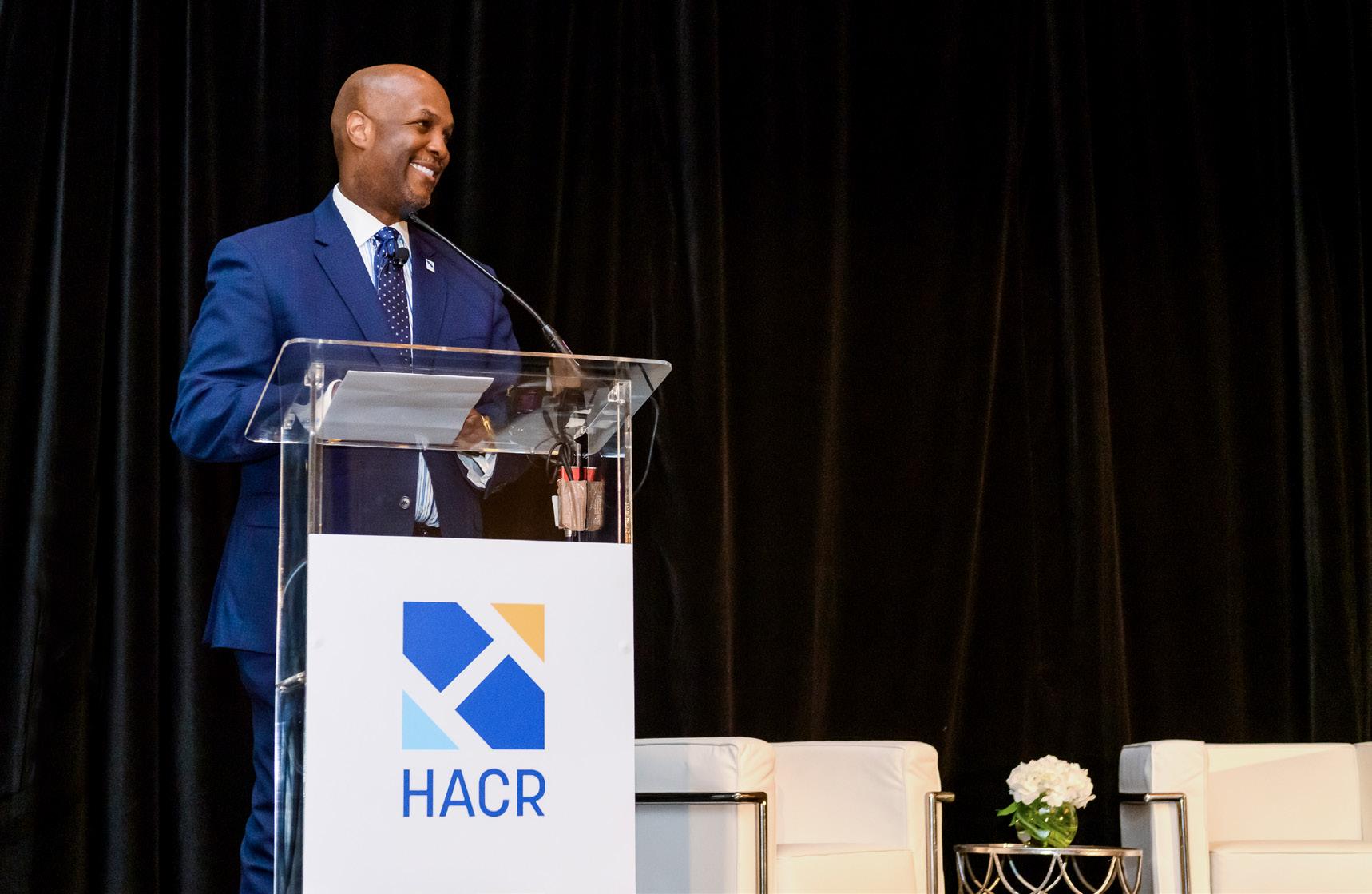
This also led to a level of visibility that included multiple corporate advisory boards, additional national nonprofit board appointments, and a direct appointment by President Barack Obama to the National Museum of the American Latino Commission to make the case to Congress for the creation of a new Smithsonian American Latino Museum on the National Mall.
My experience through these years proved that professional success and giving back are linked together in a full-circle mind-set. As I succeeded professionally, I gave back to my community and the causes about which I was passionate. And when I gave back, it furthered my professional and personal success.
88
CHRISTOPHER JASON STUDIOS
The Greater Good
The Business Benefits of Giving Back
Are there benefits to both the employees and employers—and ultimately the Latino community? And can this help lead to future appointments to corporate boards or prominent national nonprofit boards?
The answer is: YES to all.
To COMPANIES, the benefits of allowing Latino employees— from the front line to the C-suite—to actively participate in community causes or organizations are the following:
■ Employees who actively engage in the community are more likely to stay at your company even if there is a better opportunity elsewhere. This means less employee turnover, greater work productivity, better business performance, and a stronger corporate brand as the employee becomes an external ambassador for the company.
■ Employees perform better and more efficiently in the workplace when they have a balance of community and corporate commitments. It’s like the old saying, “If you want something done, find someone who is busy and ask if they can do it”—meaning that employees with limited time know how to manage tasks better than those with a lot of free time.
■ Employees can bring those community connections into the company through employee resource groups, corporate diversity councils, multicultural marketing, diversity-focused hiring strategies, and corporate culture that adapts to the growing population and economic influence of the US Latino community.
To MIDCAREER LATINO EMPLOYEES, the benefits of balancing corporate and community commitments include the following:
■ You’re presented with opportunities to join nonprofit boards that align to your values, whether they’re local, regional, or national organizations.
■ Your employer may financially support your community activities by sponsoring the organizations that are connected you.
■ If you combine your external activities with your participation in your company’s employee resource group, it could accelerate your visibility inside the company, which could potentially help advance your career.
89 Hispanic Executive
To HIGH-RANKING LATINO EXECUTIVES, the benefits of being active in the community include the following:
■ You may have access to greater financial support from your company’s foundation, especially if it’s for a prominent nonprofit board appointment such as the boards of museums, hospitals, scholarship foundations, colleges (especially private colleges), nationally-renowned organizations, etc. With your participation on higher-profile (and thus higher financial give-get) nonprofit organizations, you have a better chance of getting nominated to a future corporate board or a corporate advisory board.
■ If your executive role requires frequent relocations, your company’s foundation may help ease the transition by supporting your nonprofit board appointments in the new city of your job relocation, especially organizations with an existing relationship with the company.
■ You become a visible role model of corporate success to employees who aspire to reach your level of success as measured by your professional and community accomplishments.
■ You may experience a greater sense of commitment to succeed in your professional position since doing so would build credibility with your employer to allow you to participate in community organizations, without worry that it will adversely impact your work productivity.
I very much believe that when you succeed, you give back and when you give back, you succeed. This is not only a recipe for companies to support their Latino talent in their involvement in the community, it is a win for Latino employees and executives who are given the flexibility to perform successfully in their professional careers while supporting Latino causes as they rise up the corporate ladder at their companies.
In the end, we all succeed when our Latino community is empowered. When we have a large number of Latino executive leaders in corporate America, it ultimately leads to a stronger community with more corporate volunteering, philanthropy, CSR performance, greater branding, and better business performance compared to companies that do not allow the same level of corporate-community engagements by their Latino employees. All in all, advancing Hispanic inclusion in corporate America, which is the mission of HACR, can lead to great benefits.
As you think about increasing your external and community participation, remember that when you succeed, you give back. And when you give back, you succeed!
“My experience proves that professional success and giving back are linked together in a fullcircle mind-set.”
90 The Greater Good
Carlos Vidal President of International Development Orangetheory Fitness
Mobilizing Mobility for
BY KC ESPER
CARLOS VIDAL HAS BEEN in franchise development for his entire professional career. For the past twenty-five years, he has worked internationally to expand big, household names like McDonald’s, Pizza Hut, KFC, Taco Bell, Dunkin’ Donuts, and Baskin-Robbins. Moreover, he has worked to help develop more than just commodity food brands, such as the Spanish dry cleaning and laundry service Pressto, where he helped open over 550 new units in 21 countries. Now, Vidal stands as president of international development for the global boutique fitness franchise Orangetheory Fitness, where he guides the company toward new geographic areas of opportunity.
Regardless of the service, Vidal has noticed common threads between each of his positions, and over time he’s established credible, timeless goals that teams can successfully develop to expand their brands.
First, Vidal says, it’s important to prioritize. “You must put the franchisee first,” he explains. “Expanding a franchise network only works if it works for the franchisee at studio level, which is

Carlos Vidal leads efforts in bringing a healthier, more vibrant life to people worldwide through the development of Orangetheory Fitness studios
COURTESY OF ORANGETHEORY FITNESS 91 Hispanic Executive
something franchising companies should execute diligently and consistently—otherwise the two won’t be successful in the long term.”
Secondly, Vidal says that his time working in sales development allotted him important foundational knowledge about the brand that aided in his tactic for expansion. “In order to be able to sell the product, you should know your product and the industry very well,” he says, simply. But on top of industry knowledge, Vidal says that developing relationships is the final, essential component to successfully allowing a company to thrive and expand. “The people component is always critical,” he says. “Building relationships at all levels, from internal teams to external suppliers and collaborators, is important, and you achieve that with good communication about how you lead and ensuring that they share the vision you paint.”
At Orangetheory, Vidal has used these lessons to expand the fitness giant to several new locations across the globe, in addition to the twenty-three different countries in which it currently operates. In 2019, the international development team opened more than fifty new units and several new markets—a feat that required Vidal to grow his team and one that ultimately set the groundwork for future international growth. He predicts that the brand will be able to open up three thousand new studios around the world.
Naturally, with footprints in countries like Japan, Australia, and the UK, Orangetheory and Vidal must also take into consideration the nuances that come with moving into each market. Orangetheory’s model, however, gives Vidal a leg up in that its mission never gets lost in translation regardless of where it moves.
“Unlike the food industry, where each country has different palates, suppliers, qualities, and eating habits, the fitness industry is very much the same,” Vidal explains. “Our mission and vision statement
are that we exist to help people live a healthier, more vibrant life. What you do in the workout gives you more life outside of the studio. It seems simple and straightforward, but it fuels our higher goal. With that in mind, we want our workout to get to each corner of the world because we feel, as long as you have a body, you can relate to our mission.”
Classes at Orangetheory seek to uphold a sense of community within each session. Furthermore, each workout is “scientifically backed, technology tracked, and professionally coach-led.” People work out in groups, using a combination of exercises on treadmills, rowers, and free-weight stations, and function on a model that allows each member to hold themselves accountable through their heart-rate monitors. Members push and support each other, and a sense of community is created. This fitness model based on the mentioned trifecta, in addition to being a “very unique brand that is difficult to copy,” also influences the organization from top to bottom, both operationally and interpersonally.
“When I came here, I immediately saw a very strong culture with people focused on a caring ecosystem as a whole—on community-building from the members’ perspectives and the employees’,” Vidal expresses. “There was so much passion within the company and within the community outside of the office. There are so many life-changing stories that people share, not only about their weight-loss journeys, but more importantly about whole-human transformations. And that passion is contagious. You definitely want to be in a place with that kind of vibe and be part of it.”
As Vidal helps Orangetheory embark on its expansion, he keeps this community-centric mentality within his own team—a group which he admits constantly impresses him. He calls his team “a tribe within a tribe.” The group functions heavily on communication and motivation, much like the sessions that members are a part of at any
92 The Greater Good

COURTESY OF ORANGETHEORY FITNESS
“We have a role in this global fight against sedentarism and obesity. Everyone at Orangetheory does so much to create that sense of belonging and catapult change.”
A Good Sport
Carlos Vidal’s passion for sports was ingrained in him long before he moved into the fitness space. Throughout his life, he experimented with playing several sports, from basketball to swimming to martial arts.
“I’ve always been a big fan of sports, but I always like more to participate in them rather than being a spectator—I’ve always wanted to be really good at something,” Vidal says. “But, over time, I’ve learned that to get really good at something, you have to be laserfocused rather than willing to try new sports. Nowadays, for me, it’s all about keeping a healthy lifestyle rather than learning a new, specific activity. So, I’ve shifted my focus to less-competitive disciplines and more outdoor activities like swimming, cycling, hiking, some weight training, and, of course, a few sessions at Orangetheory to round out my workouts and keep me in shape.”
Vidal’s open mind and passion for play fuels his active spirit both inside and outside the office. At home, his two young kids follow in his footsteps by getting involved with several of their own sports, while harnessing Vidal’s team-oriented mentality.
“I like playing soccer with my boy and I always enjoy attending my little girl’s activities, even if I can’t help her practice gymnastics and ballet,” Vidal says. “I mostly just try to keep up with them—that’s kind of a sport in itself!”
Orangetheory Fitness center. This method has allowed Vidal to create meaningful connections with his team, allowing them to reach greater goals.
“It’s about supporting them the way they are,” Vidal says. “We must communicate a lot to understand what drives people and what motivates them, so we don’t assume that everyone is motivated the same way. I’ve learned that it’s important to give people the tools they need to carry out the work given to them, as well as the space they need to express themselves.”
While Vidal recognizes the importance of meeting his team where they are, he strives to push them toward accomplishing greater things. He says he wants them to “make their own mistakes, take risks, and confront each other with different perspectives.” Vidal’s efforts have allowed his team to function independently, inspiring them to develop their own ways of achieving goals and creating strategic discussions in, what Vidal calls, “a very participative team environment.”
As the international development team moves toward its goal of expanding Orangetheory exponentially, Vidal believes that this level of engagement will be key in furthering the company’s mission of attacking the world’s evasive, sedentary lifestyle. He says, “We have a role in this global fight against sedentarism and obesity. Everyone at Orangetheory does so much to create that sense of belonging and catapult change.”
While Vidal drives the organization’s development, he’s confident that Orangetheory’s contagious passion will follow along with its growing network, regardless of where it expands next. With hands across the globe all reaching to help each other up, Orangetheory is making the wish for a healthier world into a reality.
“When people ask me about my job, I tell them I am in the business of changing lives,” he says. “Orangetheory gives me the opportunity to be part of a higher mission, something that is really worthy.”

COURTESY OF ORANGETHEORY FITNESS

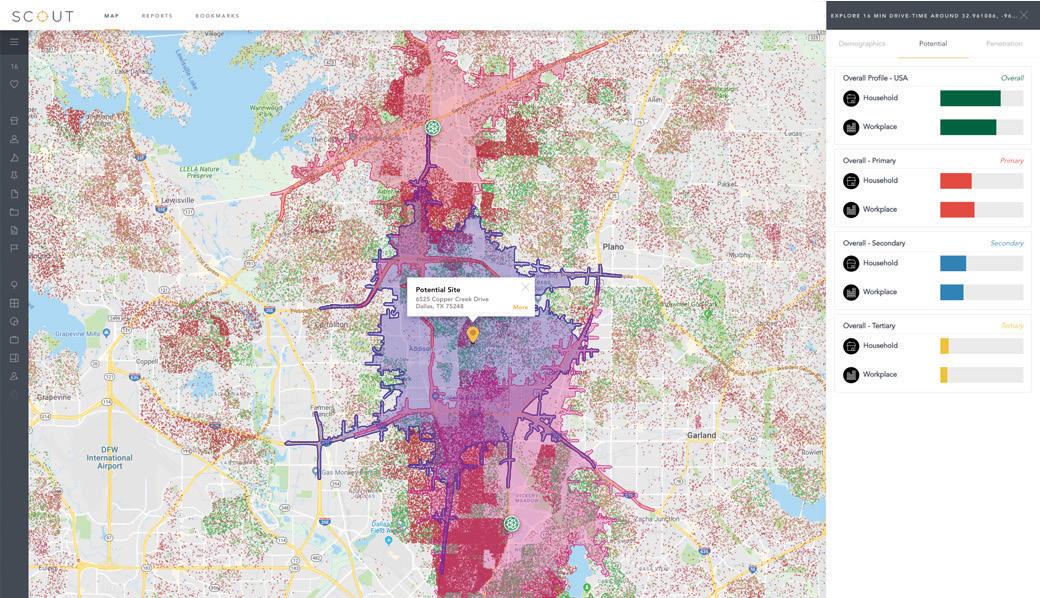
SELL MORE FRANCHISES WITH CUSTOMER ANALYTICS SOLUTIONS FOR FRANCHISORS: Site Selection Territory Optimization Local Store Marketing WWW.BUXTONCO.COM Buxton helps you understand what drives success at your best locations and defines the optimal size of your territories to support franchise sales. Avoid underselling markets and establish your brand in new markets by using customer analytics to drive your strategy.
Who Your Know Friends Are
As president of the nonprofit Friends of Puerto Rico, Angelique Sina invests in the entrepreneurs and future leaders of her island
BY LIOR PHILLIPS
GROWING UP IN PUERTO RICO, Angelique Sina belonged to a third-generation entrepreneurial family and found herself immersed in the business world. Interested in the field, she was surrounded by people to whom she could look for advice. Still, when she finished her bachelor’s degree at the University of Puerto Rico in Aguadilla, Sina decided to move to Washington, DC, to take on a public affairs internship with the US House of Representatives.
“I had never lived in a big city, especially in a city like Washington, DC, where I got to meet all of the who’s who of the world,” she says. “I met ambassadors and elected officials. I worked at the United States Congress for my representative and was the liaison for the White House—all at twenty-one years old.” The experience empowered Sina. Her business acumen and passion to make a difference eventually converged—and today has culminated with a role as cofounder and president of the nonprofit organization Friends of Puerto Rico.
Sina eagerly set to work when she first arrived in DC, bolstered by a network of experienced professionals. “I had really amazing mentors who

96 The Greater Good

MOSHE ZUSMAN
Angelique Sina President Friends of Puerto Rico
helped me understand how to navigate politics, and they’ve continued to support me in so many ways,” she says. She was learning how to adapt to a new arena—which proved essential as she moved into other fields. Sina left Capitol Hill in 2012 to become relationship manager for the World Bank Group, leading the way on international financing from the Bank’s private sector member institution, the International Finance Corporation.
“That really allowed me to start working internationally—with countries in Africa and Latin America,” Sina says. And she saw the opportunity to make an even bigger difference: “More than anything, I started to understand how we can invest in emerging markets and developing countries for the greater good. Coming from a small island and moving to Washington, DC, I got a better picture of what’s needed in the world and what role we can each play in making the change that we want to see.”
Sina was inspired to fully make the leap into that philanthropic world after a trip to Ghana. A fund she was working with at the time provided finance education to individuals in other countries, and the African nation was a very important country in Sina’s portfolio. The fund had established an innovative financing campaign to raise $2 billion to improve prospects for students in the world’s poorest countries.
“I went to a school, and I saw that it had a computer lab. I remembered being back home in Puerto Rico, and one of the schools very close to where my family lived did not have a computer lab,” she says. “I would travel to other countries and compare circumstances, and it made me decide that we needed to do something specifically for Puerto Rico.” As a result, Sina was one of a group to found Friends of Puerto Rico in 2015 as a way to build philanthropy on the island. In its first few years, the nonprofit has created a network of more than thirty thousand donors and has more than fifty partner organizations.
Though those numbers have grown quickly, Sina didn’t always know how Friends of Puerto Rico would achieve its goal of developing an economic and innovation hub while investing in the island’s future leaders and entrepreneurs. Sina had never started her own organization, let alone a 501(c)(3). That’s where Nelson Colon, president of the Puerto Rico Community Foundation, stepped in, offering guidance on corporate governance principles. “I told him I wanted to do this, but I didn’t know if it was too crazy,” Sina says. “Colon gave me incredible advice: ‘Don’t be afraid of crazy ideas.’”
Some of the first projects focused on the arts, supporting the Museo de Arte de Ponce and establishing art education and entrepreneurship scholarships. Puerto Rico’s needs were evident and great
98 The Greater Good
As women, sometimes we’re so busy working that we forget that we really need to connect with other women and share our exper ience—especially in our thirties and forties, when we still have so much of our careers left.”
when the organization was first theorized—but that only became more intense after Hurricane Maria wreaked havoc two years later.
“When the hurricane happened, people were trying to gather food and supplies, but I felt that raising funds would be easier and a more viable way to provide assistance,” Sina says. Within a few weeks, a fund-raiser she posted on Facebook raised more than $1 million. And the good news didn’t stop there. “Verizon contacted us and offered to contribute a $1 million check. They knew we were focused on really making a difference, and they called us, unsolicited,” she says.
As a symbol of the island’s resilience and a next step towards further recovery, Friends of Puerto Rico began the Café Ama project. Though the hurricane destroyed 85 percent of the coffee grown in Puerto Rico, one of Sina’s friends owned a coffee farm with a strain of bean that had survived the storm.
“We thought we could buy it from the farm, highlight its resilience in surviving the hurricane,
their full potential. We’re doing that through the power of coffee and a program that’ll teach them how to have their own agribusiness.”
Another key initiative that Friends of Puerto Rico have developed is AMIGAS, an influential global network of women who mentor, foster, and empower other women to become investors in the future of Puerto Rico. “As women, sometimes we’re so busy working that we forget that we really need to connect with other women and share our experience—especially in our thirties and forties, when we still have so much of our careers left and we need to pay it forward,” Sina says.
Throughout the initiatives, Sina is reminded of the individual lives the organization has impacted. One story comes to mind instantly.
“We heard from one nineteen-year-old who came from a history of abuse and had been abandoned by his parents. He was living in a car he had traded for his cellphone,” Sina says. “We helped
and sell it as Café Ama, a social impact coffee— with all the funds the coffee generates going towards youth entrepreneurship for Hurricane Maria survivors,” Sina says. “Puerto Rico has the highest poverty rate in all of the United States, with 60 percent of children under eighteen in poverty. That number will increase now, two years after the hurricane.
“We want to teach them to be self-sufficient and to have the skills of an entrepreneur and leader so that no matter what happens, they’re able to live out
him become an entrepreneur. We bought him a lawn mower and all the equipment that he needed to help other people fix their homes. A story like that just fills our hearts. He’ll be a wonderful member of the community in Puerto Rico and help jump-start the local economy, which is so important. We’re always making more friends that are interested in changing the world. If we each do one small act of kindness every day, the world will be a better place.”
“More than anything, I started to understand how we can invest in emerging markets and developing countries for the greater good.”
99 Hispanic Executive
for the Change Machine
BY BILLY YOST
FOR THE GROUP PRESIDENT of Coca-Cola in Latin America, change has always been—and always will be—at the center of the conversation. As both his life and career have blossomed, Alfredo Rivera, who was raised in the developing country of Honduras, has worked tirelessly to empower those very same types of embattled environments. He’s lobbied for increasing consciousness at Coca-Cola as he’s built sustainability and economic opportunities for communities in need. Over the course of twenty-plus years at Coca-Cola, Rivera has helped drive significant progress—the only thing that’s remained steady during his tenure has been a commitment to change and his leadership when it comes to cascading that ethos.
“I think what has made me comfortable at Coke is what I think is usually true for anyone who’s in a job for a long period of time that they enjoy: we have the same values,” Rivera says. “It has been a tremendous opportunity and privilege to be part of a system that has allowed me to make an impact on the business and the communities in which it operates. The worst thing you can be is a victim of change.”
A cycling enthusiast and father of four, Rivera has self-identified as a change agent since reading In Search of Excellence, the 1982 best seller by Tom Peters and Robert H. Waterman Jr. that explores the successful management techniques of high-profile businesses during the fertile era of the ’80s. “Up until then I was only interested in doing good work in my role, doing what was expected,” Rivera explains. “That book made me think about how my role could go well beyond that, challenging me to think of new ideas and how things could be done differently to generate better results.”
Rivera says the reason for his success lies on the fact that he is never willing to just settle for a position as it’s defined. “Every role I’ve ever had, I wanted to change,” Rivera admits. “I understood that my role wasn’t just to manage, it was to drive and incorporate different ideas and find ways to positively impact the business.”
It’s due to the commitment of the company and bottlers to build a better world that Rivera has been so energized to double down on Coca-Cola’s work with sustainable packaging and water stewardship, as well as its efforts to empower women
As Coca-Cola’s group president for Latin America, Alfredo Rivera leads the company to make a difference where it matters most
100 The Greater Good
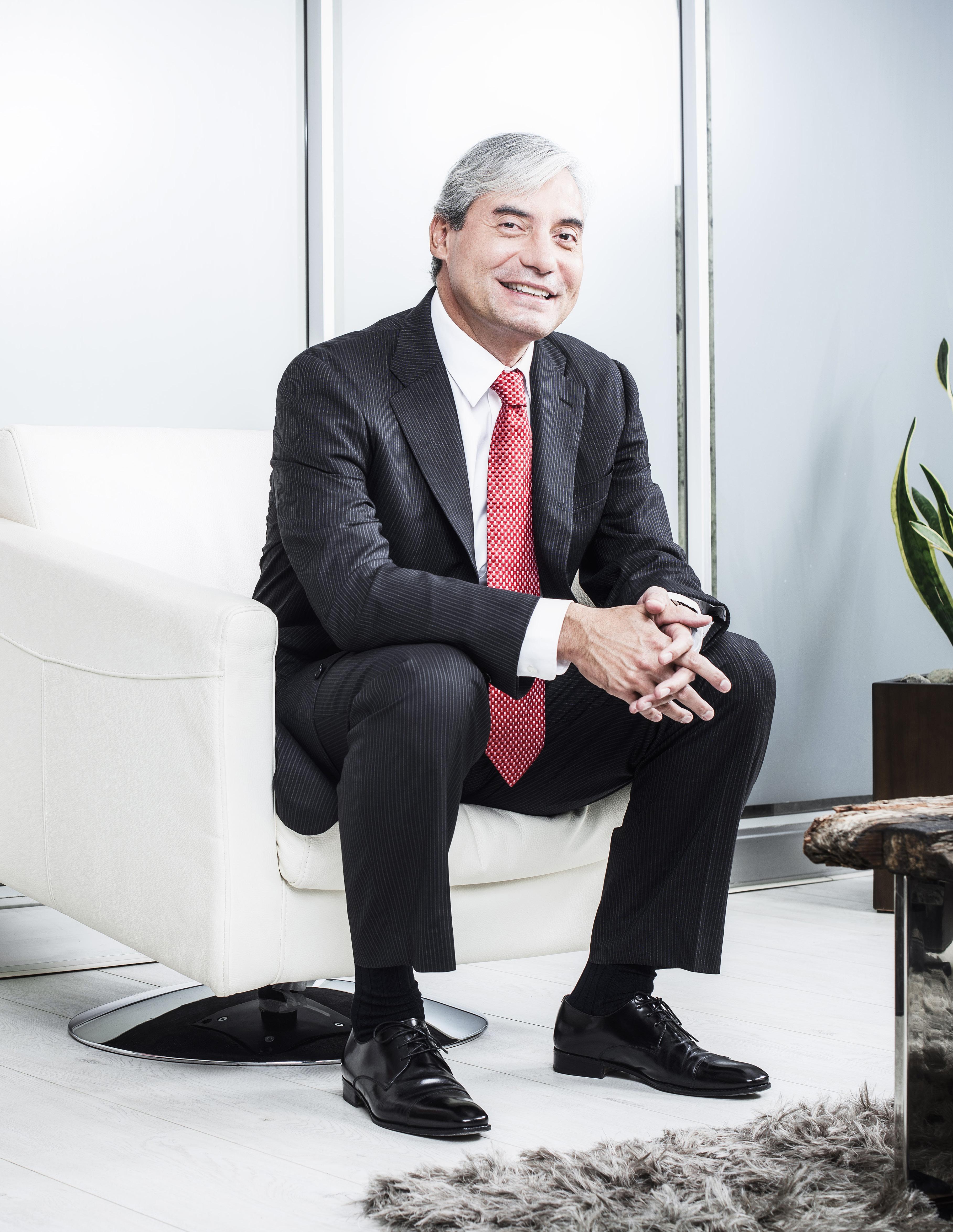 Alfredo Rivera
Group President, Latin America
Alfredo Rivera
Group President, Latin America
COURTESY
Coca-Cola
OF COCA-COLA
across countries. In 2010, the company announced its 5by20 initiative with the aim of enabling the economic empowerment of five million women entrepreneurs within the company’s global value chain by 2020. That grouping features small businesses in over ninety countries and includes occupations ranging from fruit farmer, shop owner, recycler, or artisan, all tied to Coca-Cola’s supply chain. At the end of 2018, Coca-Cola had helped to empower over 3.4 million women.
In Latin America, for instance, the farming quality of a thriving Haitian mango business was so vastly improved that it was able to export fruit to be sold at Whole Foods. In Brazil, women are being taught how to repurpose recycled materials, transforming them into works of art for sale. In Mexico, Argentina, Ecuador, and throughout Latin America, owners of small mom-and-pop operations are able to provide better education, health, and food to their families, thanks to substantial and proven sales and revenue increases.
“We’re helping to create a revenue stream for women in low income neighborhoods where they are often the caretakers and breadwinners for their families,” Rivera says. “In some cases we’re helping develop new businesses, and in other cases we’re able to help small businesses become more successful.”
Also in 2018, Coca-Cola announced its World Without Waste initiative, which is focused on the lofty goal of collecting and recycling the equivalent of every bottle or can it sells globally by 2030. It also wants new bottles to contain at least 50 percent recycled content by the same year. “Consumers around the world care about our planet. They want and expect companies like ours to be leaders and help make a litter-free world possible,” explains Coca-Cola Chairman and CEO James Quincey in a prepared statement. “Through our World Without Waste vision, we are investing in our planet and in
102 The Greater Good
I understood that my role wasn’t just to manage, it was to drive and incorporate different ideas and find ways to positively impact the business.”
our packaging to help make the world’s packaging problem a thing of the past.”
There have also been significant changes and expansion of the product portfolio, which Rivera has promoted and led enthusiastically. These respond to the ever-changing consumer tastes and preferences. Coca-Cola Latin America has been expanding its beverage offers exponentially with new products in dairy, plant-based beverages, energy drinks, advanced waters and juices, and juicebased products. Of note is also the strategic intent to reduce sugar in as many products as possible, which has led to trillions of calories being removed from the marketplace.
Rivera believes that initiatives like these are the changes that will place Coca-Cola and its bottlers in a valued and trusted position in the market for another 130 years. “I feel very lucky that our CEO and chairman, and our COO trusted me enough to give me these responsibilities,” Rivera says. “I am committed to helping that transformation, and, to be honest, it’s always more exciting to be in a transformation role than that of a caretaker.”
Embracing risk has always been a big part of Rivera’s philosophy, especially when early in his career he accepted a new job outside of his home country of Honduras. “My wife and I asked each other, ‘What is the worst that could happen?’ That if things don’t work out we might have to move home and rely on our family and friends for a while,” Rivera says. “But that’s the best advice I can give someone who is young in their career: At some point you will be given a choice, and one choice will seem much riskier than the other. You’re young. You have a long life ahead of you. Take that risk.”
Rivera’s own penchant for taking chances indicates that the path less traveled is the best road taken. “Some people didn’t understand why I took such a risk at a young age—but I just knew I needed a change.”
ONE STEP AHEAD
Arca Continental strives to lead and generate the maximum value in every market and business we serve. We are determined to go one step further at all times in terms of our operational, financial, environmental, and social performance.
Arca Continental is the second-largest Coca-Cola bottler in Latin America and one of the largest in the world. Within its Coca-Cola franchise territory, the Company serves over 123 million consumers in Northern and Western Mexico, Ecuador, Peru, Northern Argentina and the Southwest region of the U.S.

We also compete in the snacks industry with Bokados in Mexico, Inalecsa in Ecuador, and Wise and Deep River in the U.S.
www.arcacontal.com
Latino-Led Passion Projects
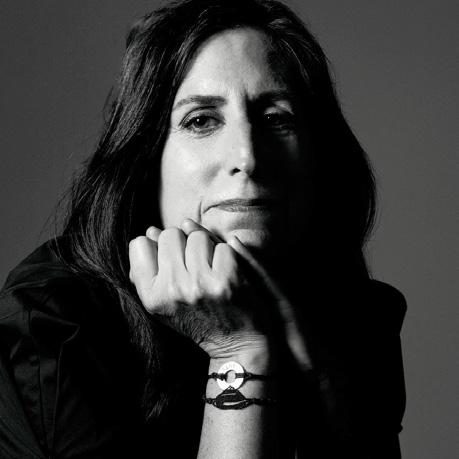
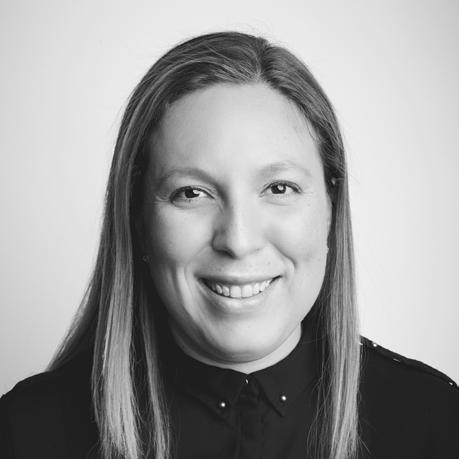
25 % of all Hispanic-owned employer businesses are owned by Latinas

IN ADDITION TO THE LEADERS featured in this issue, the following initiatives also warrant the spotlight. They are being led by five exemplary Latinos from the Alumni Society’s Class of 2019. In disrupting a broad spectrum of industries—from government to healthcare, sports, technology, and media—these members of the esteemed Latino network have shown that, collectively, they have the head and the heart to make a strong impact in today’s society.

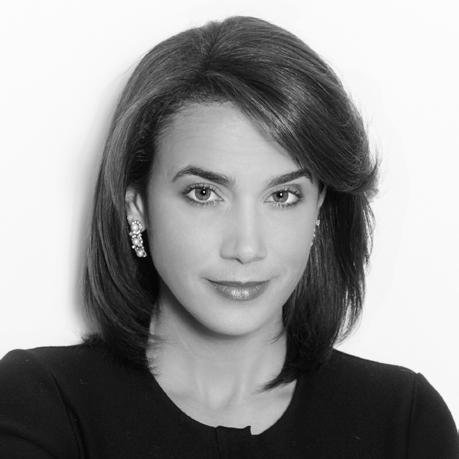 Cristina Antelo
Andrea Perez
Nonny de la Peña
Miguel Quiroga
Cristina Antelo
Andrea Perez
Nonny de la Peña
Miguel Quiroga
CHOICE
NIKE
VISIBLE
COURTESY OF ALZHEIMER’S
Dr. Maria Carrillo
PHOTOGRAPHY (ANTELO), COURTESY OF
(PEREZ) , GREGORY HARRIS (DE LA PEÑA),
(QUIROGA),
ASSOCIATION (CARILLO)
Ferox Strategies
Aptly named, Ferox Strategies is a ferocious, fierce, and aggressive advisory and government-relations firm that works on strategic campaigns and brand management. Led by the equally fierce Latina Cristina Antelo, the firm is a 2018 top lobbying start-up that recently welcomed a second Latino principal, Mark Williams, building an even stronger bipartisan firm with reach across both sides of the aisle. Through the firm and her work with the Congressional Hispanic Caucus Institute, Antelo is activating her passion for increasing Latino representation at the highest levels of the federal government.
Jordan Women
The iconic Nike Jordan brand, known mostly for menswear, has expanded to include a women’s brand as well. That effort was led by Andrea Perez, a former athlete from Guadalajara, Mexico, who joined Nike to pursue her passion of elevating women’s sports. Perez built Jordan Women from the ground up, and says, “Every time I can contribute to building a better future for our communities, especially women’s sports, I feel lucky.”
REACH
A new technology that elevates a story into an immersive experience, REACH is a passion project of Emblematic Group, led by CEO and virtual reality (VR) aficionado Nonny de la Peña. “The world is simply not flat,” de la Peña says. “The world has dimensions. And yet, what we experience in our media has always been without dimension.” De la Peña is giving VR storytelling power to anyone with Internet access via the URL reach.love. She explains, “The kinds of stories that are going to be told are much more diverse. Anybody can step up and start working in the medium.”
US POINTER Study
The US Study to Protect Brain Health Through Lifestyle Intervention to Reduce Risk, abbreviated US POINTER, is a two-year clinical trial led by Dr. Maria Carrillo, chief science officer of the Alzheimer’s Association. The trial is particularly focused on studying diverse populations in multiple locations around the country. “Almost two-thirds of Americans with Alzheimer’s are women. Hispanics are about one-and-a-half times as likely to develop Alzheimer’s and other dementias than older whites,” Carrillo says. “We need to study more diverse populations to see how the disease affects various people. Right now, most of the available research is on study participants who are white and have northern European ancestry.”
Visible Connect
A nine-month accelerator program for nonprofits using mobile technology to make a difference, Visible Connect is another arm of the start-up Visible, which was founded by CEO Miguel Quiroga in 2018 as the first all-digital wireless carrier in the US. In fact, Visible Connect kicked off before Visible itself launched a product or service. “We’re a new company aiming to completely overhaul a sleepy but giant industry,” Quiroga says. “In thinking about a key part of our identity and foundation—our approach to social good and impact—and in following learnings from comprehensive research, it only made sense for us to align ourselves with other new organizations and founders who are also making a true difference in their fields.” In Visible Connect’s first year, more than four million lives were impacted by the nonprofits in the program.
105 Hispanic Executive
SourcingSustainably
Christine Montenegro McGrath on Mondelēz’s Cocoa Life sustainability initiative
BY BILLY YOST PORTRAITS BY CASS DAVIS
CHOCOLATE MAY BE THE LIFEBLOOD for many a hungry snacker, but from where cocoa, the essence of that chocolate, originates has come to mean a lot more for food and beverage giant Mondelēz International. In 2018, the company confirmed a commitment to deliver on a broader mission.
“Our purpose at Mondelēz International is to empower people to snack right by offering consumers the right snack for the right moment, made the right way,” explains Christine Montenegro McGrath in a company progress report. And as the vice president and chief of global impact, sustainability, and well-being, she recognizes it’s on her. “This means offering a broad range of delicious, high-quality snacks to satisfy consumers’ growing well-being needs, with sustainably sourced ingredients that people know and feel good about.”
One way this purpose comes to life at Mondelēz International is through Cocoa Life, a program launched in 2012 to drive lasting and positive change in the cocoa farming industry and for those who earn a living from cocoa. “We cocreate solutions to make cocoa farming a business of choice and to empower communities to take on their own development while conserving natural resources,” McGrath says in the progress report. The VP spearheaded the initiative, ensuring that Mondelēz International is on its way to improving origins around the world from which it sources cocoa.
106
The Greater Good
Christine Montenegro McGrath VP and Chief of Global Impact, Sustainability & Well-Being Mondelēz International
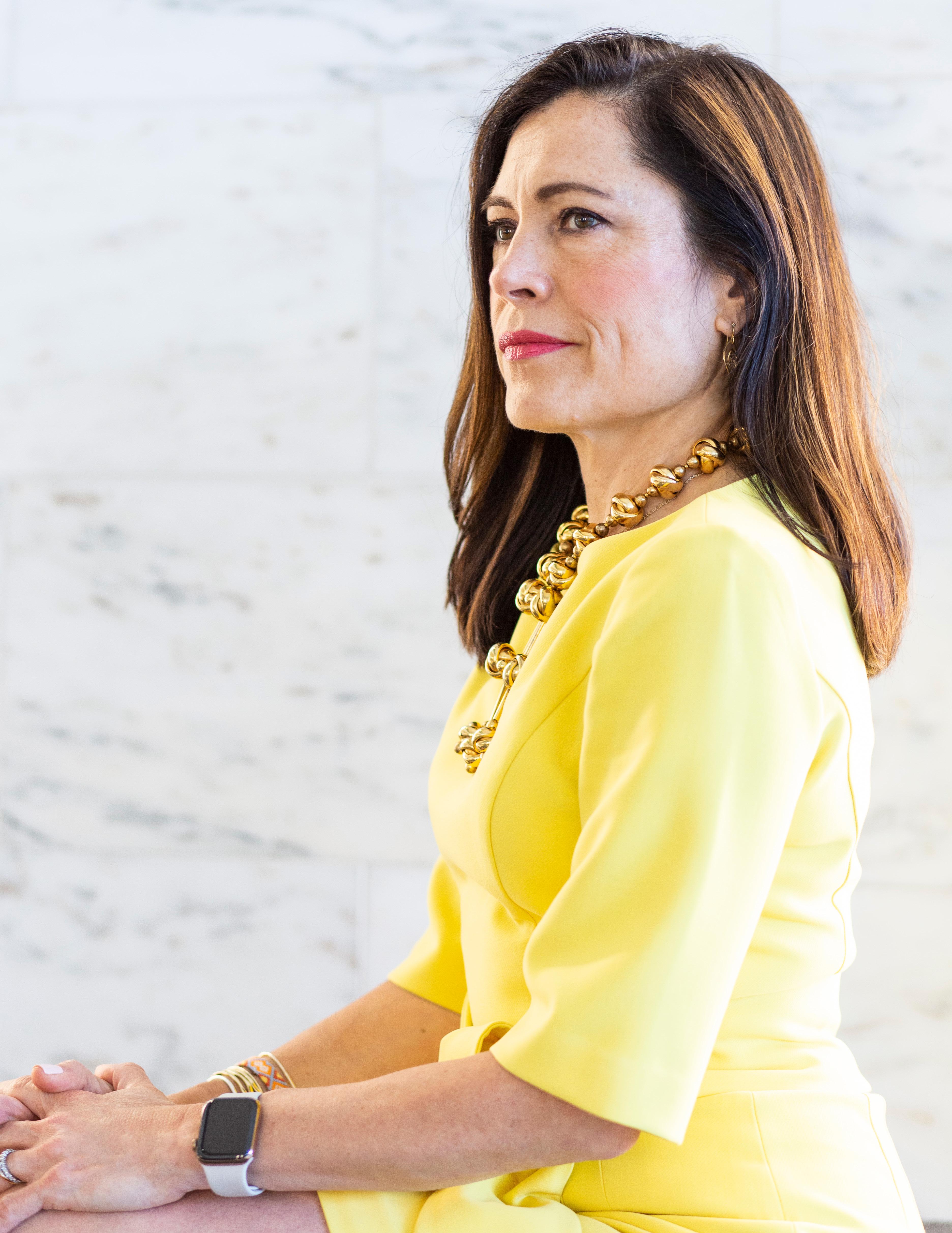
I started with a very simple belief that there had to be a better way to solve the challenges in the cocoa supply chain than what was available in the market at the time.”
THE NECESSITY OF NOW
McGrath says that developing Cocoa Life has provided one of the most rewarding journeys of her career. “I started with a very simple belief that there had to be a better way to solve the challenges in the cocoa supply chain than what was available in the market at the time,” she says. “I was able to bring a fresh perspective because I had never worked in sustainability before. I approached it like I would any innovation challenge, and that helped break through some of the previously held beliefs about what was possible.”
Cocoa Life’s approach is unique in terms of sustainability programs. “For us, making it right means holistically tackling the root causes of the complex challenges cocoa farmers and their communities face, including climate change, gender inequality, poverty, and child labor,” McGrath explains. “We are investing $400 million over ten years to empower two hundred thousand cocoa farmers and improve the lives of more than one million people in cocoa communities.” In helping create viable businesses and inclusive communities, those same communities will begin to drive their own development as well as protect human and land rights.
EMBODYING “THE SPARK”
McGrath says that it’s not often that a big company truly touches and improves individual human lives. As a beneficiary of others’ time and talent, the VP says she takes the chance to help others incredibly seriously. “At Mondelēz International, we focus on driving change at scale and focus on the areas where
we can make a real difference. For me, Cocoa Life is an important example of that commitment.”
She says she was raised to believe that “it only takes a spark to get a fire going” and that her current work is a chance to live the motto. “I love that in my current role I’m able to be a spark and lead change that makes our business better, while at the same time improving our planet and peoples’ lives.”
McGrath says Cocoa Life is built upon bold ambitions and a commitment to a holistic approach. “Our consumers care about the provenance of our ingredients and the farmers who grow them. Our business growth demands a sustainable supply of this essential ingredient.” That has meant developing a network of trusted partners with an emphasis on transparency. Mondelēz currently sources 43 percent of its cocoa through Cocoa Life, working hand in hand with more than 142,000 farmers in 1,400 communities across six regions. Mondelēz is investing $400 million over ten years with an effort to ultimately source 100 percent of its cocoa through Cocoa Life by 2025.
Progress has already been made. “Our 2018 annual report offers the first-ever, large-scale impact report in the cocoa industry, giving us the confidence that we are on the right path to growing a thriving cocoa sector by measuring Cocoa Life’s progress and impact,” McGrath says. “What this means is that consumers can be confident that the chocolate they love is made the right way.”
SUSTAINABILITY FOR ALL
One of the most important components of Cocoa Life to McGrath has been its focus on gender
The Raw Numbers of Sustainable Ingredients
142k
Number of farmers Cocoa Life engages to source its cocoa
Christine Montenegro McGrath helped build Mondelēz International’s signature sustainability program, Cocoa Life, from the ground up. In 2018, the company provided real numbers measuring impact as part of its annual progress report, evidencing progress of its efforts and offering a road map for future success.
108 The Greater Good
equality. “Women do a significant amount of work in cocoa farming—making a real difference in cocoa productivity—and they were mostly ignored, without access to training or financing,” McGrath says. “Cocoa Life has changed this and led the industry to give women access to these things.”
She explains that she has met female entrepreneurs all over the world, and their motivation, in turn, motivates her. She believes it’s imperative to continue the company’s focus on driving lasting change when it comes to gender equality.
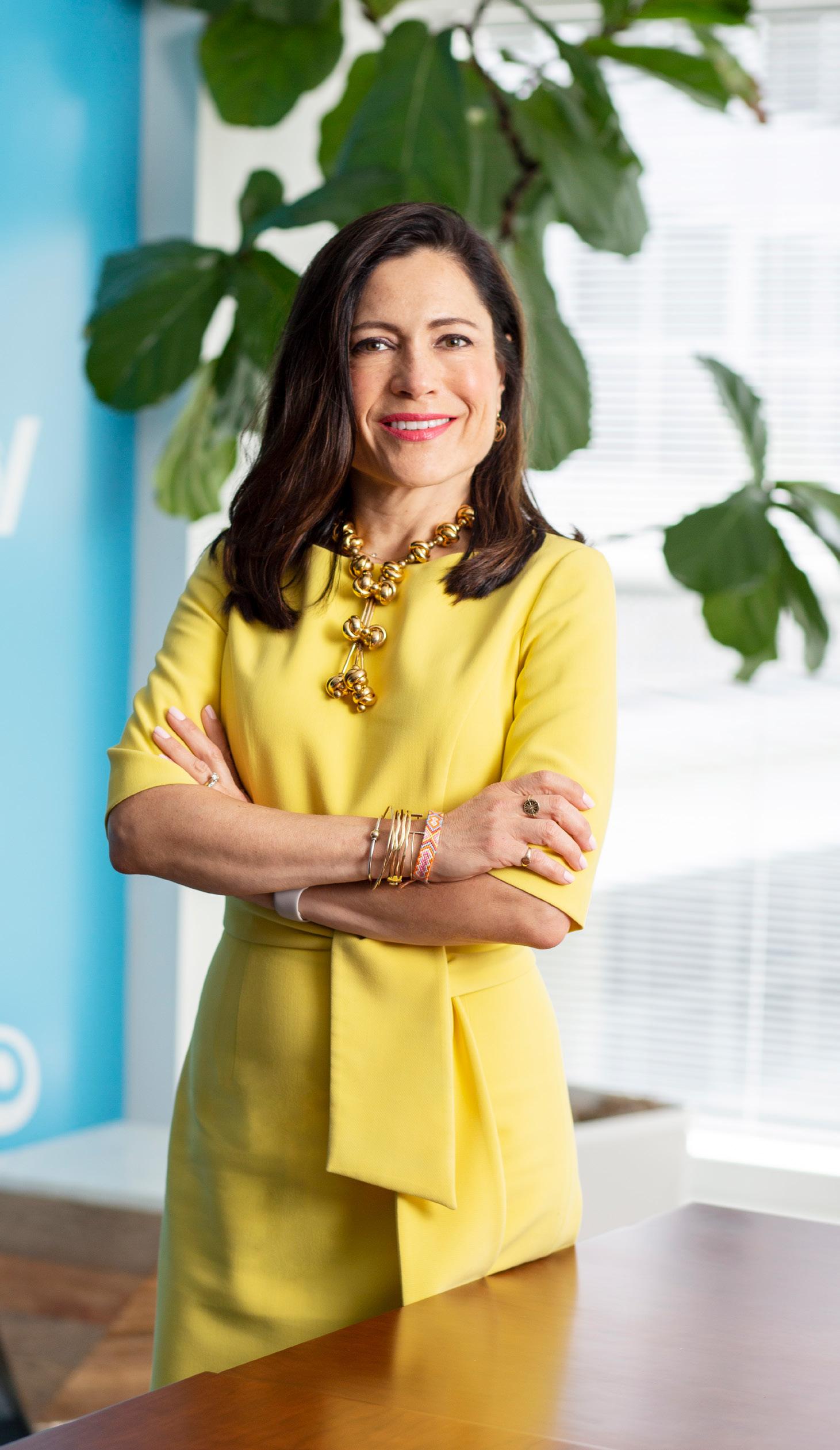
McGrath also recognizes that while great strides have been made, there remains an exceptional need for evolution. “The challenges facing cocoa farmers are too interwoven and complex to be solved by just one organization or by focusing on one challenge area alone,” McGrath says frankly. “Only sectorwide, long-term strategy with coordinated action by industry producers and government will create sustainable change.” The VP says that local government focus on rural economic development and commitment to agroforestry policies are essential to modernizing the cocoa sector.
As Mondelēz continues to align sustainability initiatives with its overall business strategy and brand purpose, McGrath—who managed and marketed brands on behalf of Kraft prior to her current role—says that staying simple in messaging and in goals was a key to success. “Cocoa Life embodies all that is hopeful and good in cocoa,” McGrath believes. “Although we concepted this idea eight years ago, it works well today and aligns to our purpose at Mondelēz International: to empower people to snack right.”
43% 100% $400m
Percentage of cocoa Mondelēz currently sources through the program
Percentage of cocoa Mondelēz will source from Cocoa Life by 2025
Financial investment Mondelēz is making to achieve its goal
 Luis Madrigal Engineering Manager, Client Platform Engineering & IoT Uber SERCIO CAMPOS
Luis Madrigal Engineering Manager, Client Platform Engineering & IoT Uber SERCIO CAMPOS
Toward Sharing Diversity a Ride
As an engineering manager at Uber, Luis Madrigal has kept the company thinking forward while leading the Los Ubers ERG
BY KEVIN WARWICK
“I HAD A DIRECTOR IN ENGINEERING at Uber who once told me, ‘People will work here fifteen to twenty years and never get to see the scale and magnitude of the impact of the projects that you’ve led,’” recalls Luis Madrigal, an engineering manager for client platform engineering and IoT at the rideshare giant. “I never thought of it from that perspective.” Honestly, he probably hasn’t had the time. Never mind the reality that Madrigal is tasked with engineering advancements and solutions within an ever-evolving tech universe—one where smartphones, and the services they render, have become crucial components of everyone’s day-to-day orbit. And never mind the reality that he got to Uber by committing early to mobile technology and an understanding that if you’re willing to raise your hand and take on projects, you can get out in front of any industry and pave your own path. No, it’s actually been the initiatives tangential to his engineering career that have kept him so busy.
111 Hispanic Executive
For Madrigal, it’s a good problem to have, but one he had to get accustomed to embracing. “In Hispanic culture, we tend to err on the side of humility,” Madrigal explains. “One thing I recognized from my third- or fifth-generation American friends is that they kind of go for it all the time— even if they’re winging it.”
Madrigal’s father—a Mexican immigrant who, along with his eleven brothers and sisters, got by on beans and tortillas six days a week—instilled in him a resolve that became fully realized as he grew up. “At a certain point it sunk into me, like, ‘Damn, my destiny came from nothing.’ My father’s mentorship and coaching pushed me to not shy away from what you don’t know because you can always learn on the go.”
Those lessons have manifested not only in what Madrigal has accomplished prior to his engineering career at Uber—like when at Arup, for instance, he set the global standard for iPhones and Androids to be corporate-owned—but also in his rapidly growing confidence within an nebulous tech industry.
“I’ve seen the pace of Uber be very difficult for some people to handle, and they burn out,” Madrigal admits. “I’ve also seen it be an amazing spot for people with the right attitude to challenge themselves. Eventually, I realized my own worth and that I’m valuable to Silicon Valley.”
Madrigal has worked to cascade that message of self-confidence through diversity and inclusion channels at Uber. Though he admits to initially
being a bit of a skeptic—unsure of whether D&I initiatives ultimately ended up marginalizing groups as opposed to empowering them—once he attended a few meetings of the Black at Uber group, which was founded by an engineer he had recruited for his team, he began to come around. He witnessed how its members rallied together to share ideas and philosophies, particularly while Uber was growing exponentially by the thousands.
“I got introduced to Los Ubers as a potential leader,” Madrigal recalls. “After the first meeting, they said they’d love for me to be a cochair of the group.” Shortly thereafter, he began gathering together cochairs of the different representative ERGs to meet with the company’s then-CEO Travis Kalanick. “We would have very honest conversations about things we liked about the culture, things we didn’t like, and how we could drive change.” The meetings have persisted quarterly and have been continued under current CEO Dara Khosrowshahi.
As Madrigal matured as a leader within Los Ubers, he began getting heavily involved in events with organizations like the Society of Hispanic Professional Engineers, while simultaneously eyeing opportunities to recruit potential engineers from universities in Mexico and Puerto Rico. Those initiatives often resulted in Madrigal and other Uber engineers being able to bring back students as interns. “They would then get put in our
112 The Greater Good
The more I saw the tangible effect of leading the ERG, the more I was like, ‘What else can I do?’”
Dedication makes the difference.
With our people, our partners and our portfolio, we remain – more than ever – committed to preserving our planet, cultivating inclusion, and providing the technologies that transform communities.

Mapping a Route
“One member of Los Ubers that I helped come out of his shell was this particular engineer, Benito Sanchez. Benito came from a small town close to Oaxaca in Mexico, where his first language was the indigenous tongue Triqui, and he later learned his second, Spanish. Eventually, at about the age of ten, he was brought up to California by his parents, who worked on the farms. He was in and out of high school, while helping his parents pick lettuce.
“He ended up going to California State University in Monterey, which was one of the closest universities to him. It turns out he had a natural appetite for learning, development, and coding in computer science. So eventually, one of our directors recruited him as an intern and he did so well that when he graduated, Uber offered him a fulltime job. And he still works here. Now, he shares his story publicly.” SERCIO CAMPOS
Milestones
2005 2012
“I worked at TSA as a screener and left to work at Canon as a service engineer. I got paid two dollars less per hour at Canon. I took a lowerpaying job to be closer to technology.”
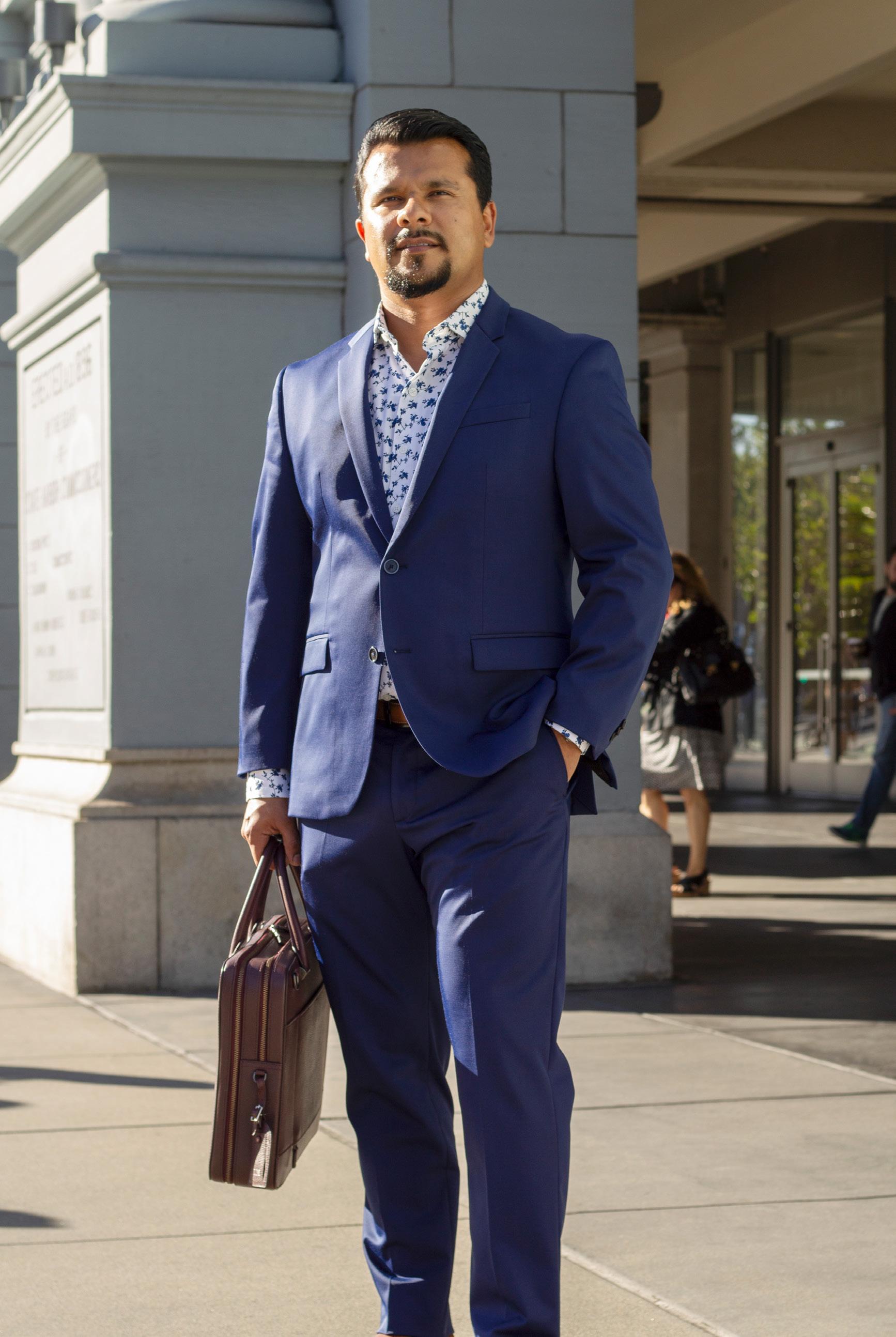
2006
“My daughter was born and that was a really big awakening for me.”
“I became PTA president at my daughter’s school.”
recruiting pipeline,” he says. “The more I saw the tangible effect of leading the ERG, the more I was like, ‘What else can I do?’”
Being a single father—one who actively sought the role of PTA president at his daughter’s school— Madrigal knows that leading by example will always be the best way. “It’s really not whether something good or bad happens, it’s how you react to it. My dad did a good job of doing that even when I hit low points along the course of my career. And I’m trying very actively to teach that to my daughter as well.”
He does so by not resting on his laurels. Even when Madrigal expanded Los Ubers globally, empowering and encouraging other members to move into leadership roles while the ERG expanded to chapters in New York, Phoenix, Chicago, Toronto, and Los Angeles, he looked for other ways to leverage his own resources and create innovative methods within the company to promote diversity. “We want to enhance the culture so people feel a sense of belonging at Uber,” he notes. “It doesn’t matter if you were raised in an indigenous tribe or graduated from Stanford or Harvard.”
“Lately I’ve been spending time helping build strategies with various product teams and making sure they are seeing diverse perspectives,” Madrigal continues. “We’re creating a framework of guidance so teams know how to go about exploring ideas in diversity and inclusion in relation to design and engineering. Because if you ask two people to draw a bicycle, they’re going to draw completely different things on a white piece of paper.”
What it all amounts to is that Madrigal’s been busy—particularly as Uber and ridesharing continue to grow at an unprecedented pace. Still, his fervor for both engineering and promoting diversity in engineering hasn’t waned. Not one iota.
“I’ve seen the culture shift at Uber. We’ve had a lot of changes in practices and personnel,” Madrigal says. “I always wonder, ‘Have I finished making the maximum impact that I can here? Would I want my daughter to work here one day?’ Now we’re at a point where I’m like, ‘Heck yeah.’ Being a tenured employee and being a part of the ERG’s growth has been empowering, and it’s why, at my core, I love being a manager.”
“I started at Uber in January. There were maybe seventyfive people in engineering. We were about five hundred people globally, and today I think the public figure that Uber shares is twenty-six thousand employees.”
“That’s when I became cochair of the Los Ubers ERG.”
“Just recently, I organized and funded my dad’s retirement party. I flew out some of his brothers and sisters, those who were willing, to a beach over by Puerto Vallarta and had a family reunion. We got to celebrate my dad. He worked from the age of six and retired at sixtysix—sixty long years of hard labor.”
2014
We want to enhance the culture so people feel a sense of belonging at Uber. It doesn’t matter if you were raised in an indigenous tribe or graduated from Stanford or Harvard.”
2019 2015
115 Hispanic Executive
theFuture Fueling MiddleFuelingVoters,the Class, Fueling
BY RHIANNON ROOT
MOST OF US DON’T REALIZE how much energy it takes to power our daily lives. Every time a coffee maker is set to brew, every time a laptop is plugged in, and every time the starter cord of a lawnmower is pulled, energy is expended. The energy we use to peruse our phones for news, take our medications, and drive our cars to work enables us to live our modern lives. Most people take for granted just how much of our days are dependent on energy.
Margita Thompson, vice president of public affairs for California Resources Corporation (CRC), understands better than most that while energy isn’t the flashiest nuts-and-bolts issue on any statewide docket, it’s something that impacts everyone’s livelihood. That’s why one of her main objectives at CRC is to help both policymakers and the public become energy literate when establishing the greater good of any state’s mission.
“Energy is the science of physics which is not viewed as easily accessible as, say, social issues,”
explains Thompson, who joined CRC in 2014. Currently, she’s not only working to make energy policy more accessible in the Golden State, but she’s also bolstering partnerships with organizations like the State Building & Construction Trades Council of California, which is composed of 300 labor unions and over 450,000 members who have a stake in the energy debate as workers and consumers.
As a steward of California’s land and ample oil and natural gas resources, Thompson works to unlock people’s attention so they grasp the benefit of optimizing local energy production under the world’s strongest labor, safety, human rights, and environmental standards. Backed by CRC’s workforce, Thompson wants to ensure that the state’s energy infrastructure is maintained by the highly qualified women and men who make up California’s working families. “And we’re extremely motivated to continue providing affordable energy and economic security that all Californians need to thrive,” she says.
How Margita Thompson empowers working families through California Resources Corporation
116 The Greater Good
Margita Thompson VP of Public Affairs California Resources Corporation
“California is an energy island, importing over 70 percent of its oil, 90 percent of its natural gas, and 30 percent of its electricity,” Thompson highlights. Not only is the VP well aware that the state houses the largest population in the country, she also knows that it has the fifth largest economy on the planet and needs energy to foster sustainable growth. Even with energy playing such an important role, there is misinformation and misconceptions about the oil and natural gas industry in California that are not based on science and facts. That’s why Thompson and CRC understand that creating opportunities to have balanced conversations about energy is crucial

in sustaining trust from the state and communities that it serves.
An important initiative Thompson and her team have created to promote education and transparency is Powering California. Through its easy-to-understand website, Powering California features videos, infographics, and articles that discuss energy issues and practices as a way to boost people’s energy literacy, while also cascading the message that energy is an important force that when harnessed and directed conscientiously can be a powerful agent of change. Powering California is aimed at more of a general audience, but Thompson remains acutely aware that
DARIO GARCIA
Defining Moments
Careers take all sorts of interesting twists that can’t be neatly listed on a resume. Here are six events from Margita Thompson’s career that stand out.
WON AN EMMY
Thompson was awarded for her public commentary on election night 2010.
MADE IT ONTO
DAVID LETTERMAN’S TOP TEN LIST
She ended up on the list during her time serving as Governor Arnold Schwarzenegger’s press secretary.
GOT TO RIDE IN THE
KING OF JORDAN’S HELICOPTER
The trip occurred while working for Schwarzenegger during a trip to Israel.
MET THE DALAI LAMA
Thompson says the spiritual leader was “very joyful.”
BOOKED ROBERT MUELLER ON CNN
When he was FBI Director, and before he was a special counsel investigating Russian meddling in the 2016 presidential election, Thompson booked him for an episode of Larry King Live while working as a producer. “He was very reserved and straitlaced,” she says of Mueller.
EVACUATED OUT OF THE WHITE HOUSE ON 9/11
At the time, Thompson was serving as second lady Lynne Cheney’s press secretary. Amid fear of a plane headed toward the White House, the Secret Service ordered everyone to leave. Thompson still stashes twenty dollars in her office and has at least half a tank of gas in her car at all times.
CRC employees, policy leaders, and the greater industry can and will benefit from the organization’s continued diligence in educating its audiences to the benefits of a balanced energy strategy and supply.
In describing her leadership style as straightforward, Thompson acknowledges that she tends to think of the bigger picture while making sure CRC programs like Powering California are humming along. “CRC lets me be me,” she says. And who is that? “A Hispanic feminist Republican Californian who works in the oil and gas industry,” she laughs. Having diversity of thought in a working environment is vital because it will enable anyone to see problems in a different light, while identifying commonalities that make tough conversations easier. Thompson believes that she and the members of her team are different, but that their styles and communications are complementary and help build strong communities inside and outside CRC.
According to the VP, there have been major shifts in how companies communicate with their audiences, particularly as millennials ascend to top positions. Expectations have evolved as employees demand that companies follow through
on their stated values. Similarly, consumers want to purchase products and services from enterprises that take proactive roles in solving societal issues, while investors increasingly prioritize issues like workforce inclusion, diversity, and sustainability. “For CRC, that means championing upward economic mobility that should be everyone’s right,” Thompson says.
While California is a global economic powerhouse, almost four in ten residents live in or near poverty. Energy ultimately affects everyone, and regressive policies that drive up the costs of energy for both consumers and producers disproportionately affect those who work paycheck to paycheck, as well as their families and lifestyles. In addition to providing affordable energy to power our lives, the energy industry in California offers high-quality and stable jobs with great pay. Thompson points out that residents who don’t have a college or even high school degree can still have successful careers in which they earn over $80,000, on average. “Our industry provides a path to the middle class and helps working families achieve the American Dream.”
For Thompson and CRC, the mission is to promote security, affordability, and upward financial mobility to all Cali-
Our industry provides a path to the middle class and helps working families achieve the American Dream.”
118 The Greater Good
fornia communities through local energy production, as well as by being an active and supportive community partner. Through her company’s community outreach initiatives, Thompson has led several major philanthropy projects that have positively impacted thousands of families. In partnership with the Herman Ostrow School of Dentistry of USC and the California Teachers Association, for example, CRC launched a series of free mobile dental clinic programs throughout the state. Each of the weeklong clinics provides much needed dental services for low-income K-12 students—many of whom have never seen a dentist.
A particularly gratifying experience from one of the dental clinics in Taft, California, sticks out in Thompson’s mind. A high school-aged boy with a missing front tooth was being treated for general dental work through the clinic and the dentists working on him decided to go above and beyond and replace his front tooth. When the boy came out of the dental van with a huge, toothy smile on his face, his mother cried happily exclaiming that she hadn’t seen a smile on her son’s face in years. That’s the sort of positive energy Thompson loves to spark.
EXPERTISE SPOTLIGHT: CESAR DIAZ
Cesar Diaz directs legislative strategy for the California State Building and Construction Trades Council, a powerhouse political organization in California that represents nearly 450,000 hard-working construction workers, including 62,000 trade apprentices. Cesar, who was born in Guadalajara and immigrated with his family to California at age five, has been instrumental in the passage of some of the most complex legislation that made its way to the governor’s desk of the fifth largest economy in the world.
Cesar’s focus is on enacting policy that improves working conditions for the members of the building trades and expanding training opportunities for disadvantaged youth around the state, as well as ensuring that all legislation that makes its way to becoming law in California is beneficial to all working Californians. He is widely recognized at the California state capitol as a trusted ally who is adept at working with legislators from both parties to bring about pragmatic solutions to polarizing political issues that affect California’s working families.
The California legislature considered nearly two thousand bills in 2019. Cesar was responsible for understanding each proposed law’s advantages and disadvantages for working people. Cesar’s political and legislative strategy was crucially important in the passage of California’s landmark environmental and affordable housing legislation, as well as legislation entitling the construction of the state-of-the-art arenas for the Los Angeles Rams and Sacramento Kings.
Cesar, who initially went to work as a meat cutter after attending Mission High School in San Francisco, worked hard to broaden his skills and hone his leadership abilities to now shape and influence public policy in California. His path was not a simple one, but was a path he created for himself through hard work and perseverance. Beyond his work for the building trades, Cesar, a proud father of two, was appointed by then Governor Brown to the State Allocation Board, while also serving on the board of the California Conservation Corp Foundation and the executive board of the California Democratic Party, where he cochairs the party’s resolution committee.
119 Hispanic Executive
TheHeart of
BY SARA DEETER
AS VICE PRESIDENT of corporate responsibility at Ascena Retail Group, Jeannette Ferran Astorga is helping women all around the world realize their potential. Ascena is a collective that encompasses renowned fashion brands, including Ann Taylor, Loft, Lou & Grey, Lane Bryant, Catherines, and Justice. Ferran Astorga oversees an array of community outreach, leadership, sustainability, and diversity and inclusion initiatives. Under her leadership, those social impact initiatives have flourished—the company has delivered important health and financial education to more than one hundred thousand women across its global supply chain, joined the Sustainable Apparel Coalition, and become a signatory to the UN Women’s Empowerment Principles. The company has also worked with Vital Voices to train more than three hundred high school students through the HERLead fellowship program.
“That is what sets Ascena apart—its strongly rooted culture of giving and doing the right thing,” Ferran Astorga notes. “We put that effort, that spirit of giving to and helping other women and girls at the heart of everything we do, every day.”
EARLY DAYS OF INSPIRATION
Ferran Astorga has long been inspired by a culture of giving. After emigrating from Cuba in the 1960s, her parents had to start over from scratch. Ferran Astorga’s father ultimately finished his education and became a CEO of a publicly traded company, she says, but she never forgot how hard he and her mother had to work—or how deeply committed they were to giving back, despite their own hardships. Ferran Astorga also realized early on how success was not solely achieved in the boardroom or C-suite, as she watched her mom take on leadership roles in Ferran Astorga’s all-girls school and within the local community. Her mother volunteered in various programs to enable young girls through entrepreneurship, setting an example that girls need to feel supported and empowered to define their own paths to success and self-confidence.
VP Jeannette Ferran Astorga on what inspires and enables Ascena Retail Group’s global impact on women’s health, leadership, education, and confidence
Everything 120 The Greater Good
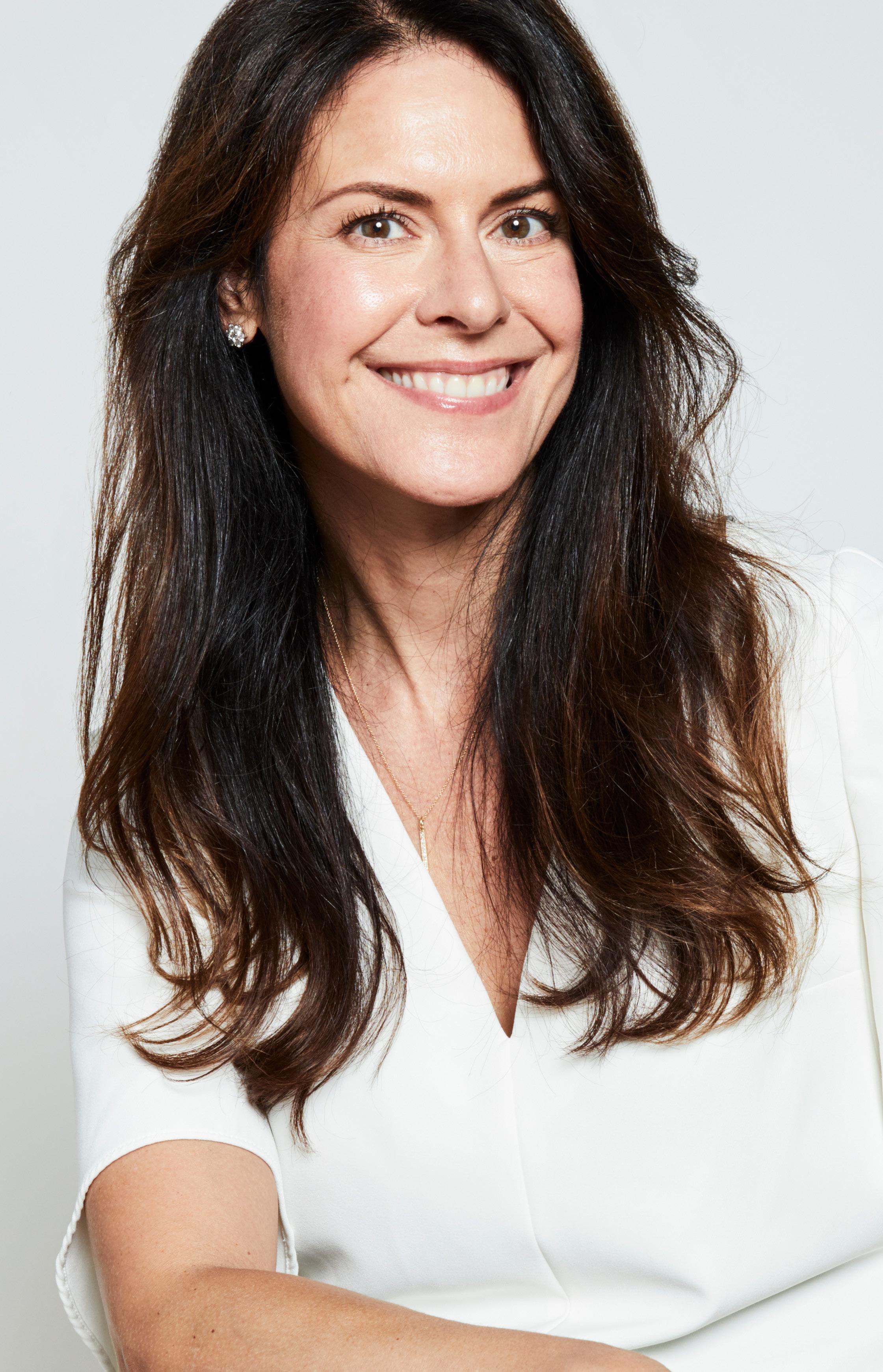 Jeannette Ferran Astorga
VP of Corporate Responsibility
Jeannette Ferran Astorga
VP of Corporate Responsibility
LOFT PHOTO STUDIO
Ascena Retail Group Inc.
Communal Commitment
Jeannette Ferran Astorga is proud of so much that she and her team have accomplished at Ascena, but what stands out to her most is the sheer commitment to good demonstrated by both the company and its customers.
A perfect example of that commitment, Ferran Astorga says, is the company’s dedication to empowering women across the global supply chain through initiatives like its 100,000 Women Commitment. “It’s because of the women in our supply chain that we are able to make beautiful products,” Ferran Astorga explains. “I’ve seen the challenges they face in balancing their work with the responsibilities of the home in very rural and remote farming communities, and also witnessed women neglecting their own health in order to care for their families. That just makes me so proud of the life-changing health education that we have helped provide.”
That commitment, Ferran Astorga says, has only been enhanced by its formalization. Although diversity and inclusion have always been part of Ascena’s core values, Ferran Astorga is delighted with the results they have seen since making them an official part of the company’s mission. “It has really enabled us to celebrate our community and their unique contributions to our culture,” Ferran Astorga says.
But the company is not alone in its commitment. Ferran Astorga is continually amazed and inspired by Ascena’s customers and associates and their passion for supporting the causes that the company serves. “I am so incredibly grateful to be part of a company where I can see our customers and associates’ generosity, their philanthropy, and charitable commitment to giving back,” Ferran Astorga says. “During my tenure here, we’ve reached record-breaking levels of fund-raising and nonprofit donations. And we’ve done that through our community—our customers and store teams and corporate office team.”
“My parents’ work ethic and, even more importantly, their values of gratitude and giving back have shaped who I am as a professional, an executive, and a leader,” Ferran Astorga says. “They sparked in me a curiosity about how I can drive those values through my professional endeavors, and that’s probably why I sought from the very beginning to work in an organization that had a broader purpose.”
According to Ferran Astorga, that spark was rekindled about sixteen years ago during one of her first experiences at an Ascena brand. While building and establishing a human rights compliance program, she gained a whole new appreciation for the source-to-store production process. “I quickly realized how specialized and intricate the work is. For example, to construct a sweater entails a tremendous amount of detail going into the garment,” the VP recalls. “So that triggered a lot of curiosity for me about the dependency of fashion companies on manufacturing partners and the people who make our beautiful garments and accessories.”
BUILDING NETWORKS TO DRIVE SUCCESS
Ferran Astorga’s curiosity and her passion to become informed about the corporate supply chain have driv-
122 The Greater Good
That is what sets Ascena apart, its strongly rooted culture of giving and doing the right thing.”
en her to become an expert in corporate responsibility. “It’s been a phenomenal journey for me,” she says. “An exploration of learning but also of leadership. We started with just one person on our team and now we have teams based all over the world.”
In the field of corporate responsibility, Ferran Astorga notes, a team is essential to your success. Meaningful change only happens when you build coalitions and networks, she believes, partly because those groups allow you to get input from numerous people and bring diverse perspectives to your project.
But Ferran Astorga points out that this means building networks among leaders too. “I feel very fortunate to work for a company where leaders support each other,” she offers. “I am surrounded by impressive women leaders and executives who have spent their careers supporting women here at Ascena. I get to engage with our amazing board of directors, 60 percent of whom are women and all of whom are completely informed about and involved in our work.”
Galvanized by the support she saw among the women working at Ascena, Ferran Astorga decided to cosponsor a new initiative, called the Working Parent Associate Resource Group. The group builds networks among associates with parenting responsibilities at Ascena’s New York City offices, Ferran Astorga explains, and has established a mentoring program that will match associates coming back from parental leave with a buddy who can help them navigate through the new stage in their professional journey.
“These women have all helped me be successful,” Ferran Astorga says. “I felt I had a responsibility to pay it forward and provide them with a resource to help them through this major transition.”
NOT DONE YET
Ferran Astorga has already achieved so much as VP of corporate responsibility at Ascena, but she doesn’t think she’s anywhere near being done. “That’s my nature,” Ferran Astorga says, laughing. “I am very goal-oriented, but to me that means setting a goal and then surpassing it.”
Ferran Astorga and her team have created a long-term plan for further driving the company’s impact on women and girls, she says. This strategy fully represents Ascena and Ferran Astorga’s vision of an enterprise-wide alliance—it extends to customers, suppliers, and stakeholders alike—and builds on Ascena’s long legacy of championing the confidence, leadership, and well-being of women, girls, and communities.
This strategy is Her, at the Heart of Us. It is rooted in a commitment to helping women and girls thrive by advancing leadership training and opportunities, strengthening communities through a focus on sustainability and the supply chain, and promoting health and well-being. Ascena and its stakeholders aim to double their impact by raising $250 million by 2025 to help women and girls everywhere be their best selves. Her, at the Heart of Us is “action and effort,” Ferran Astorga says. “We’re driving the impact we believe in.”
123 Hispanic Executive
Again Answering theDoor,and Again
Jaime Mata’s willingness to pivot at AT&T is an indicator of his developing leadership
BY BILLY YOST
IN DISCUSSING HIS RISE at AT&T, Jaime Mata talks a lot about the knock of opportunity. He does it so often, in fact, that it’s probably become high time for him switch out both the door and its hinges. Mata’s willingness to accept new opportunities, ready or not, underscores his claim that at AT&T, motivated leaders can own a half dozen different careers. Before accepting his current position, Mata shifted from litigation to marketing to labor and employment to corporate communications to consumer advertising—before circling right back to litigation. Some of the roles fit him perfectly, some less so. The through line for Mata, however, has been his enthusiasm to keep answering that door and taking on the leadership role being offered by whoever is knocking.
A legal career at one of the world’s most wellknown communications conglomerates may have seemed far-fetched for the blue-collar-born Mata, who was the first of his brothers to attend college. “None of my older brothers made that decision, but for me, I felt like it was almost an assumed expectation of my parents,” Mata says. His father, an operator at an Anheuser-Busch plant, and his mother, an office aide at a local elementary school in Houston, took out loans to help their son attend college. “They always put family first and wanted me to have every opportunity possible.”
Attending law school wasn’t Mata’s directive straight out of undergrad. “I had actually been thinking that I wanted to join the FBI,” he explains. “But it was very hard to join the agency straight out
124 The Greater Good
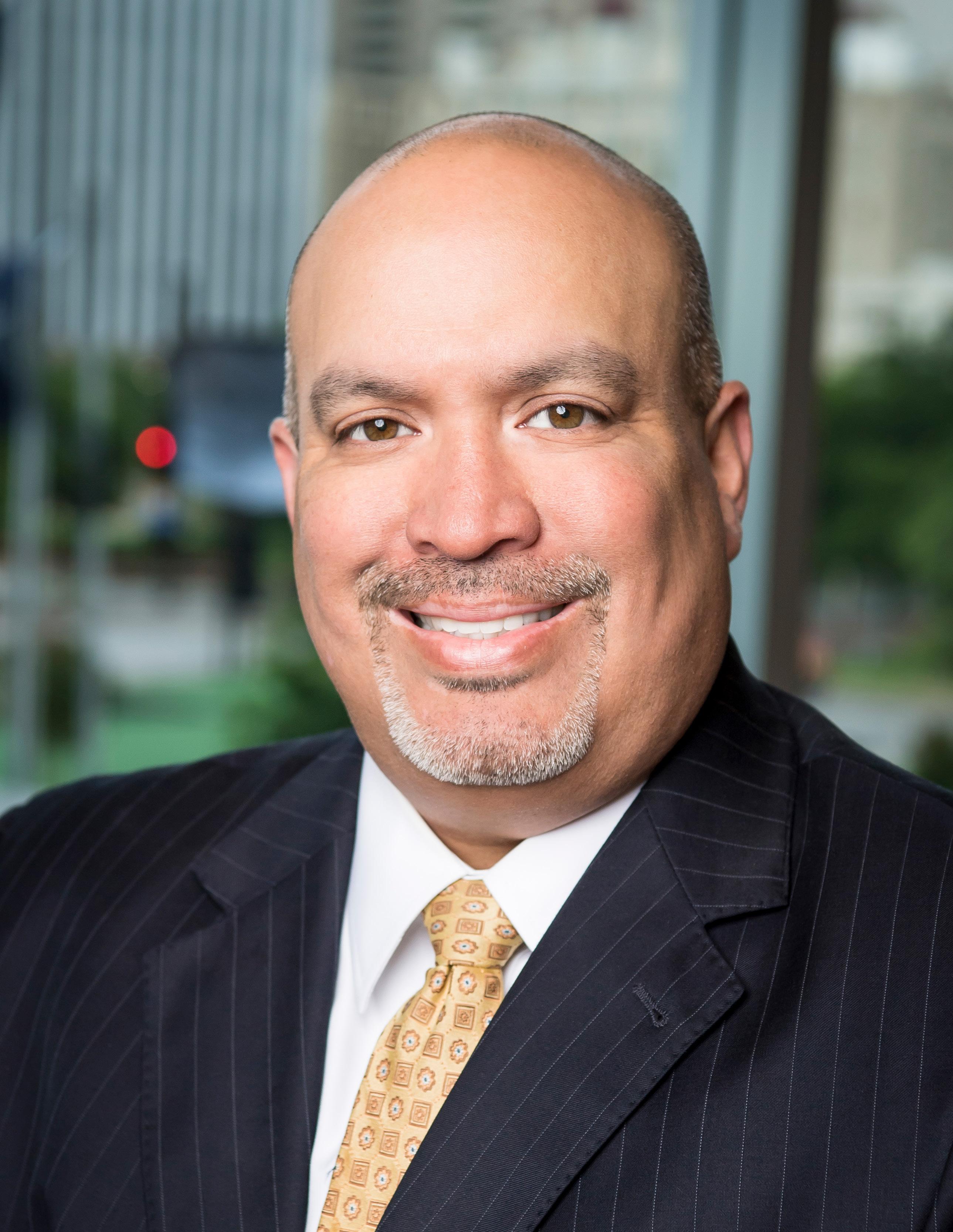 Jaime Mata
Jaime Mata
KELLY ALEXANDER PHOTOGRAPHY
Assistant VP and Senior Legal Counsel AT&T
Taking the Call
Jaime Mata has demonstrated a capacity to grow into new professional roles while offering his own time to help others.
In addition to developing a wrestling program at his children’s school—where he coaches on a volunteer basis virtually every Saturday during the season—the senior legal counsel has been a part of each of the following organizations:
The Wish Connection is a nonprofit organization Mata worked with that grants wishes to children with life-threatening or chronically debilitating conditions.
He volunteered with the University of Texas at Arlington ’s pre-law mentorship program, which mentors aspiring law students.
Street Law is one of AT&T’s D&I pipeline initiatives where he volunteers to help increase knowledge and interest in the legal profession among local high school students.
With the AT&T Employee Giving Campaign , he served as the cochair of the legal department’s campaign for two years.
As a part of the AT&T Externship Program , he was cochair of the program with SMU’s law school, mentoring externs who served in the AT&T legal department.
Mata is a volunteer mentor with HACEMOS , AT&T’s Hispanic/Latino employee resource group.
of college, so I figured I could go to law school—I wasn’t terribly strategic about it,” he explains, laughing.
That decision likely marked the last time Mata would make a passive judgment. Upon graduating law school, the young lawyer dug deep into litigation, from depositions to trying cases. After three years, Mata elected to go in-house at AT&T, still with an active litigation practice. “Five years in, opportunity knocked,” Mata says. “I was offered the chance to move to company headquarters in San Antonio to work on the marketing side of the business.” It was a significant opportunity, but there was just one problem: “I had no idea what a marketing lawyer did.”
In taking the job, Mata began the first of many positions in which he didn’t possess significant expertise when he accepted the role. Still, he explains that part of AT&T’s leadership development means asking talent to grow and stretch in ways that demonstrate adaptability and a personal commitment to professional growth. “Sometimes it’s been scary,” Mata admits. “I wasn’t an advertising lawyer until the company told me I was—but you collaborate with your team and colleagues to learn that area of the law and grow your knowledge base.” That capacity for
growth is why Mata’s career trajectory hasn’t dipped at any point during the last dozen years.
“If it’s a role that puts me in the best position for leadership, that’s what I’ve wanted to do,” Mata says. “If it gives me a better opportunity to progress in my career, I was willing to take on those risks.” The gambles have varied in both size and scope over the years, and their variation speaks to Mata’s considerable aptitude when it comes to professional adaptation. He was part of a global marketing team tasked with unifying the company’s advertising vendor, a mammoth undertaking considering AT&T is one of the largest advertisers in the US.
In his current role, Mata is tasked with helping internal clients stay compliant with wage and hour laws, upholding AT&T’s reputation for paying its employees fairly and in accordance with the law. “Collaborating closely with our own HR and business clients is the part of the job I enjoy most, because I’m directly partnering with the business to make sure the company continues to do the right thing by its employees,” Mata says.
Those who have partnered with Mata and AT&T feel the same way about him. “Jaime has a special skill of taking complex
126
I wasn’t an advertising lawyer until the company told me I was—but you work with your teams and partners to grow.”
The Greater Good
matters and distilling them to their strategic essence,” explains George Stohner, senior counsel at Faegre Baker Daniels. “In my experience, he approaches these challenging litigation matters with a team spirit and is great to partner with.”

Ultimately, the right thing is always foremost in the senior counsel’s mind, he offers, because of the role models he grew up around. The care and sacrifice which Mata’s parents showed for their family continues to resonate with him as he tackles new challenges. Having relocated his own family multiple times for better opportunities, Mata keeps his priorities front and center. “Every move that we’ve made and every job assignment I’ve accepted was solely with the mind of putting me in the best position to best support my family.”
Mata hopes that he’s been able to show his family the same care and compassion that he was offered by his parents growing up. One thing is for certain: he remains motivated to keep answering that door. “My parents were both first-generation Americans, and I just want to make them proud,” Mata says. “I’m proud to carry my father’s name, and I remind my boys regularly that it’s his last name that’s on their report cards and the back of their jerseys.”
The space between the Box and the bottom of the logo is equal to the height of the box
FAEGRE BAKER DANIELS: CLIENTS FIRST
Stroke is the same thickness
The URL is all blue. Do not make “BD” green as it affects legibility on light backgrounds.
Consistent coast-to-coast solutions to complex matters via collaboration, communication and courage.
Box, URL, and logo are centered Do not center the box/arrow together such as the example to the right.
Edge of arrow is aligned to the outside counter of the “R”
His Roots
to Inspire Remembering Change
Ricardo Madan channels the spirit of his Cuban heritage into the diversity initiatives at TEKsystems
BY JULIA THIEL
PORTRAITS BY PETER TAYLOR
RICARDO MADAN’S FAMILY FLED Cuba for Miami in the late 1950s. His grandparents, uncles, and father (who was eleven years old at the time) escaped the regime of Fulgencio Batista in 1958, with the rest of the family following once Fidel Castro took power in 1959. According to Madan, it’s “a story of hardship, sacrifice, austerity—not dissimilar to the story of a lot of people who fled after the Castro regime took over.” One thing that makes his family’s story different, though, is that Madan’s grandfather was a revolutionary who was involved in overthrowing the governments of not only Batista but also the previous dictator, Gerardo Machado.
“When he got to the US, his pursuit of justice didn’t cease,” Madan says. He was a founder of the Miami Medical Team, which provided medical assistance for wounded Nicaraguan Contra rebels in the
128 The Greater Good
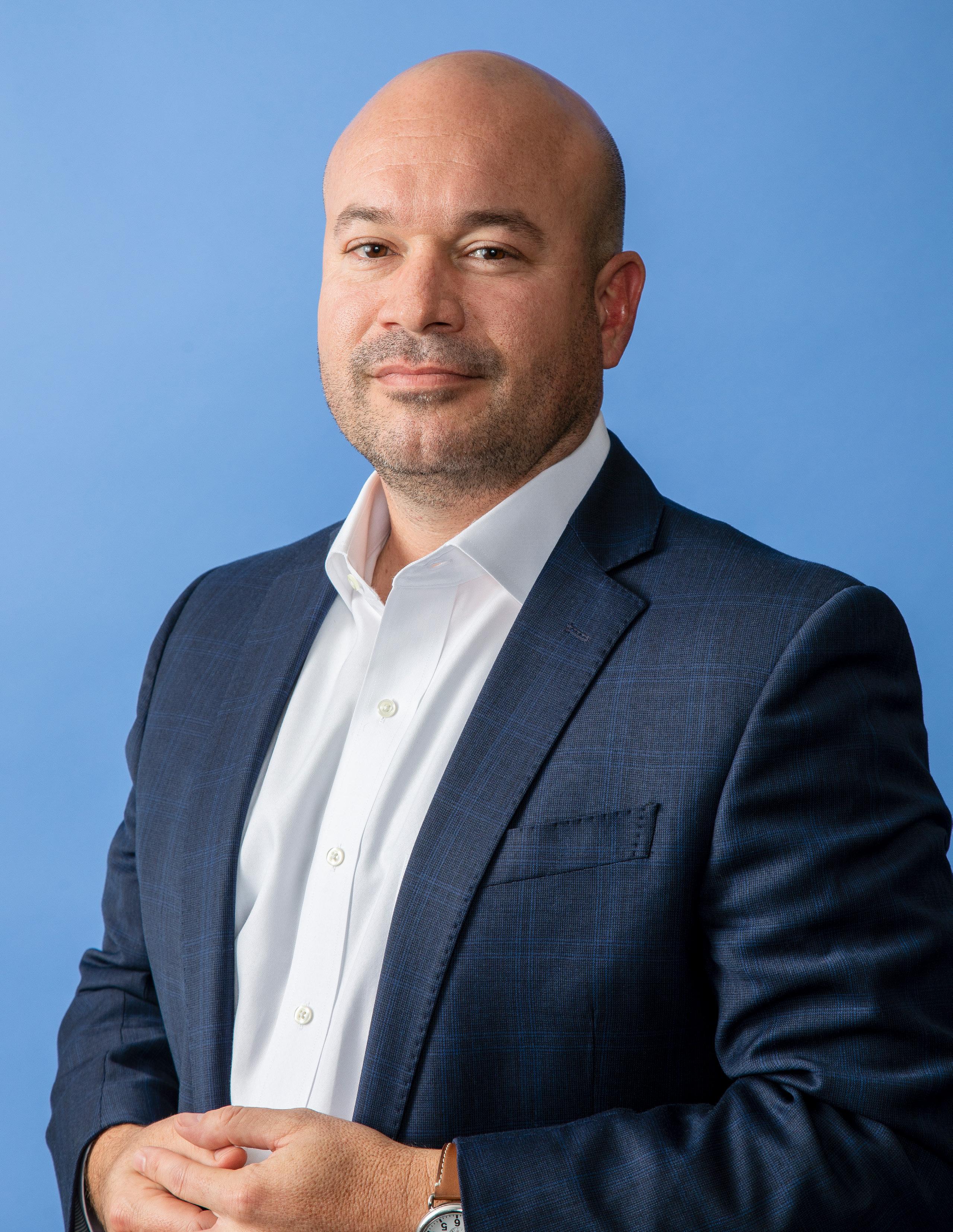 Ricardo Madan VP of Technology Products & Services TEKsystems
Ricardo Madan VP of Technology Products & Services TEKsystems
1980s, and later had a street in Miami named after him to honor his humanitarian efforts. (Madan shares his name with his father, grandfather, and great-grandfather.) Meanwhile, Madan’s grandmother became one of the first female bank tellers in Miami, while his father began working at a railway depot at age eleven, loading produce onto and off trains (child labor laws were less strict then, Madan notes).
Madan has spent his entire career at the technology and talent services company TEKsystems— rising through the ranks from IT recruiter to vice president of technology products and services—and he credits his work ethic to his upbringing. He grew up in Miami and São Paolo, Brazil, where his father was sent for his job as an industrial engineer. As a result, he became fluent in Portuguese as well as Spanish and English. In high school, he earned both athletic and academic scholarships to Barry University in Miami Shores—where, he admits, he
Madan, who’s been with TEKsystems for over two decades, calls the underrepresentation of women and minorities in the tech industry a “head scratcher.”

lost focus a little. “I was more interested in socializing in Miami Beach during my first couple years in college,” he says. “But thank God that my Cuban immigrant work ethic was ingrained in me from the time I was a kid. Even though I would go hang out in South Beach, I still knew I had to work my butt off.”
Madan worked three jobs in college, majored in marketing, and did well enough academically to get offered a job as a junior stockbroker at a prominent investment banking firm before he graduated. He’d already accepted the position when a friend asked him to come to a job fair for moral support; the extroverted Madan saw it as a great chance to talk to people and show off the new suit he’d just bought for job interviews. “I was very proud of my new suit,” he says.
He ended up talking to some recruiters for Allegis Group, the parent company for TEKsystems, and was impressed by their passion for the company. The next week he visited their Fort Lauderdale office, where he discovered he liked the energy and what he described as an inclusive culture. “They were totally cool that I was a Cuban kid from Miami,” Madan says. “Being welcomed allowed me to show up as my authentic self, speaking Spanish. At [the investment bank], I could tell that I wasn’t going to be able to be the true me. You had to dress a certain way, act a certain way.”
After being hired as an IT recruiter, Madan has held roles in consulting, sales, marketing, and leadership throughout the course of his twenty-
130
The Greater Good
one-plus-year career. He’s also helped build many of the company’s technology practices, which help TEKsystems’ customers successfully navigate areas such as cloud, app modernization, analytics, and information security. The initiatives he talks about most passionately, though, are the ones related to corporate social responsibility. Women and minorities tend to be underrepresented in the tech industry, which Madan calls a “head scratcher,” since there are more IT jobs than there are people to fill them. “You look out across our underserved communities and there’s a lot of talented people,” he says. To address the issue, TEKsystems has been partnering with companies and nonprofits to fund coding camps and other skills-based training initiatives for women and minorities, with the aim of hiring as many graduates as possible.
“There’s a clear benefit to us—we’re able to fill more in-demand tech jobs faster with qualified
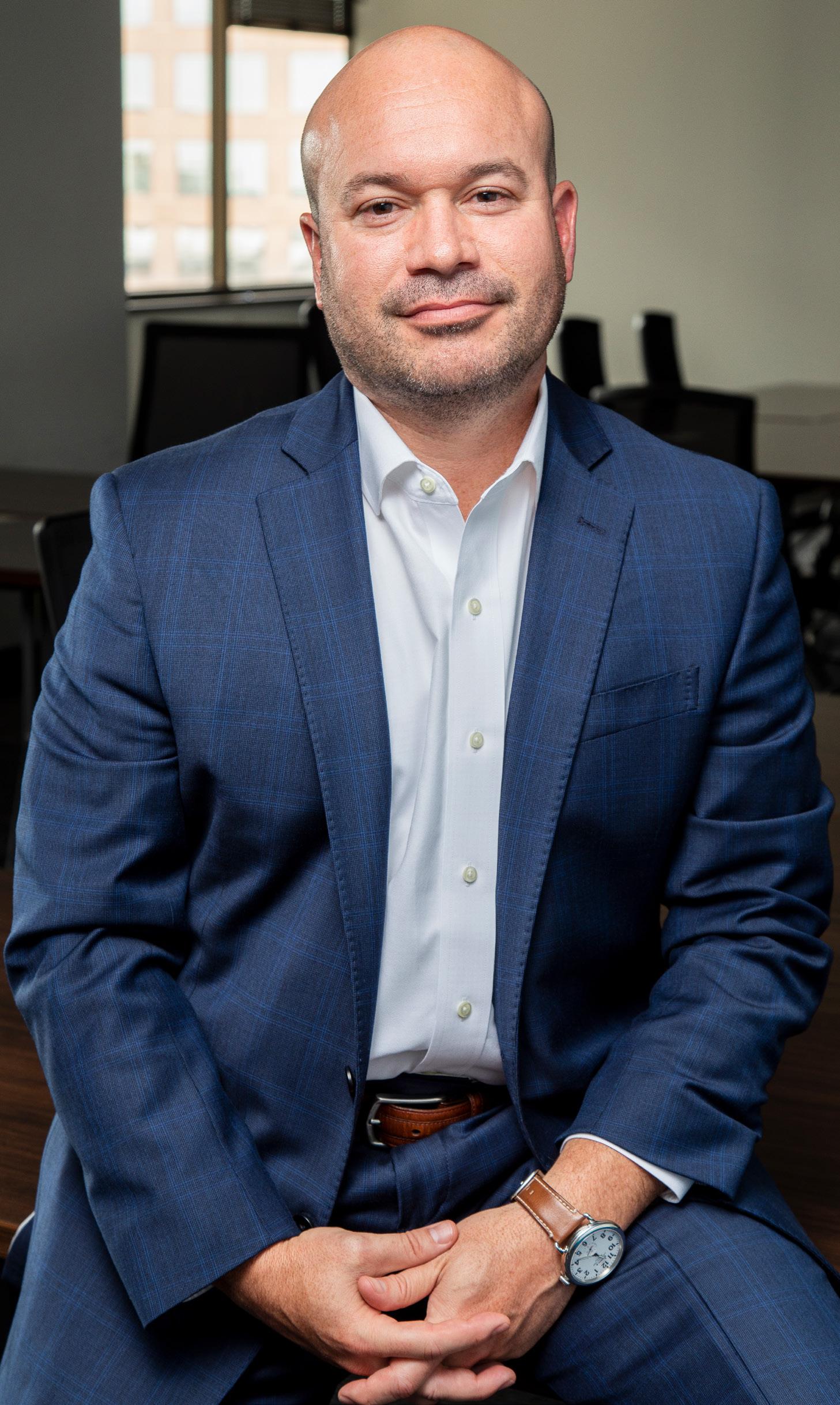
There’s a reason I’m still at this organization. It embodies the spirit with which I was raised—to value an abundance of diversity.”
131
Executive
Hispanic
talent that we have a hand in curating,” Madan says. TEKsystems donates more than $2 million a year to these partner programs, which include DEVELOP(her), an initiative from tech training institute Grand Circus that provides scholarships for women to do coding boot camps; and Per Scholas, which provides free IT skills-based training, mostly for women and people of color. They also partner with the Pat Tillman Foundation and Vets in Tech to help vets and their spouses coming back into the workforce find jobs in technology and corporate environments.
The result, Madan says, is that since 2015 TEKsystems has more than five hundred placements from their partner programs, and, currently, 24 percent of the TEKsystems consultants are women and 37 percent are people of color. “There’s a reason I’m still at this organization,” he says. “It embodies the spirit with which I was raised—to value an abundance of diversity.
“With the Cuban immigrant culture, there’s an ingrained desire to ensure that people around you don’t have to struggle as much as you did,” he continues. “You’re trying to build up the people around you, and in turn they’re going to help build you up. A rising tide will float all boats. I believe in that.”
Transformative full-stack
LET’S PARTNER. TEKsystems.com/services ©️ 2019 TEKsystems Global Services, LLC. ALL RIGHTS RESERVED. DEVOPS CLOUD OPTIMIZATION GLOBAL SERVICES ANALYTICS & COGNITIVE INSIGHTS APP MODERNIZATION
solutions so you can take advantage of a new world of opportunity.
You look out across our underserved communities and there’s a lot of talented people.”
132 The Greater Good
INSIG HTS Insights
The
philosophies of innovative leaders have the power to inspire and spark change. Read on for the thought-provoking insights of these successful executives.
134 Antonio Gutierrez, First in Service Travel
139 Tony Mendez, MasterCorp Inc.
142 Juan Silva, Otis Elevator
148 Hector Gutierrez, Citizens Business Bank
152 Miguel Carrillo, Iron Mountain
General Counsel Is Just One of His Jobs
BY BRIDGETT NOVAK
Antonio Gutierrez’s executive role at First in Service Travel has continued to evolve thanks in part to his devotion to developing lasting relationships with clients
134 Insights
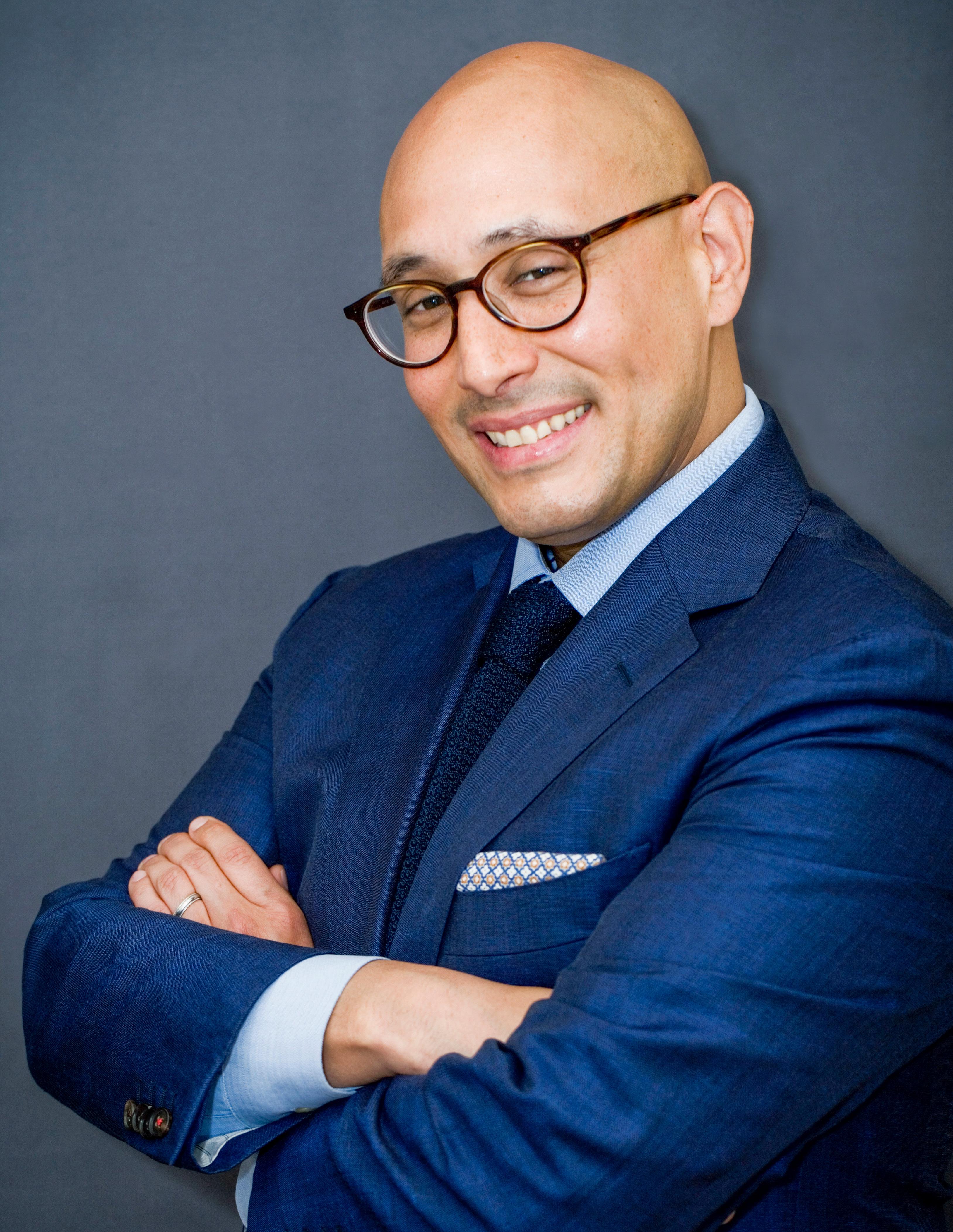 Antonio Gutierrez Chief Business Affairs Officer First in Service
Antonio Gutierrez Chief Business Affairs Officer First in Service
Travel
In addition to owning a restaurant, his father was also a doorman at New York City’s Gramercy Park Hotel and spent years as the personal driver for a high-profile executive. In short, treating people well was a value imparted to Antonio from a very young age.
Education was also emphasized, as was bilingualism. In his final years of elementary school and throughout high school, Gutierrez’s parents—his mother hailing from Puerto Rico, his father from Peru—sent him to the Argentinian school Escuela Argentina en Nueva York every Saturday. “I went kicking and screaming, but now I’m so glad my parents did that,” he says.
After earning a BA in international studies from American University, Gutier-
rez served as the director of admissions at Xavier High School, his alma mater. Xavier is a prestigious college prep school for boys. “The Jesuit education I received at Xavier shaped my life, and I wanted to ensure more diverse kids like me had access to this kind of quality education,” he explains. “At first, I thought about getting a master’s in education, but I decided I’d have more impact with a law degree.”
He got his JD at Rutgers Law School, which included a semester at the University of Puerto Rico School of Law, and he spent three years at LeClairRyan practicing business law and litigation. He then cofounded Plata Ferrer & Gutierrez LLC (PF&G). “Latino-owned businesses were
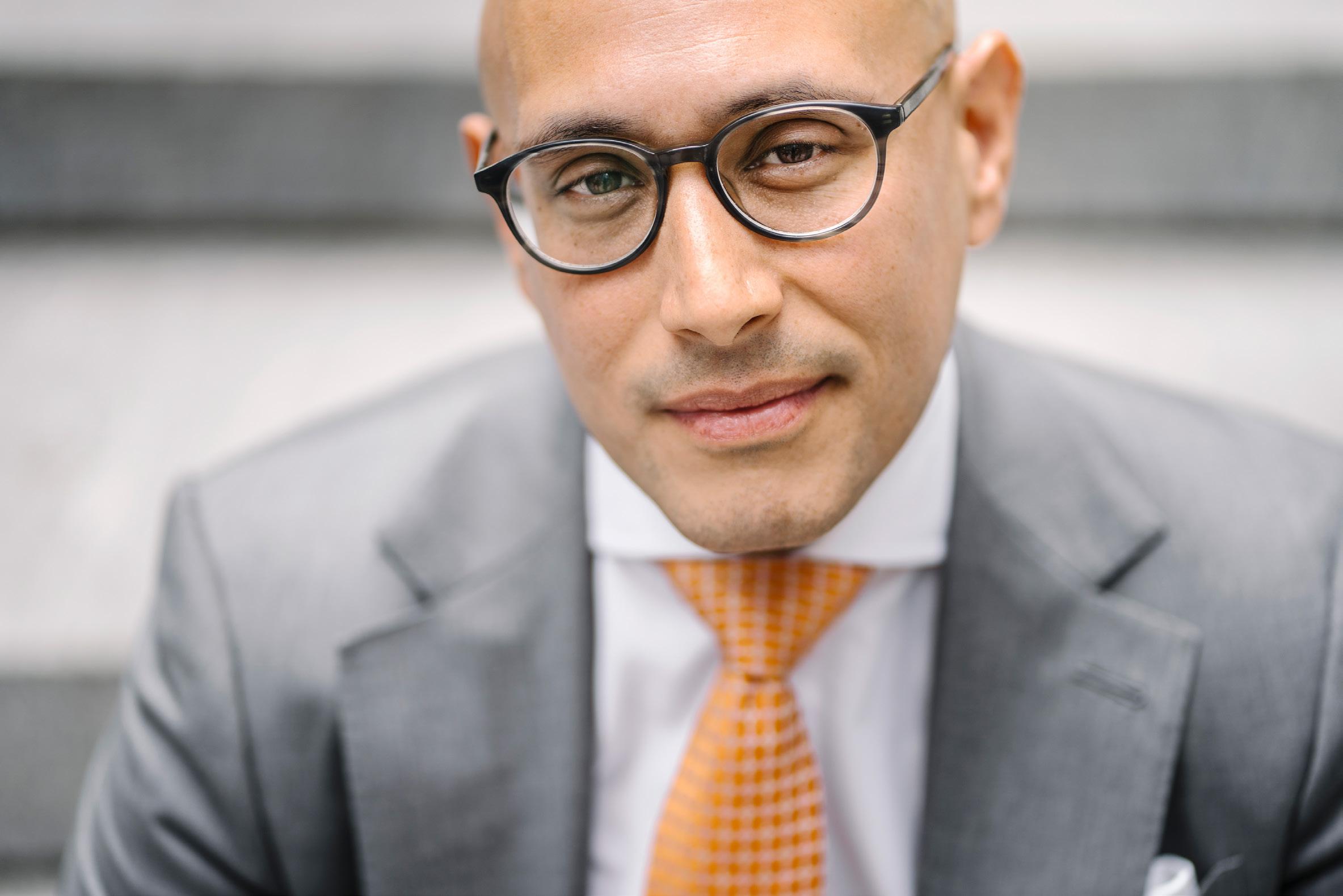
KRIEG 136 Insights
Antonio Gutierrez’s mother was a customer service representative at Citibank for thirty-eight years.
SARAH
not particularly well-served by most big law firms. We spoke Spanish and had relationships with many Hispanic business owners, so we launched a firm to serve them,” Gutierrez says.
The five years he spent at PF&G helped solidify his belief in the importance of relationships. “It wasn’t just sharing backgrounds and cultural values that was important to our clients, but the fact that we took the time to understand their businesses and their appetite for risk. Many of them started their companies with handshakes. We partnered with them to create plans to accomplish their short-, mid-, and long-term goals, while retaining that handshake-level of trust,” he explains.
One of PF&G’s clients was First in Service Travel (F1S). The luxury travel firm, which specializes in serving the fashion, finance, entertainment, media, and hightech industries, was founded in New York City in 1991 by siblings Erika Reategui (president) and Fernando Gonzalez (CEO). Gutierrez joined them full-time in 2015 as the company’s first general counsel and chief administrative officer, a rare opportunity for a thirty-five-year-old. “They were expanding dramatically, so there were lots of issues to tackle. I helped define the business strategy, organize corporate paperwork, establish a board of directors, negotiate customer contracts, and transition us from a homegrown enterprise to a global power player.”
EXPERTISE SPOTLIGHT
Travel work closely with the Plata Law Group LLC, a firm that serves as legal counsel and business partner. As outside counsel or outsourced in-house counsel, the Plata Law Group is a Hispanic-owned firm serving companies at all stages of the business life cycle. The firm learns the intricacies of its clients’ businesses and the marketplaces in which they compete to develop legal solutions that achieve the clients’ business goals. The firm is a trusted advisor when discussing risks and objectives because it fully understands its clients’ core business activities.
As business counsel, the firm has experience with human resource and regulatory compliance, corporate governance, cybersecurity, privacy, data protection, intellectual property, and mergers and acquisitions. The firm approaches all corporate negotiations aggressively while working to identify potential issues to avoid future litigation. The firm’s litigation practice handles complex business and commercial matters in federal and state courts, such as breach of contracts, business torts, and shareholder disputes, and has experience litigating suits involving environmental, employment, and franchise law, restrictive covenants and insurance coverage disputes. Although the firm endeavors to amicably resolve matters, the Plata Law Group is always prepared to take cases to verdict.
“I may have been initially hired for my legal skills, but after that, it was clear I was a businessperson too.”
Antonio Gutierrez and First in Service
137 Hispanic Executive
He was also asked to manage F1S’s new office in Santa Monica. “That was a real trial by fire,” he laughs. “I had to support and manage independent advisors, develop supplier relationships, and grow the business, which meant pounding the pavement to drum up sales. In the eighteen months I spent there, I expanded the team and grew annual sales to $30 million. I may have been initially hired for my legal skills, but after
that, it was clear I was a businessperson too.”
His role has continued to evolve. His title recently changed to chief business affairs officer to more accurately reflect all that he oversees, in addition to legal—i.e., marketing, advisor relations, strategic partnerships, business development, and HR (aka talent and culture).
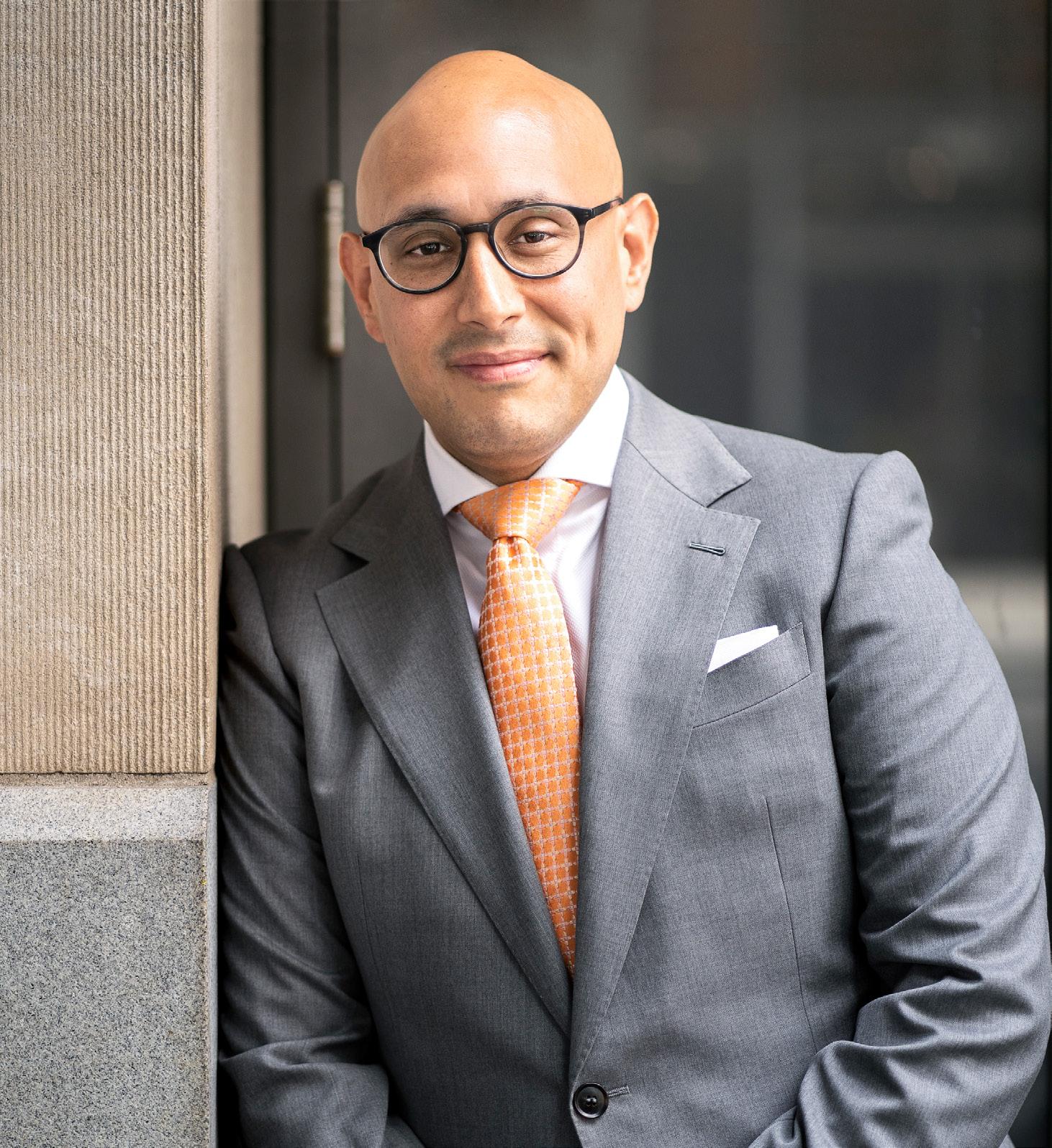
Gutierrez sees this as a trend. “More and more in-house lawyers are providing strategic
help to their companies and becoming essential members of the executive team. Belinda Johnson is a perfect example,” he adds. (Johnson joined Airbnb as general counsel in 2011, was named chief business affairs and legal officer in 2015, and became the company’s first COO in 2018.)
“To support a company’s growth, we have to rid ourselves of the attorney’s typical tendency to say ‘no’ and instead come up with creative solutions to accomplish the business’s goals,” Gutierrez says. In fact, F1S CEO Fernando Gonzalez asks his team members to be entrepreneurial, take risks, and erase the word “no” from their vocabulary. With $200 million in sales, the approach seems to be working. In addition to its offices in New York and Los Angeles, F1S now has locations in Miami, Madrid, Bogota, and Toronto. An office in Mexico City is set to open by year-end 2019.
“As an attorney, I might be cautious to enter certain markets, but if Fernando is gung-ho for that growth and I know he has a big appetite for risk, my job is to find a way to make it happen. Sometimes, that means slowing us down a bit while we learn about that market’s opportunities, regulations, compliance issues, and local competitors. That kind of due diligence helps us understand the costs and risks,” he explains.
“My job isn’t to stand in the way, but to help get the company where the CEO wants it to be. It’s about being an impactful business partner, establishing good relationships, and treating people with respect along the way.”
It’s a motto his parents would be proud of—and, now with their firstborn in tow, it’s one that he and his wife can impart to the next generation of the Gutierrez family.
138 Insights
SARAH KRIEG
After twenty-two years in the Navy and eighteen years in the hospitality industry, MasterCorp’s Tony Mendez shares how he found . . .
The Right Current to Success
BY KC ESPER TONY MENDEZ HAS ALWAYS been drawn
to hospitality. But before entering the corporate world, he served in the US Navy for twenty-two years—an experience, he says, which shaped the rest of his career.
“I wanted to serve my country and be productive in a way where it shows what the country has given me,” he says. “Throughout the process, I ended picking up a career as an intelligence specialist, which supports mission planning and logistical intel processing—allowing me to interact with different types of units and individuals to prepare and present intelligence briefings and materials for reconnaissance missions. That’s where I really found a passion for being hospitable and providing support to others. My mission was to make sure we provided for our fellow sailors’ needs with respect to each operation.”
Hooked on hospitality services, Mendez found a current that weaved him through
the industry. Of Guatemalan descent, he moved to San Juan, Puerto Rico, after he left the Navy and lived there for about twelve years, finishing up his university studies in law enforcement and biology. Quickly, he fell in love with Puerto Rico because of its affinity for and closeness to the sea. It was a resource for tourism, both aesthetically and economically. Naturally, the tourism industry is where Mendez landed as he gravitated toward positions that focused on surveillance and hotel safety and security. During his studies, he started at the Embassy Suites Hotel & Casino, San Juan, as its director of safety and security.
“I was working the graveyard shift at the Embassy Suites Hotel, going to school during the daytime and working at night,” Mendez says. “That experience really convinced me that this is truly where I wanted to be.”
139 Hispanic Executive
When Mendez left Puerto Rico in 2004, he carried his congenial spirit to Orlando, Florida, where he worked in the safety and risk management sector of several other big-name hotel brands and franchises, including Hilton and Wyndham. Throughout his journey, Mendez was guided by the lessons he learned in the Navy.
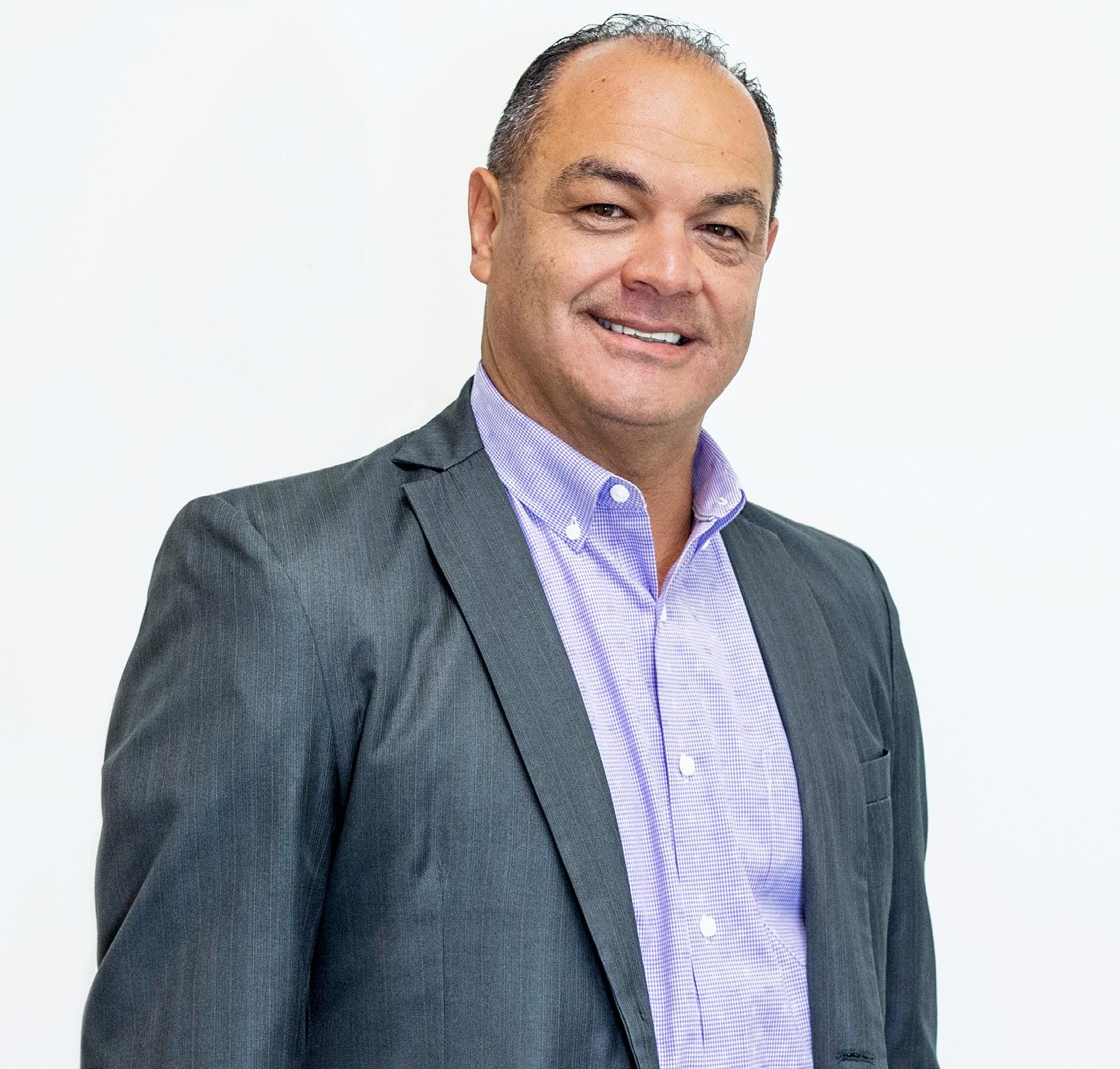
“The structure, discipline, and integrity that comes with being in the Navy allowed me to excel in the hospitality industry and be a mentor for individuals now and in my positions previous,” Mendez says.
Today Mendez stands as the vice president of risk management and safety for MasterCorp Inc., a world-class hospitality services supplier for the global time-share
and resort industry. As a third-party partner in the industry rather than a full-service brand, MasterCorp helps fulfill the overall management of a resort or hotel operations by providing comprehensive turnkey, service-select, preventive-maintenance, janitorial, and staffing-solutions services. With a MasterCorp partnership, property managers can both outsource for more time to focus on hospitality and up-source to the performance of world-class services. MasterCorp has been a leader in cleanliness since 1981, partnering with premier resorts and developers nationwide. Its more than nine thousand associates provide innovation, high-quality results, and great customer satisfaction.
Within the risk management department, Mendez and his team assess, control, and minimize workers’ compensation claims, prevent accidents or hazards, and eliminate unacceptable risk to ensure that each company they serve is provided with phenomenal customer service. Their work bolsters the experience of each guest at every resort while measuring internal and external satisfaction experiences with quality- and loss-control inspections. If there’s a safety accident, Mendez’s department is the first to get notified.
“First, we try to figure out what the root cause of the accident was,” Mendez explains. “Were they using the right tools? Were they following procedures? Did they understand their job duties? Then, we find out what the
Tony Mendez VP of Risk Management & Safety MasterCorp Inc.
CHAD CHRISTOPHER/PLATEAU CREATIVE
140 Insights
“If we fail, we fail together. But if we succeed, we won together. That does so much to build our culture.”
cause was. The goal is to eliminate the hazards and ensure that type of accident doesn’t happen again.”
In sticking to the pillars of structure, discipline, and integrity he learned during his Navy years, Mendez has duties as a mentor that enforce the importance of transparency. He aims to ensure that his crew accomplishes its tasks efficiently and effectively. “It’s difficult to accomplish goals when we don’t work together,” he says. “If we fail, we fail together. But if we succeed, we win together. That does so much to build our culture.”
Mendez’s mentality not only unites his team, it makes it more connected to his mission. He says that one of his greatest joys is witnessing young mentors fulfilling their potential. For many of MasterCorp’s Latinx workers—comprising 80 percent of the company’s workforce—Mendez’s leadership provides them with an aspirational sense of belonging and motivation.
“I am very proud to call our workers my associates and partners,” he says. “Many of them come from different Spanish-speaking countries. I always give examples of when I wanted to give up during my early years to let them know that even when they think no one is helping them, think again. Someone out there will guide them to the right answer and will motivate them to stay on track.”
“In time, they’ll be led to happiness and success. I get to have honest conversations with my associates that give them fuel to keep going forward. And when I see our associates become managers or supervisors—or even regional directors—that’s what I call passion for the industry.”
MASTERCORP STRONG
In addition to serving its customers with the utmost hospitality by way of their resorts, MasterCorp also takes care of its colleagues and clients at home through its own emergency fund network called People Proud Fund.
The reserve goes toward helping associates who are experiencing personal challenges or have been affected by natural disasters. Team members at all levels donate monthly to the fund, which is managed by a neutral, third-party accounting company. Already, the company has seen the fund change lives by bringing solace to more than forty employees who lost their homes to a devastating hurricane in Panama City, Florida.
“We want our associates to feel proud to work at MasterCorp,” Mendez says. “People Proud Fund shows them we’re there by providing safety and security, and helping them get back on their feet.”
RISSM AN, BARRETT, HURT, D ONAHUE, McL AIN & M ANGAN, P. A . A full service civil and workers’ compensation law firm offers its R i ssman, Ba r rett, Hu r t , D o nahue, McLa i n & Man gan, P.A . OFF I C ES I N OR L AN D O | TAM PA | S E B A ST IA N | FO RT L AU D ER DAL E Congratulations to TONY MENDEZ THE VP OF RISK MANAGEMENT & SAFETY FOR MASTERCORP INC. Where he provides Risk Management, Corporate Safety Health and Security Services to all of its owned and managed locations. It has been an honor to
work withTony and we look forward to many more years of collaboration.
141 Hispanic Executive
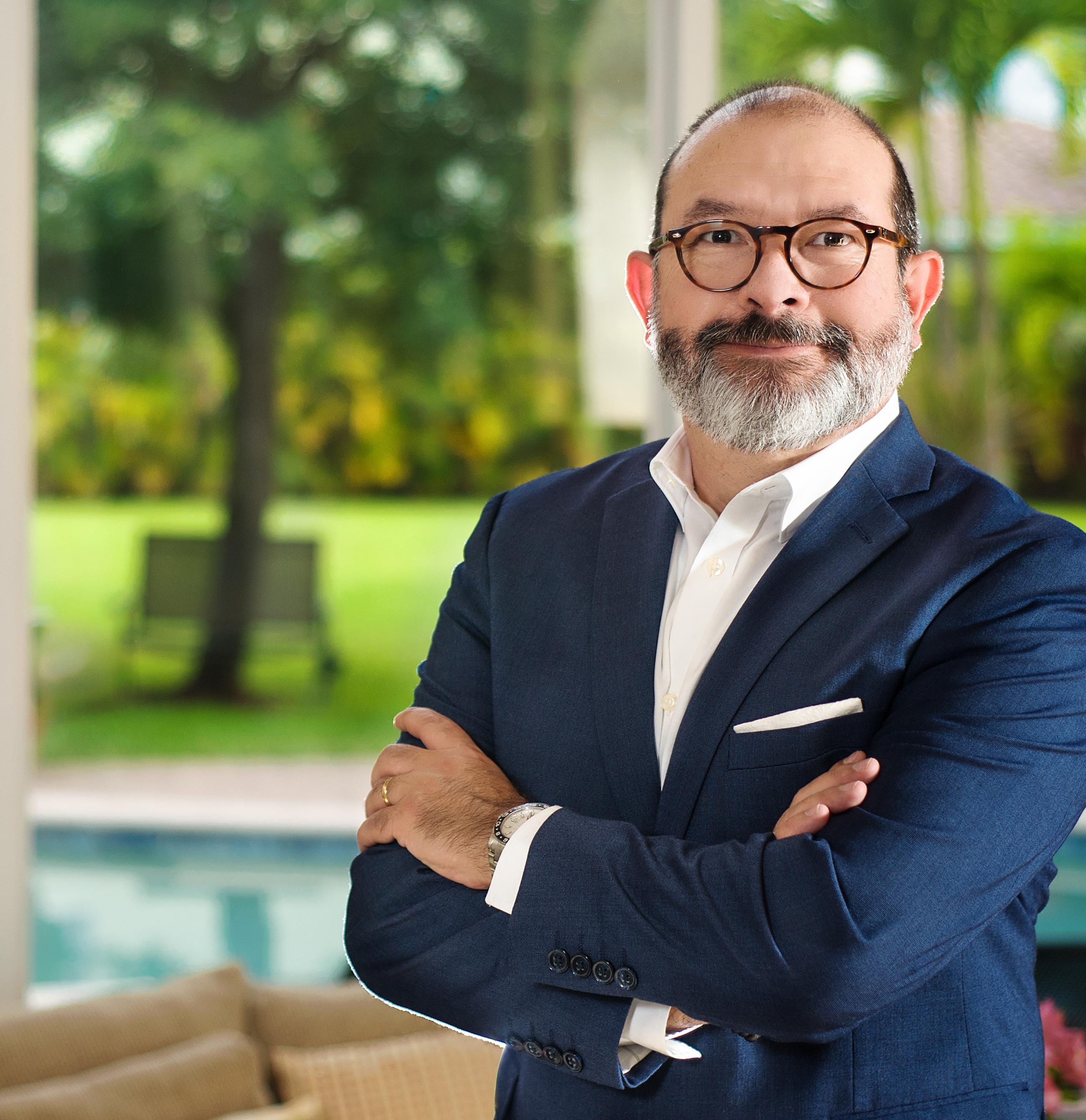
142 Insights
Juan Silva Head of Global Service System & Digital Otis Elevator
Otis Elevator’s Juan Silva on leading a Latin American IT transformation

Going All the Way Up
BY BILLY YOST
JUAN SILVA SAYS THAT to be selfmotivated one has to be acutely aware of his own drivers. “For me, that’s always been two things: people and challenges.” The head of global service system for Otis Elevator can clearly chart his primary passion points along his career and says that his awareness of what inspires him is a tenant of his own success.
By placing his trust in people, Silva has made a willful effort to invest in lives, not roles. He emphasizes personal coaching because he not only cares about impacting those he’s working with currently but also
COURTESY OF JUAN SILVA
143 Hispanic Executive
those who have moved on to other roles at other companies. He’s returned to school over and over because he wants to learn from both the head of the class and the students around him. Taking into consideration that Silva has experience working in what likely amounts to half of the world’s time zones, he’s also helped find the strength to drive transformation across language and cultural barriers. As Silva has achieved success working outside of his home country of Venezuela, he’s managed to cascade his philosophy and management style across borders. That might sound like a challenge, but for Silva, facing down a good challenge makes the reward sweeter.
Silva came to Otis over three years ago, following successful stints at American Express, Mead Johnson Nutrition, and Bristol-Myers Squibb. Just prior to joining Otis, Silva had been in a global implementation role working to integrate a new cloudbased payment system that included work in the UK, Brazil, China, and Spain. The job at Otis would involve a challenging project to drive IT transformation in Latin America. Silva didn’t flinch. “I’ve been working internationally for a good portion of my career,” he says. “More than anything, the reason I’ve been successful managing internationally is because I’ve come to understand important differences in cultures.”
Learning and navigating those cultural differences, Silva says, was eye-opening when it came to understanding what motivated teams with different cultural incentives that were working toward the same goal. For instance, the value of personal relationships
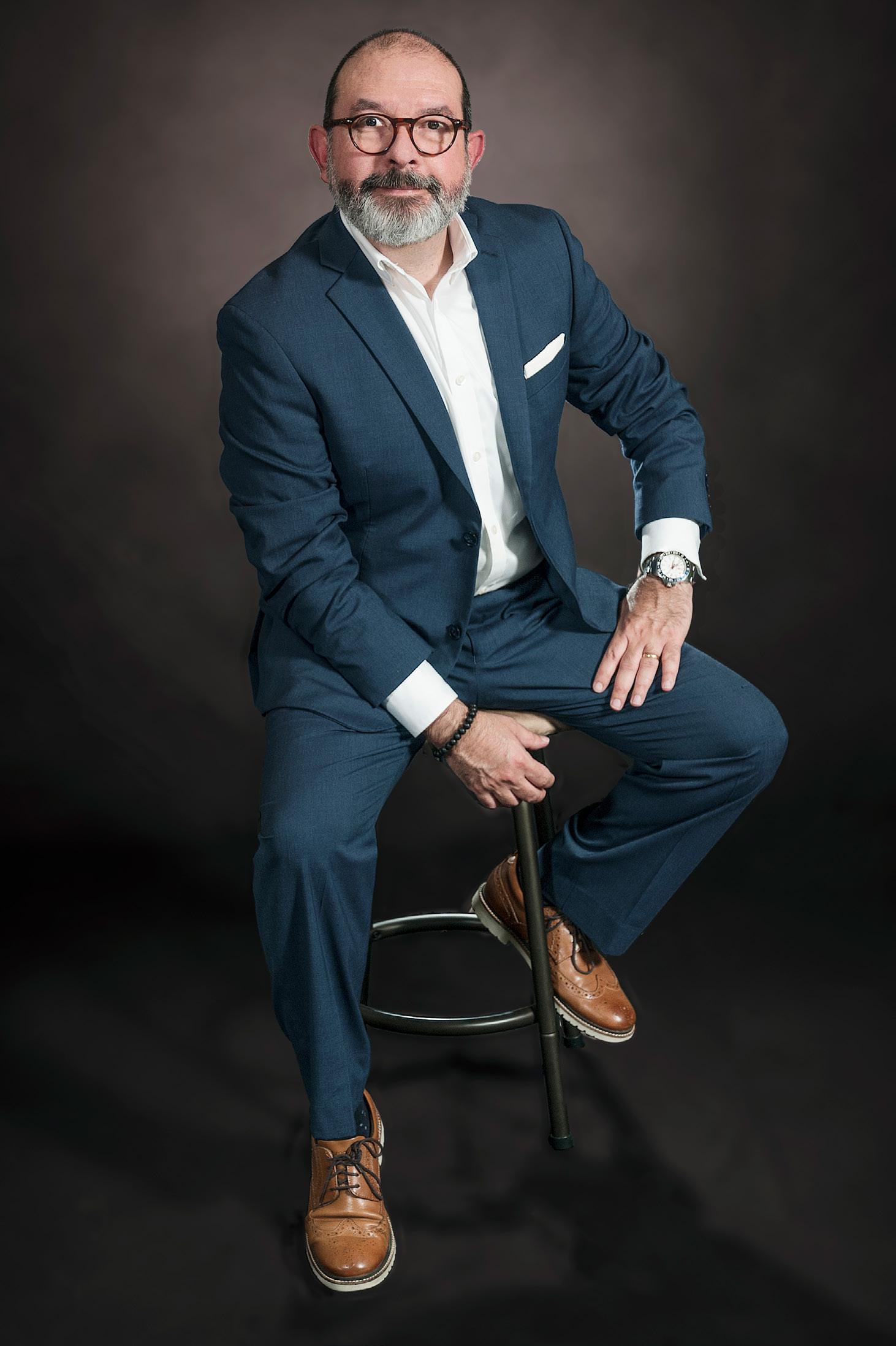
in the building of a business culture in Brazil was different than in China, where companies were more motivated to be considered the fastest and most efficient. “By understanding these differences, you can easily drive and manage the team in the ways that you need it to operate—even though the way
one works may be significantly different than another,” Silva says.
In coming to Otis, Silva explains that he looked forward to exploring and working with the dynamic and colorful cultures of Latin America, though he wasn’t certain that having a personal connection to any
COURTESY OF JUAN SILVA 144 Insights

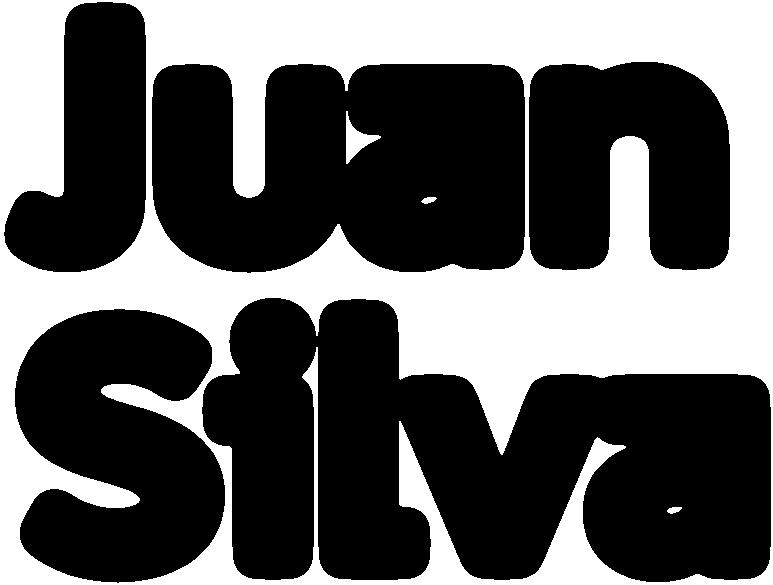
one way of life would aid him much in the tough task at hand. “It was an incredibly big IT transformation for a system that hadn’t been updated in years,” Silva says frankly. “It wasn’t just the systems that needed updating; they needed to transform the organization and processes to be ready for the future.”
Silva says his dedication to people initially directed him to look at how the region’s teams were operating. “It was a totally dysfunctional situation,” Silva says. “Each country head was working individually and not as part of a community with the other department heads in the region.” Silva initiated a total team integration that utilized a shared-services model, creating regional responsibilities for leadership along with the country managers. “I didn’t tell them that they had to talk, but I did create
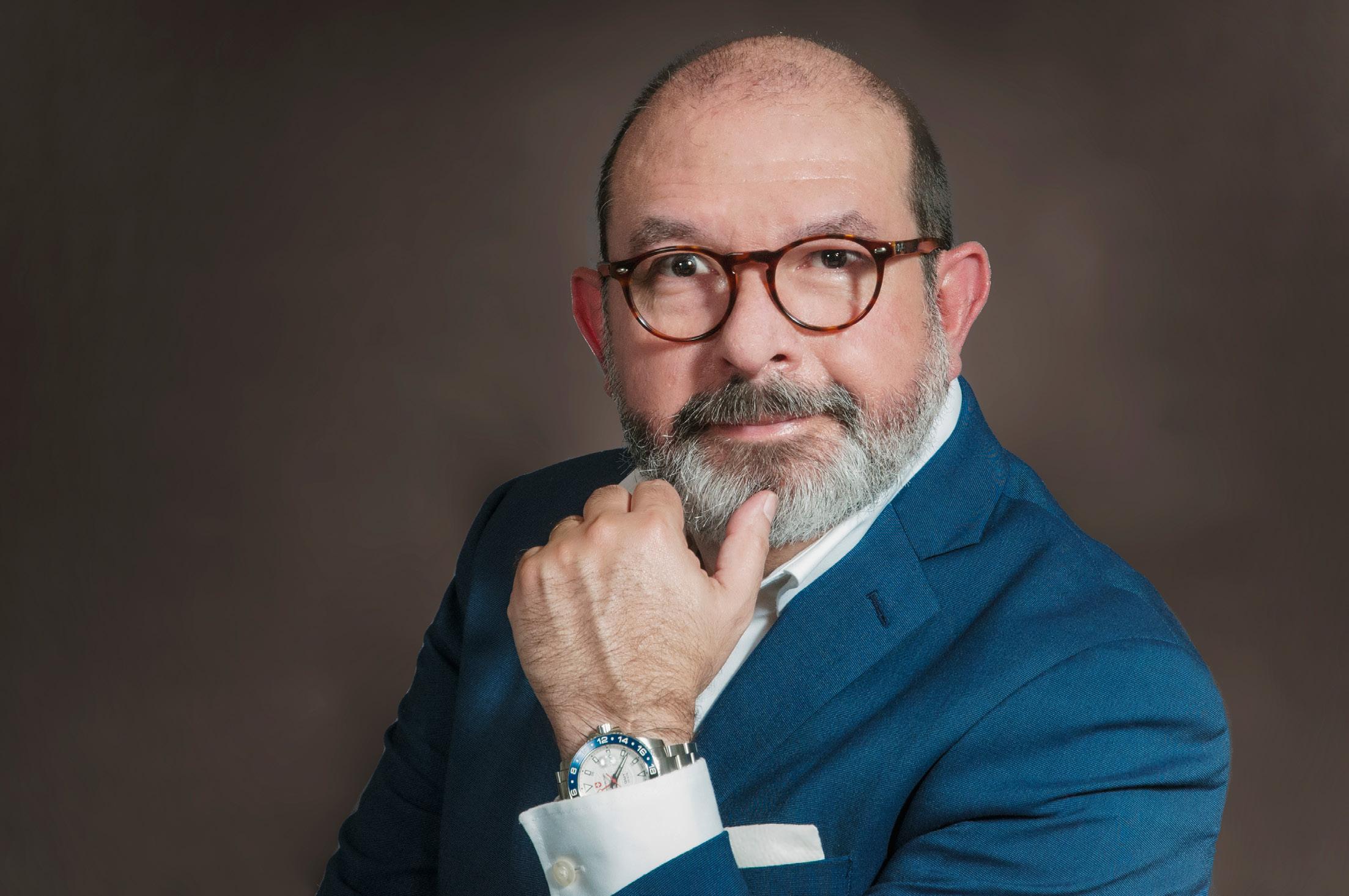
COURTESY OF JUAN SILVA 146 Insights
“I will say, more than anything, the reason I’ve been successful managing internationally is because I’ve come to understand important differences in cultures.”
an organization and responsibilities that required collaboration,” Silva says.
The project took three years, but in that time the Latin American IT division that lagged well behind the rest of Otis’ divisions in technology integration and management rose all the way to the top. “It was a huge transformation—not just in IT, but in culture,” Silva asserts. “IT is being asked to be part of conversations that they were never a part of before.”
Throughout Silva’s tenure, the company’s outside vendor partners have been impressed with his adaptive qualities and team-building prowess. “Juan is a tremendous leader and wonderful human being,” praises Rohit Kedia, the chief business officer of manufacturing at valued Otis partner Larsen & Toubro Infotech Ltd (LTI). “It is our privilege to collaborate with him, as he leads key digital initiatives at Otis with tremendous passion and creativity.”
Silva is applying the philosophy of collaboration to the wider organization in his new role. “We want technology to drive better service, new products, and to be an integral part of the business,” he explains. Otis has partnered with regional universities to incubate startups and drive innovation in an effort to add value and development to Otis’ teams.
Development is a primary focus of Silva’s own code of conduct. Silva
has two master’s degrees in business administration and marketing and believes that learning from both instructors and fellow students provides invaluable knowledge and experiences. Understanding how to best rally individuals to collaborate and face challenges became the focal point of Silva’s leadership. That understanding only became enhanced when he was faced with the extensive IT reorganization in Latin America.
“I spoke with a manager in Uruguay that while he was 100 percent on board with the mission, he didn’t think he would be capable of taking on the new responsibilities I was asking him to,” Silva offers. “I told him that I believed in him more than he believed in himself, and after three years, he became a regional manager and one of the best talents this company has ever seen.”
Silva believes that investing in a team requires consistent feedback and coaching. Ultimately, that feedback and coaching will organically influence the individual members of the team and provide value to their careers moving forward. Silva knows because he’s seen it happen. “You have to be honest to invest in your people and not expect anything in return—because you should believe that no matter where they go, they’ll be a better professional tomorrow.”
UST Global is a rapidly-growing digital transformation company of 23,000+ professionals providing advanced computing and digital innovation solutions to Global 1000 enterprises worldwide.

USTGlobal ®
For more information visit: www.ust-global.com
TRANSFORMING LIV S
147 Hispanic Executive
Playing the Long Game
Since his days as a part-time teller, Hector Gutierrez has sacrificed his free time to further his education, hone his skills, and push himself for the betterment of his career. Now, with Citizens Business Bank, he’s putting perseverance to work for his customers.
BY PAUL SNYDER
HECTOR GUTIERREZ REMEMBERS the many late nights. He began his journey in the financial world as a part-time teller at a drivethrough bank window, first splitting his time between his job and night school. Eventually, he earned his bachelor’s degree in finance, real estate, and law and worked his way up the commercial-lending ladder to a manager role, later landing a job as a credit administrator. Even through all of that, he decided to enroll in law school at Southwestern University School of Law in Los Angeles to develop his legal skills and business acumen.
With his days being eaten up by his role as a full-time bank manager, Gutierrez continued in law school four nights a week for four years, sacrificing family time with his two daughters. “Their love and support kept me going even in the most difficult times, when I doubted myself and wondered whether it was really worth it,” Gutierrez explains. “I
questioned whether the benefits of completing law school were worth the sacrifices, and, to be frank, whether I could even get through law school—let alone the state bar exam.”
Gutierrez persevered. He remained committed and took each full day at the office, each long ride to and from Los Angeles, and each night of classwork—completing his education, earning his Juris Doctor degree, and passing the state bar.
“It showed me that when I put my mind to something and have a goal worthy of achievement, I can do what I have to do to make it happen,” he says. “Sometimes you know you can do something for a few months, maybe a year. But four years of anything can be challenging. I now know I can handle just about any obstacle.”
Because of his experience and personal belief in the value of education to better himself, Hector often encourages his
148 Insights
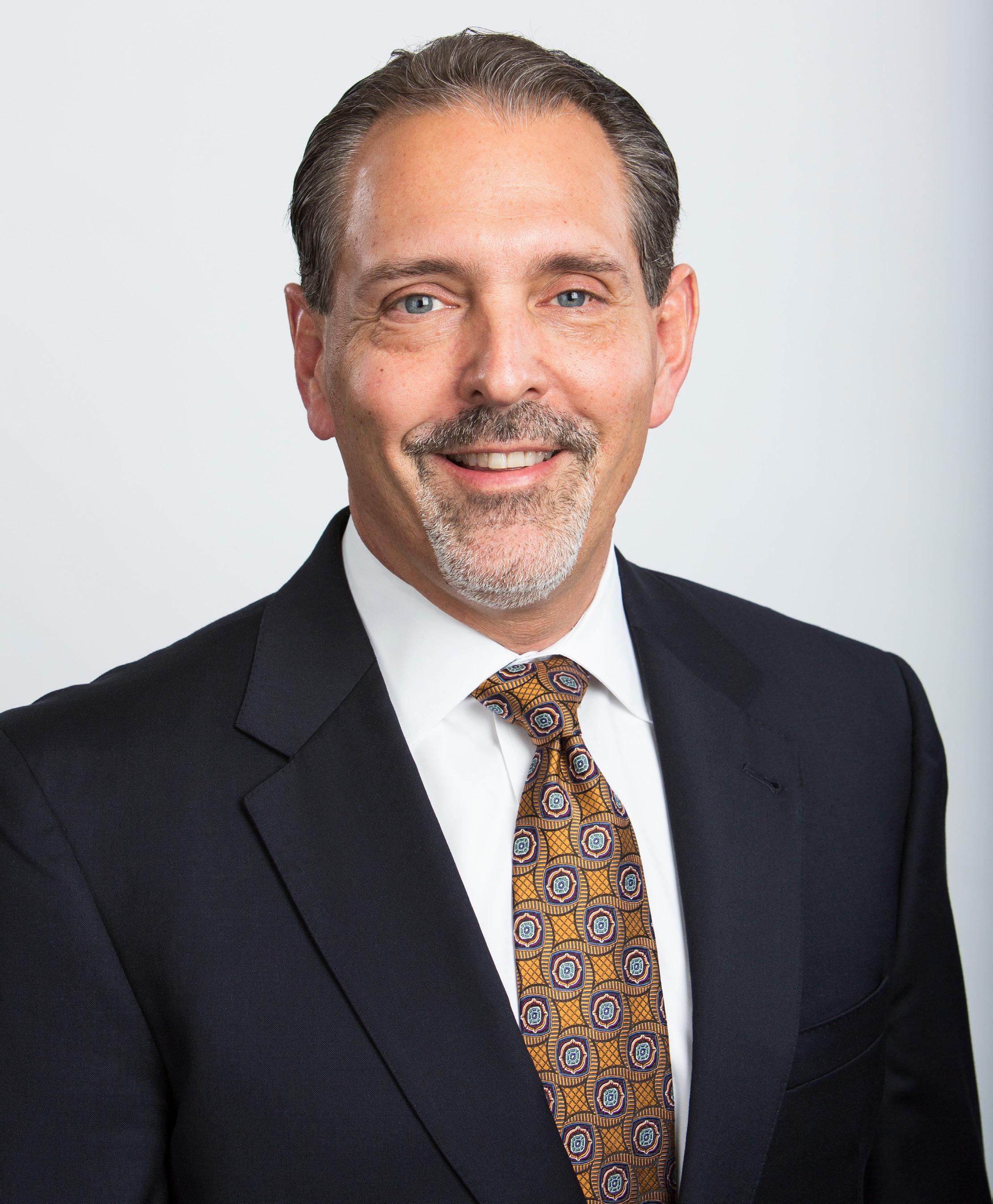 Hector Gutierrez
Hector Gutierrez
149 Hispanic Executive
EVP and Deputy Chief Credit Officer Citizens Business Bank
colleagues to pursue their dreams despite daunting challenges. He wants to remind them that each step forward, however small, is a step closer to their goals.
Now in his eighth year with Citizens Business Bank, Gutierrez serves as executive vice president and deputy chief credit officer for a forty-five-year-old organization that has grown to over $11 billion in assets, three trust offices, and more than fifty locations throughout California. With perseverance and determination, Gutierrez achieved his goals—and now he’s working with his banking team to help small business owners realize theirs.
“At the core of everything we do, what binds us in our purpose is our culture,” Gutierrez notes. “As a high-performance institution, we’re always striving to improve ourselves. We find ways to become more efficient and more effective in our partnerships with clients, while earning their continued business. It’s an ongoing effort that starts at the top and permeates everything we do.”
In addition to efficacy and efficiency, trust and integrity are keys for Gutierrez and Citizens Business Bank. They’re also major reasons why the tenure of the bank’s associates, as well as retention of its clientele, is so high. Gutierrez says the reason clients maintain long-standing relationships—and often return after trying alternatives—is the confidence they place in the bank’s consulta-
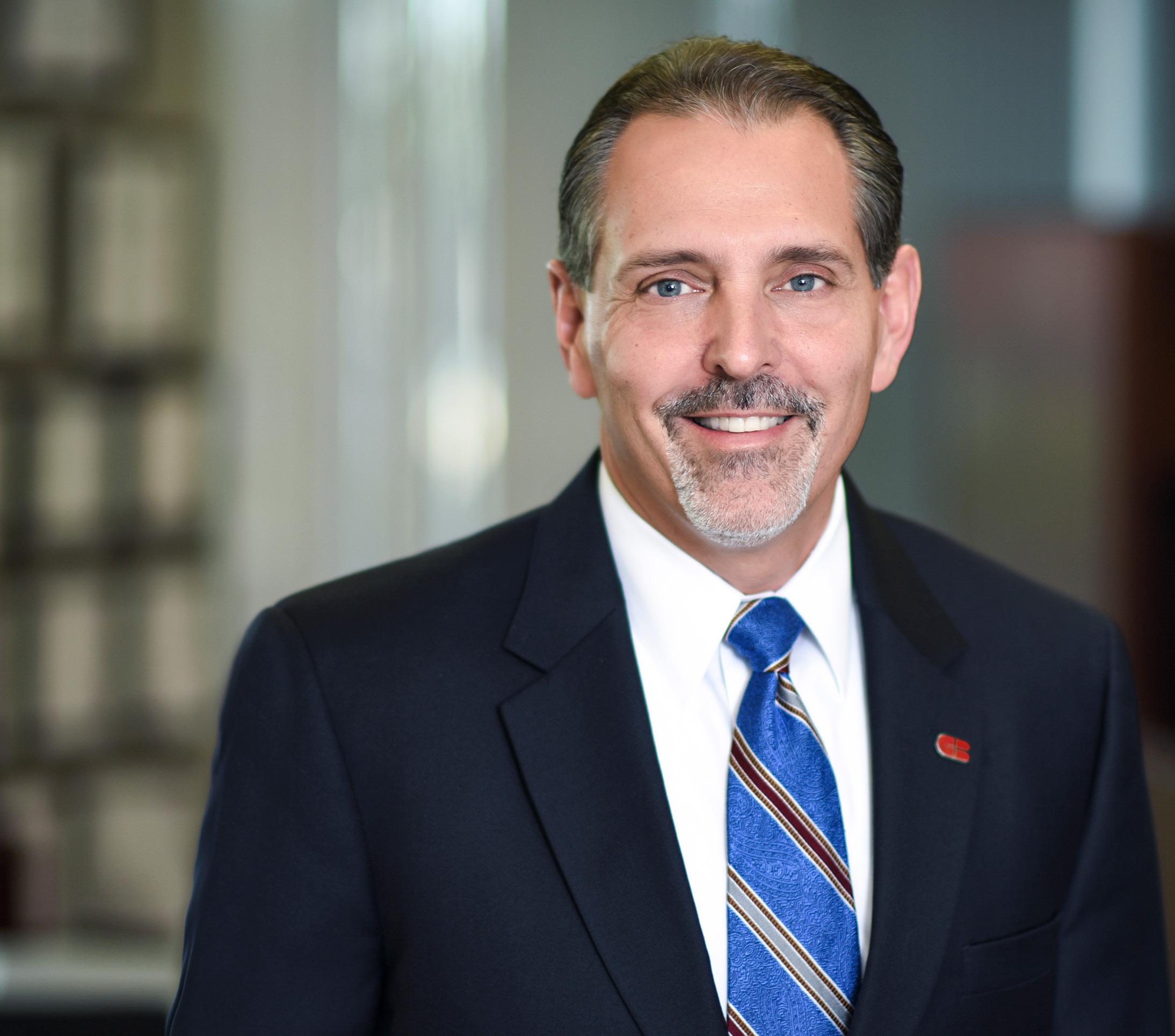
150 Insights
“Having the patience and perseverance in doing the right thing for the client, rather than the most expedient or routine thing, will often result in a long-lasting relationship.”
tive approach. The bank will seek solutions that are in clients’ best interests, even if the deals are not perceived to be as good as what competitors are offering. This honesty withstands the test of time and provides clients with a reliable, long-term partner.
“There are going to be times when you just can’t provide everything that someone requests because maybe the bank or the particular credit arrangement just isn’t the best fit,” Gutierrez says. “There might be other banks pitching a solution simply to get that business. We would take a different approach and explain why we believe a particular structure may or may not work, and how we believe it to be in the best interest of that client.”
Gutierrez explains that situations will come up in which the bank provides a client with a deal it believes to be more sustainable and better overall for that business. Still, the client might choose to go elsewhere for their banking. “We have to be able to be comfortable with our decisions, and we often find that the clients will come back at some later juncture and say, ‘You guys were right, and I appreciate the fact that you were willing to be honest with me,’” he says.
“We find ourselves gaining a lot of business at later dates because we held to our principles and took a partnership
approach to solving issues and meeting the needs of the client. Having the patience and perseverance to do the right thing for the client, rather than the most expedient or routine thing, will often result in a long-lasting relationship.”
It’s just like what Gutierrez learned from his experience juggling work with school— playing the long game pays off. Now he’s not doing it alone. He’s part of a like-minded team that offers the best solutions for its clientele.
“The banking industry is always changing and evolving in so many different ways. We’re constantly testing our knowledge about how things work and how they can work better,” he says. “I try to foster creativity and collaboration with my team to solve different challenges, come up with unique solutions, and see if we can find ways to implement these ideas for the betterment of our clients and the bank. It’s inspiring to see how people grow when you empower them to develop those ideas.”
Gutierrez recognizes now that it’s not only the sacrifices one makes early in a career but the seeds sown each day that fulfill a sense of purpose. “It’s afforded me the great opportunity to play a role in helping develop our bank associates and support our clients to realize their dreams, which is the ultimate reward.”

151 Hispanic Executive
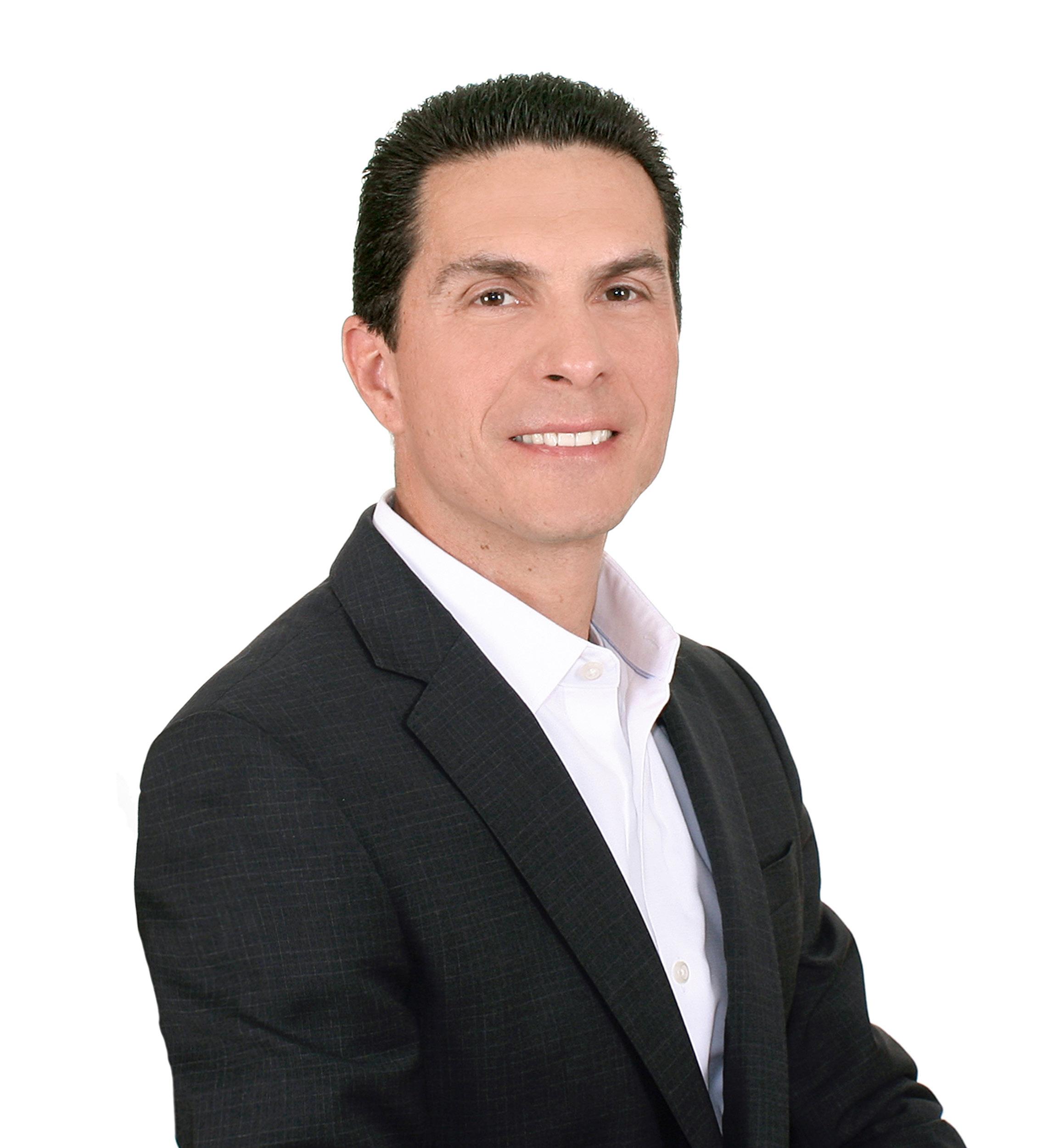
FOTO LEO
152 Insights
Miguel Carrillo VP and Senior Counsel, International Iron Mountain
As senior counsel, Miguel Carrillo coordinates international operations at the speed of business
From the Sea to the C-Suite
BY BILLY YOST
MIGUEL CARRILLO REALLY THOUGHT he would become a marine biologist. As a child, he was fascinated by marine life, along with the tanks and equipment that keep the underwater world blossoming on land. When Carrillo was a kid growing up in Mexico City, his dad bought him the twenty -one-volume series of The Ocean World of Jacques Cousteau , and it ended up occupying much of his young imagination.
Perhaps Carrillo would have dived into a career devoted to the high seas had he not one day accompanied his uncle to an appointment at a prestigious law firm in Mexico City. It was 1987, and Carrillo’s uncle was a plaintiff in a civil case and had a meeting with one of the firm’s partners. A high schooler at the time, Carrillo remembers exactly what the lawyer was wearing: a navy suit, a red tie, and shoes shined so impeccably that he could almost see his reflection in them. And that was before he even noticed the lawyer’s diplomas hanging on the wall behind his desk. It was right then Carrillo knew he was going to become a lawyer.
It wasn’t just a feeling. Carrillo set two objectives modeled after the impressive individual he’d met. First, become a lawyer with all the grace and panache on display in the office that day. And, second—but actually coming before the first—obtain a master of laws degree in the United States, much as the lawyer had while living in New York City. Few, if any, know where their lives are headed in high
school. Carrillo on the other hand followed his plan to a T.
After graduating from law school in 1994, Carrillo began his career journey as an in-house lawyer with Danone de Mexico, where he quickly learned that the curriculum he had absorbed in college had been much more focused on litigation law than business law. “Two different worlds,” he explains.
While at Danone, Carrillo began to understand that there was a separate education process in getting familiar with not only a company and its products and services but also how that company does business in other jurisdictions. “I found a gap between private practice and the work that is required in a multinational company,” says Carrillo, now at Iron Mountain as vice president and senior counsel, international. “Working as an in-house lawyer with international experience has given me the opportunity to study diverse laws and their applications from many cultural perspectives, which truly has been invaluable.”
Regardless of the industry, products, or services a company may provide, ultimately Carrillo knows that he needs to deliver his services in accordance and compliance with the law. As he moved on to positions at Gillette and, later, IBM he strengthened his skill sets to develop much more than just legal knowledge—he developed tools to embrace challenges going forward.
Carrillo would earn his own master of laws degree in 2012,
153 Hispanic Executive
beginning his now eight-plus-year career at Iron Mountain on a high note. By continuing to develop his leadership skills, Carrillo has positioned himself as an expert in leading multinational legal teams whose strengths lie in their diversity. “Developing international experience has given me the opportunity to study diverse laws from many cultural perspectives. That has truly been invaluable,” Carrillo explains. “My team’s multiple approaches to different problems is a result of their different cultures and ideologies—but they always work in a collaborative way to empower each other.”
Water may have been Carrillo’s earliest passion, but now it’s the rest of the planet that seems to be under his watch. His four-region territory includes Latin America, India, Asia/Pacific, and northeastern Europe—as well as the Middle East, North Africa, and Turkey. The international legal team has been focusing on implementing policies and procedures regarding the contracting processes with Iron Mountain customers in every region. “We put in place escalation metrics to approve exceptions and limitations of liability,” Carrillo says. “We’ve harmonized the terms and conditions of customer agreements so that when businesses want to do transactions in multiple countries, they will deal
with the same customer agreement for the most part.”





Bringing business to Iron Mountain, while simultaneously enabling it to be cascaded through the company in a seamless manner, is a big driver for the VP. “My thought has always been to excel in all things that I do; I don’t just want to be seen as part of the pile,” Carrillo says. “The legal function has to be a value-add for businesspeople at the company.”

As Carrillo’s scope has expanded, his leadership style has adapted, in part because of support he received from bosses at Gillette and Iron Mountain. “I think I moved from more of a ground-control approach to much more of a play-to-win one,” Carrillo says. “I try to guide my team and support their decisions.” That can be difficult with a can-do attitude like his. He may know the answer to the question, but many times he keeps it to himself in order to let his team grow and develop at their own rate, in their own style.
Carrillo still loves the sea. He still loves fish tanks and thinks back fondly on the hours he spent learning about the mysteries contained within the ocean. But even Carrillo is willing to admit that it would be pretty tough to run legal for most of the world if you’re underwater.
S&R Associates congratulates MIGUEL CARRILLO on his remarkable achievements and wishes him continued success.
New Delhi | Mumbai INDIA
www.snrlaw.in
154 Insights
“Developing international experience has given me the opportunity to study diverse laws from many cultural perspectives. That has truly been invaluable.”
GLO BAL Global
International businesses present unique challenges— and opportunities—for corporate citizenship in multiple countries. The executives featured here thrive in navigating cultural shifts worldwide.
156 Edgar Mayorga, Johnson Controls
162 Dan Ramirez, Teva Pharmaceuticals
167 Enrique Huerta, Liberty Mutual Insurance
170 Dania Blandon-Hernandez, Bacardi
Don’t Look Up
BY BILLY YOST PORTRAITS BY GILLIAN FRY
Edgar Mayorga has climbed the ladder at Johnson Controls through cultural awareness and believing in the goal
156 Global
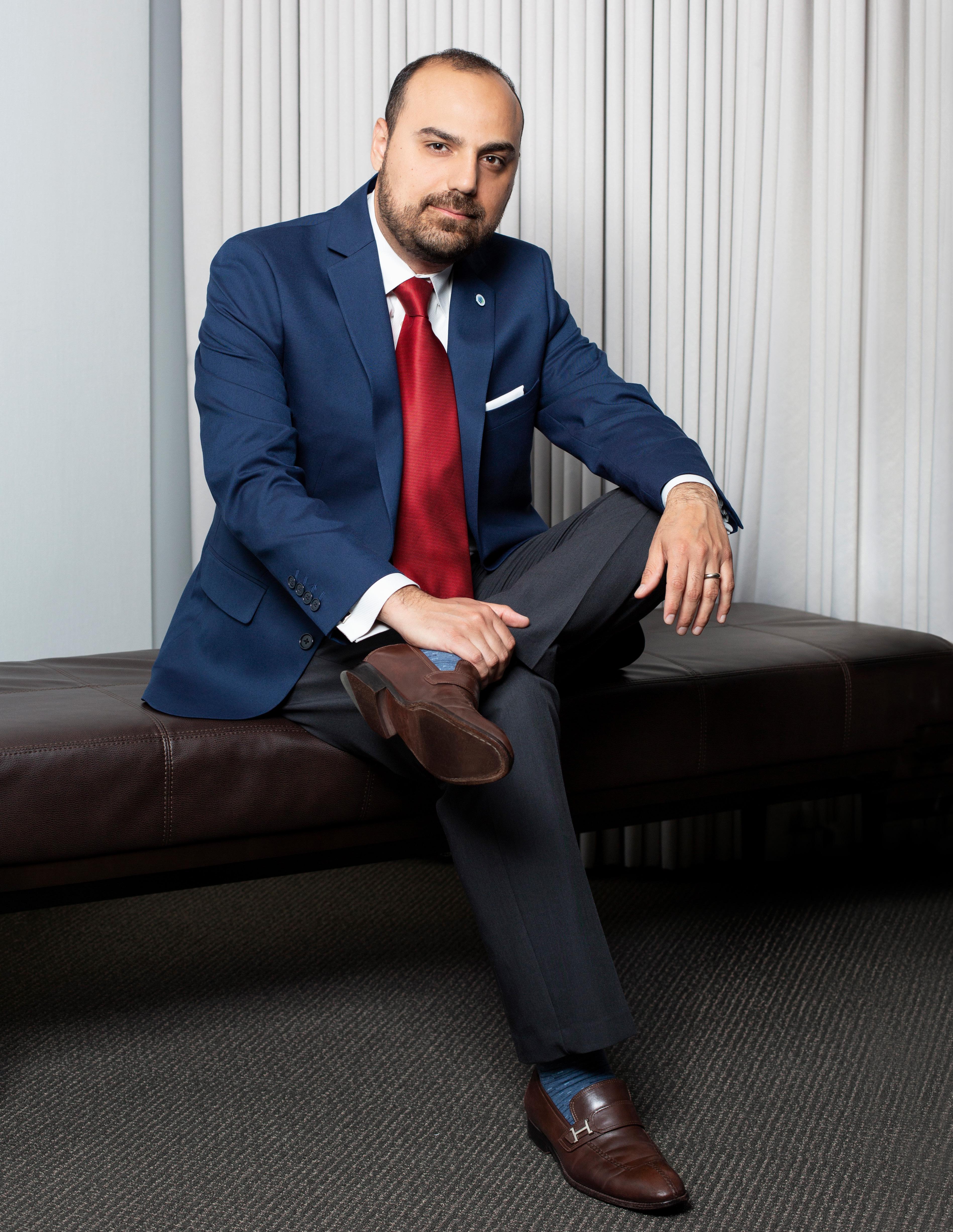 Edgar Mayorga Global Finance-CFS Director Johnson Controls
Edgar Mayorga Global Finance-CFS Director Johnson Controls
“I helped him negotiate the terms for what he was trying to buy and make sure that whatever was said was accurate,” Mayorga explains. “It helped me learn to speak to senior people in other companies and provided the soft skills to help me better communicate with people at all levels in an organization.”
Now global director of a finance organization at Johnson Controls, a global leader in building technologies and solutions, Mayorga worked his way up the ladder at the company in roles that took him from Monterrey to Singapore to Milwaukee. His early experience in navigating multiple cultures aside, Mayorga’s career frequently intersects with multicultural opportunities and challenges. As a result, the director has honed one of his most enduring qualities: the ability to get
everyone on the same page and get things done no matter the differences.
Mayorga says working globally with team members from Johnson Controls has bolstered his confidence in driving success regardless of what others may see as inhibitors to positive business outcomes. When Mayorga transferred to Asia to take on a managerial role, he knew that many might assume a traditional “western disposition” of showing up, imposing a viewpoint, and simply moving on.
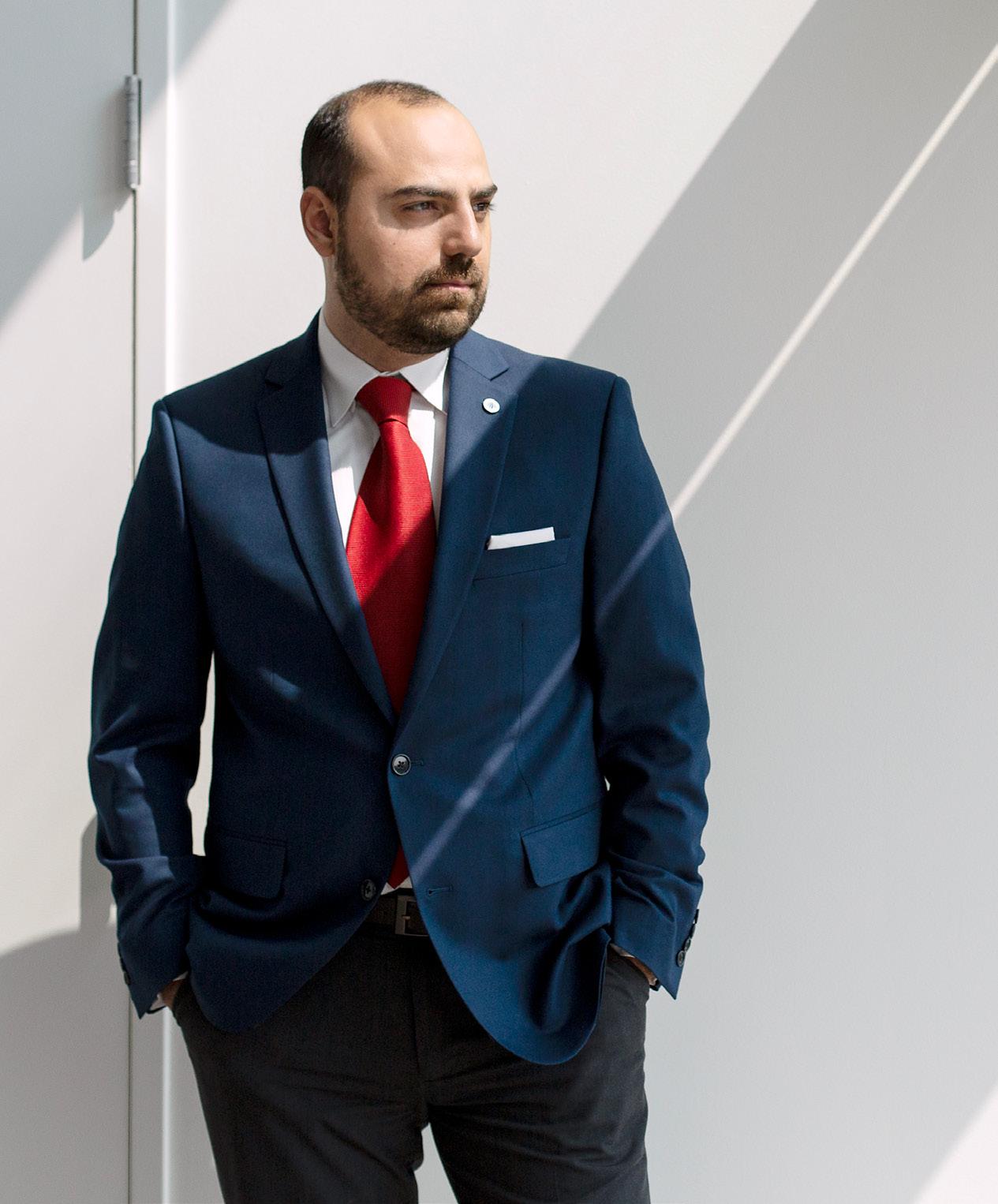
“In my case, I did everything I could to blend in to the culture,” he says. “I learned some Chinese, I ate all of the new food that I could, and I even sat in on the Chinese-only meetings where I could only understand about 5 percent of what was being said.” But in show-
ing effort, he was able to build trust among his team and foster success when he could have much more easily done the opposite and written off the experience as “cultural differences.” Currently, Mayorga manages a team of more than 150 finance professionals across 30 different locations and countries with a wide array of financial responsibilities. In the past four years, the director has become more heavily involved in driving M&A transactions from the finance legal entity and change management execution side of the business. “I’m part of a team that has enabled the materialization of multibillion-dollar transactions that have helped transform the entire company in the last number of years,” Mayorga says. “This was made possible by effective change management and transformation.”
158 Global
Edgar Mayorga says his game-changing moment came when he was still in college. His father was working to begin importing products from China to Mexico and asked his son, who spoke fluent English, to accompany him and help translate some of the more difficult business details.
From the financial perspective, Mayorga says that his team has worked to harmonize as many processes as possible, but it’s never 100 percent effective because of the specificity of local laws and jurisdictions. As finance continues to develop more tools to look at the business from a management-reporting perspective, Mayorga and his team also work to address the need for innovation when it comes to local financial statutory reporting.
Mayorga’s team has also been working on implementing a more standard process that can help them better bridge the US and local GAAP accounting. The tools involved allow more insight into visibility, compliance, reporting, and KPIs. “This has been great because it is basically an enabler toward more harmonization to our model and to our using
by the Numbers
JOHNSON CONTROLS

4M+ customers globally
Serving customers in
150+ countries
105,000 employees
2,000 locations worldwide
130+ years of innovation
8,700+ active patents
$71M in charitable contributions in the last five years
1.07M volunteer hours recorded in the last five years
159 Hispanic Executive
a more consistent model that will help us all identify more efficient processes in time.”
As Mayorga’s roles continue to expand, it’s allowed him to think much more seriously about his own leadership. “Whenever you’re in a leadership role, it can be quite lonely,” Mayorga admits. “You are always trying to push for change and have to be ready to face a lot of resistance.” Mayorga relies on what he calls “corporate mental toughness” and using what he says are tools available to everyone—like meditation and self-awareness—to reflect, grow, and develop. “If I want to lead a large group and drive change, I need to first and foremost have control over myself,” Mayorga says.
For his team, Mayorga says it’s imperative to remove the mystery of why something can’t be done. “It’s very easy to speak to an expert who explains why you can’t do something,” Mayorga says. “But I need them to clearly

articulate why.” In removing the mystery, it not only provides more insight into a given process, but also helps spotlight potential solutions that maybe hadn’t been considered.
The most important lesson Mayorga says he’s learned during his tenure is to never look up, though he admits it may sound strange at first. “I did some rock climbing and was told that you should never look to the top of the mountain,” Mayorga says. “If you are constantly looking to the top, you’re going to start feeling tired and doubtful immediately, and you’ll never make it.” Avoiding uncertainty is not the same as blind certainty.
The same goes for accomplishing just about anything, the director believes. “Focus on the here and now,” Mayorga believes. “Don’t waste your energy on wondering if you’re going to make it—make it where you can make it and let’s see what happens after that.”
“I did some rock climbing and was told that you should never look to the top of the mountain. If you are constantly looking to the top, you’re going to start feeling tired and doubtful immediately, and you’ll never make it.”
Share your story in the pages of AHL magazine and discover innovations from top minds in the field. For editorial consideration, contact info@ahlmagazine.com
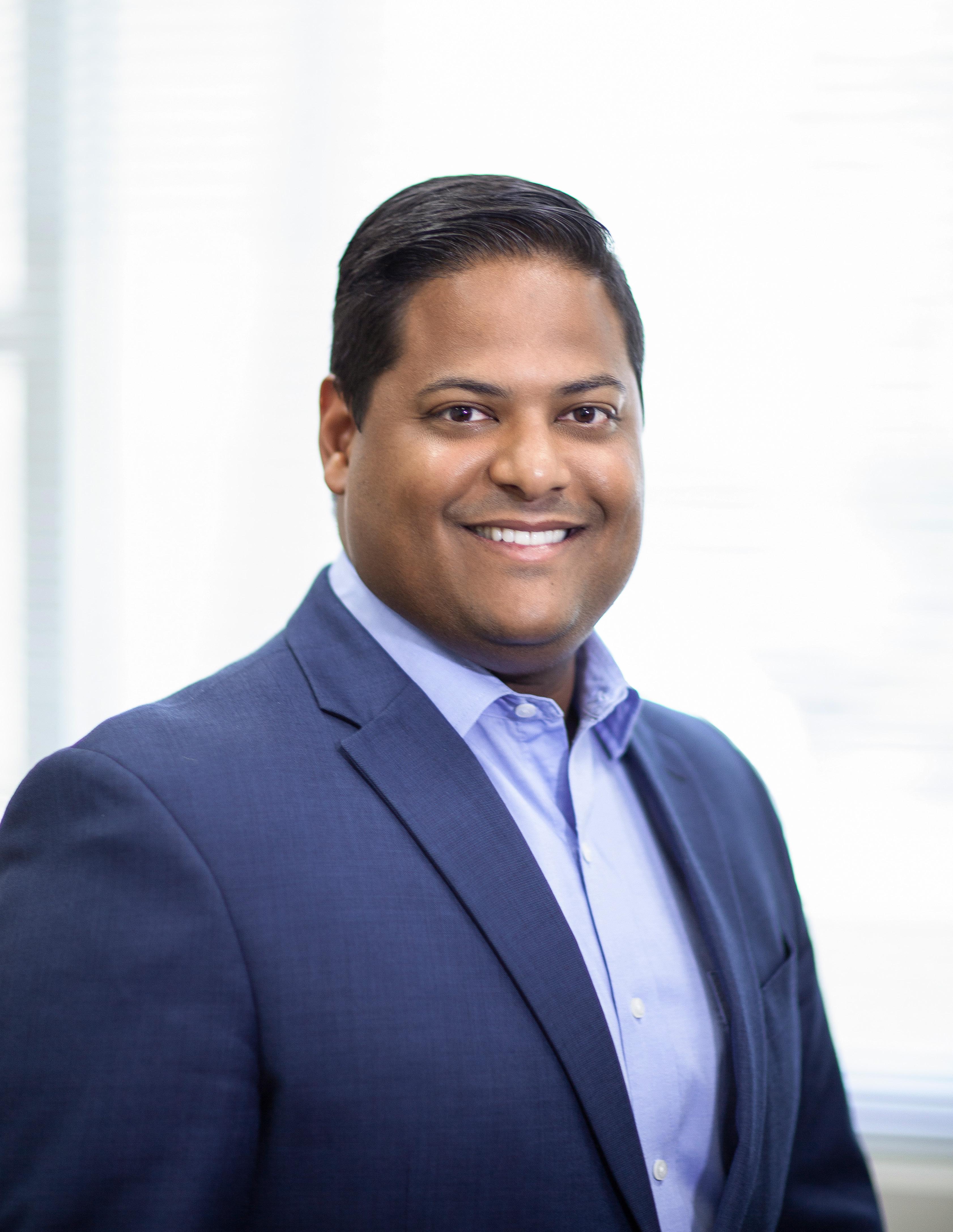 Dan Ramirez
VP and Head of Global Facilities Management
Dan Ramirez
VP and Head of Global Facilities Management
BRETT TYLER
Teva Pharmaceuticals
Leading a New Age of Facilities Management
BY RUSS KLETTKE
Dan Ramirez creates a lean, efficient real estate portfolio and streamlines operations for two hundred Teva Pharmaceuticals facilities across sixty countries globally
163
Executive
Hispanic
UPON IMMIGRATING to the United States from the family’s native Dominican Republic, Dan Ramirez’s parents, Flory and Delis, soon realized what it would take to make a good life in their adopted country. Following Delis’s stint in the US Navy, they followed their ambitions, worked hard, and built a small and successful grocery store chain while also establishing a presence in the local real estate market.
The work ethic exhibited by his parents wasn’t lost on Ramirez. Through a combination of diligence and persistence, today he is vice president and head of global facilities
management for Teva Pharmaceuticals, a global leader in generic and specialty medicines with more than forty million square feet in two hundred facilities across sixty countries. The real estate know-how he learned from his dad—combined with his fluency in English, Spanish, and Portuguese—is clearly helping him succeed and lead in his chosen profession.

A COMPLEX, GLOBAL FOOTPRINT
At Teva, headquartered in Petah Tikva, Israel, Ramirez oversees a mix of global sites used by Teva employees to perform a variety
BRETT TYLER 164 Global
of activities—manufacturing, research and development, commercial, distribution, and warehousing—all with the singular mission of improving the lives of patients. Within these facilities, Ramirez’s team manages all hard and soft services ranging from construction and maintenance to dining services and security.






Like many companies inside and outside of the pharmaceutical industry, Teva has acquired several companies over its lifespan. With so many legacy sites, Teva leadership recognized the importance of managing its real estate in a more rational and efficient way—a significant opportunity that Ramirez was tasked with upon joining Teva in 2015.









In certain situations, consolidating offices requires relocating people. Doing this well and with employee engagement and satisfaction in mind is very important to Ramirez. For example, Teva is expanding its new US headquarters in Parsippany, New Jersey, to nearly 350,000 square feet while exiting multiple sites in Pennsylvania and the Kansas City area—not an easy change for many. The job of Ramirez’s team is to build an effective new workspace while also ensuring a flawless move.



“Bottom line,” Ramirez says, “my team’s job is to manage the site consolidation seamlessly and ease the employee transition.”

jll.com Create breakthroughs through real estate and facilities. AMBITION shared Real Estate Services © 2019 Jones Lang LaSalle IP, Inc. All rights reserved. All information contained herein is from sources deemed reliable; however, no representation or warranty is made to the accuracy thereof.
“If we do this right over the long term, Teva will be in the position to reduce the cost of operating our facilities by as much as 20 percent. That’s a substantial return we can reinvest into the good work we do for our patients around the world.”
165 Hispanic Executive
DRIVING TOWARD MORE EFFICIENT SITES
But that’s only one aspect of Ramirez’s role. He is also leading a company-wide program designed to standardize how the infrastructure of Teva sites operate—a challenging and far-reaching assignment that also requires consolidating internal services under a single supplier: Jones Lang LaSalle.

How will integrating the management of its facilities benefit Teva? Ramirez offers one small example. “Not too long ago, we utilized multiple cleaning and landscaping companies at several locations, which was not a workable long-term solution for a company that values efficiency,” he explains. “By changing the way we think and operate, we are leveraging our buying power wherever we can. It took us a few years and the participation of many to get to this point, but we are starting to see the results that we expected.
“We will monitor the effectiveness of the contract through key performance indicators and an effective governance process at both the global, regional, and local levels,” he adds.
Ramirez admits that Teva’s focus on integrated facilities management is quite complex, and he calls on every bit of his rich experiences at Motorola Solutions, Ocwen Financial, and ADT Security to move the program in the right direction. His successful career—across very different industries—has provided Ramirez with the perspectives he needs to lead large-scale global projects, like those he is accountable for at Teva.
“If we do this right over the long term,” Ramirez says, “Teva will be in the position to reduce the cost of operating our facilities by as much as 20 percent. That’s a substantial return we can reinvest into the good work we do for our patients around the world.”
BRETT TYLER
166 Global
“Bottom line, my team’s job is to manage the site consolidation seamlessly and ease the employee transition.”
To the Tune of Transformation
BY BILLY YOST
TRANSFORMATION FOR SOME is a hard science, steeped in process and bold defining lines. For others, it’s an ambiguous art, ever-changing and indefinable. For Liberty Mutual’s Enrique Huerta, driving change falls somewhere in between. “Imagine that groups of instruments in an orchestra are the markets and functions in a global organization,” Huerta begins. “Each is used to playing in a specific way, and it knows how to coordinate with the other groups instruments.”
When a transformation does happen, Huerta says that the goal of an effective leader should mirror that of a concert conductor. “You want them to keep on playing well because you need to execute your short-term plans. At the same time they need to start mastering the new music not only within their group of instruments, or function, but also with all of the other musicians.” The
combination of short-term excellence and pursuit of change must be coordinated, but still beautiful.
It’s that fine balance that has helped form the nearly twenty years of Huerta’s progressive roles at Liberty Mutual. First stationed in Spain and now in the US, the senior vice president and general manager of global retail markets transformation leads worldwide initiatives aimed at improving processes and efficiencies, while also presenting solutions to complex, global challenges. Through it all, Huerta tends to and facilitates the necessary ebb and flow of the music of transformation.
Huerta says that in driving change, it’s crucial that all members of his team—and, more widely, all members across the organization—feel a responsibility for the effort required. “Believing in that shared goal is the key to effective, organizational-wide change,” Huerta says.
From two different continents, Enrique Huerta has driven worldwide change for Liberty Mutual
167 Hispanic Executive
Striking the right tone in terms of internal motivators can be especially challenging for a global team that includes eight different nationalities and incorporates five languages. Huerta effectively harnesses the diversity of his team as an asset. “There are such global differences in markets, so the diversity among my own team helps us navigate those differences.” He adds that he feels honored to have such diversity on his team and that it makes him a better leader.
Huerta admits that operating as the initial change agent is a challenging proposition. “When you are transforming the way you operate, at the end of the day you are changing the culture of the organization,” the GM says. “The challenge is for people to understand what you are doing and why you are doing it.”
Huerta’s leadership skills were put to the test when his team was tasked with evolving a business model with the goal of improving global management. “We realized we had a great opportunity to leverage our global scale to improve our capabilities around the world,” Huerta says. “We wound up finding ways to be more interconnected with improved efficiencies and processes.”
With fifty thousand employees spread across the world, Huerta says managing change on such a large scale requires the company to think and act differently, while emphasizing streamlined communication worldwide. “This is very important to our current and future customers to better fulfill
our promise to them, ensuring that we have access to resources and expertise across our organization that wind up being beneficial for those customers.”
Huerta began by identifying markets where the company could home in on specific opportunities that would improve the customer experience. “We started to assess capabilities and needs across markets and identified that we had very strong direct sales and digital capabilities in the US that could benefit customers across the globe,” Huerta says. “Our work was then to identify a core team that could have an immediate, faceto-face interaction with colleagues in other operations and have them not only share what they successfully did in the US, but also act as a hands-on, agile team effort, helping to customize their solution locally.”
The reward for Huerta was seeing that the process not only gave customers a better experience while interacting with Liberty’s products, but also served as an example to other areas of the company of how they might export capabilities in a successful way.
“The secret sauce is the three Cs: communication, collaboration, and commitment,” Huerta adds.
Huerta doubled down on his own commitment when he and his family made the decision to move to the US in 2018. After years of successfully managing change around the world, Huerta himself realized that some adaption might be necessary. “One of the
168 Global
“When you are transforming the way you operate, at the end of the day you are changing the culture of the organization.”
main learning experiences since moving here has been navigating the cultural differences between Spain and the US,” Huerta says. “There are sometimes subtle things that you don’t realize could be affecting your relationship with others.” Huerta says Erin Meyer’s The Culture Map was especially helpful in understanding how to improve his interactions with his US colleagues.
Since coming to the States, Huerta has entrenched himself in Liberty’s efforts on two fronts. His team has partnered with the global vision group to help better define what operating with a global mind-set means for the company’s operating model. “Our employees aren’t limited to their local business,” Huerta says. “We know we have expertise to share across the globe.” It’s Huerta’s focus to continue to find ways to facilitate that connection and experience of fellow Liberty employees.
Huerta is also focused on working to clarify roles and responsibilities for the formerly independently managed parts of the organization that are now more unified. “We have been defining frameworks to ensure our people operate in our new markets and environments the best way possible,” Huerta says.

Through all of these efforts, it’s easy to imagine Huerta, baton in hand, emphasizing harmony among his team. And as he helps drive Liberty’s transformation, he’ll also continue to innovate in ways that help the global organization stay in tune.
Enrique
SVP and General Manager, Global Retail Markets Transformation
Liberty Mutual Insurance
Huerta
DAN BUSLER 169 Hispanic Executive
Traditional Brand, Genuine People
BY KC ESPER
Dania Blandon-Hernandez channels her passion for authentic learning to guide Bacardi’s tax team through the final steps of its acquisition of Patrón
170 Global
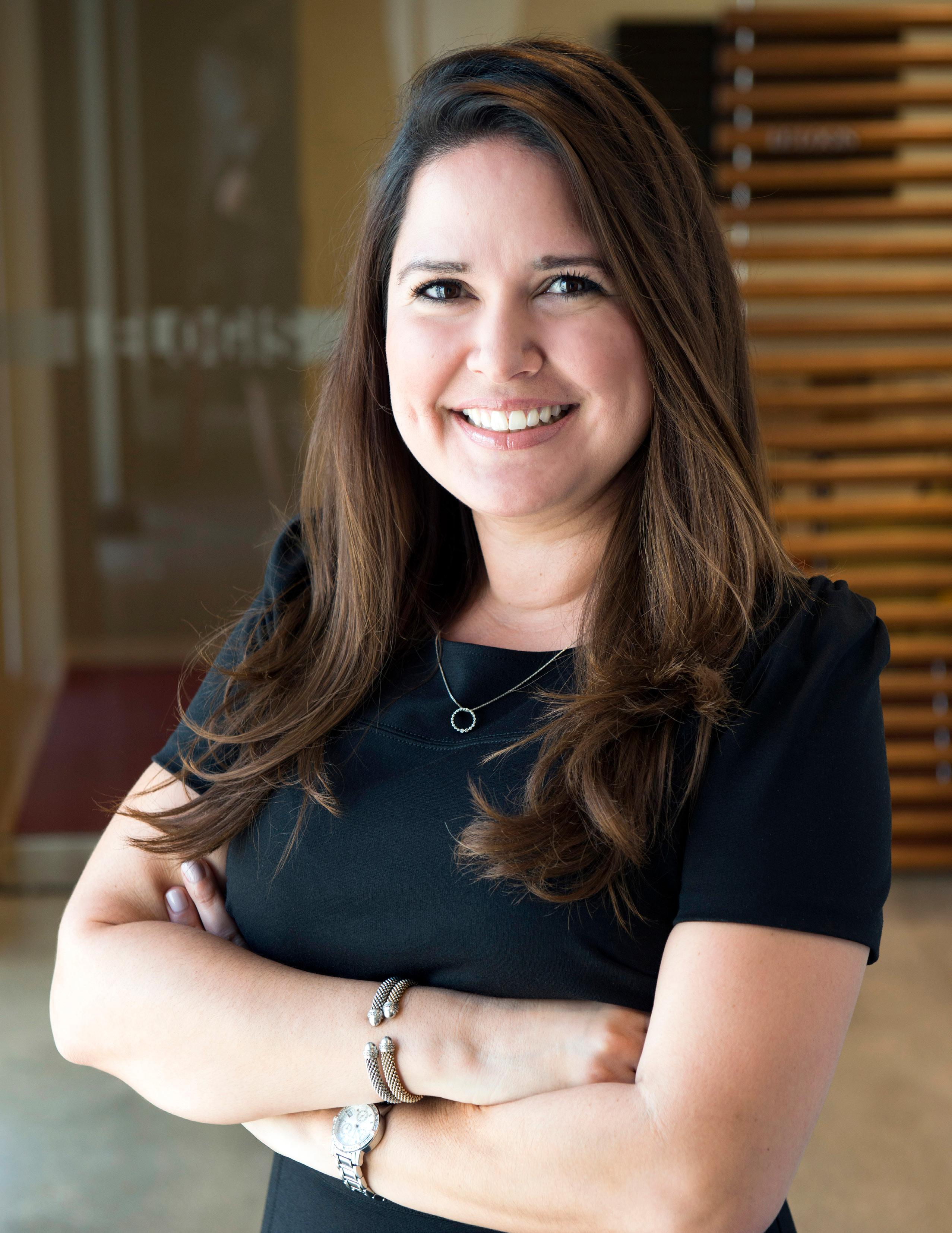
IVAN APFEL PHOTOGRAPHY
Dania Blandon-Hernandez Tax Director, Americas Bacardi
“OH, GOSH, how do I narrow down my passions?” Dania Blandon-Hernandez laughs. While most of us choose one or two topics or hobbies to be especially interested in, Blandon-Hernandez has several. Before becoming tax director of the Americas at Bacardi, she went to school with the hope of becoming an architect—but she quickly realized that her knack for math allowed her to consider a better-suited route. After gaining experience in the tax world, she moved to Bacardi. She was uncertain of what to expect but excited by the opportunity to learn.
Now, Blandon-Hernandez oversees the tax advisory team for Canada, the US, Mexico, and the Caribbean, in addition to all of Central and South America. Though her team is small, it’s
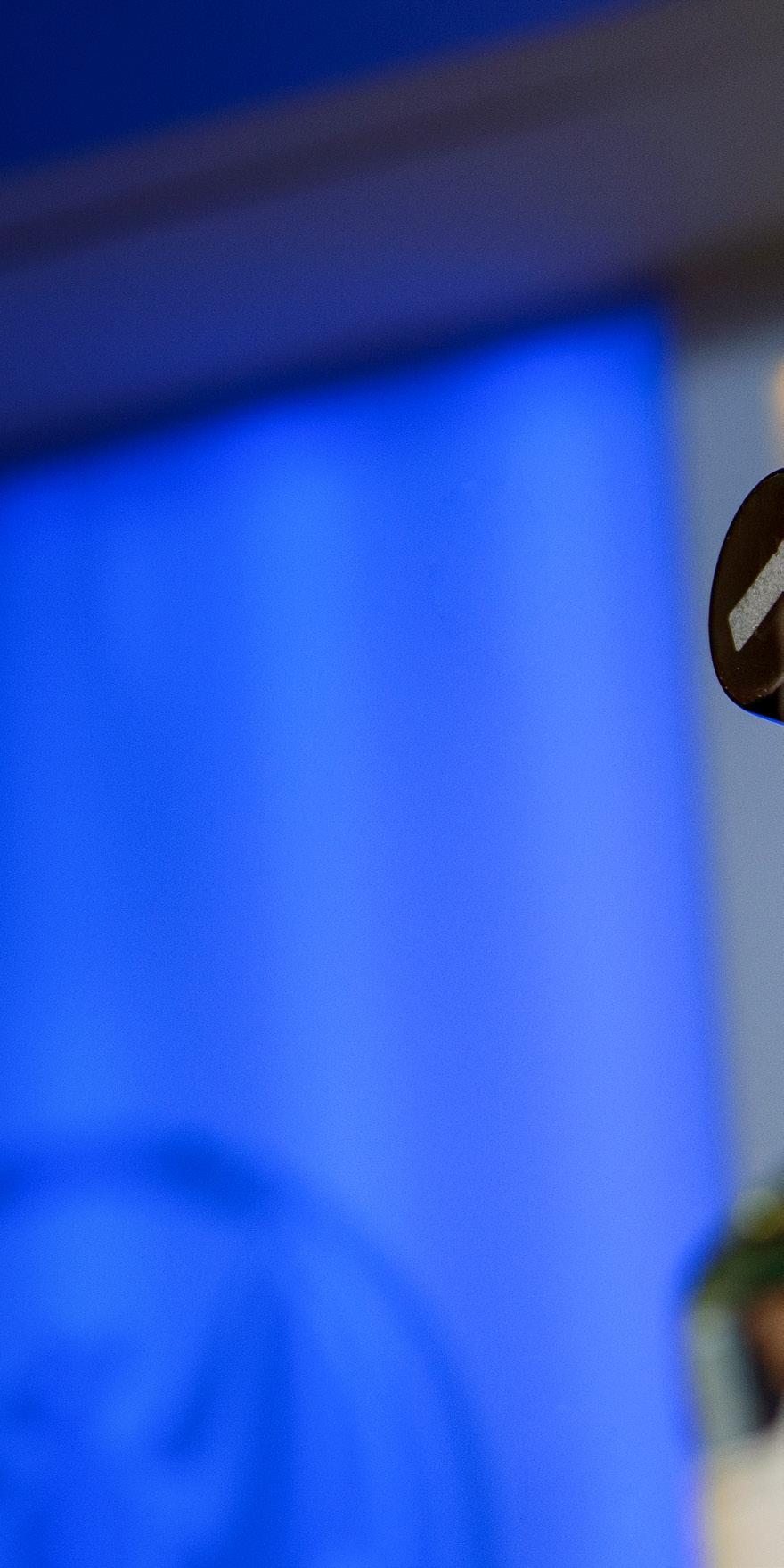
Blandon-Hernandez exemplifies the merit of this experience-based research as she travels the globe to discover how to appeal to Bacardi’s unique customers. She moves from her desk to the production floor so that she can discover how each liquid is made, what the aging process looks like for different products, and what kind of people are purchasing each variety:
“I love traveling. I love learning about new cultures, meeting new people, and I think it all stems from the sense of curiosity outside of a traditional textbook type of way. I try to understand best business practices when visiting other markets—getting to know the cultures and the way they understand our products at Bacardi. What products are they
mighty—and handpicked by Blandon-Hernandez herself. She considers her global team of ten one in which every member shares a passion for Bacardi at a level that exceeds simply practicing their technical skills. Instead, they’re deeply appreciative of the work that goes into making each bottle and discovering how to better service their customers based on their collective experience in the field. “When looking for new candidates, at the very top of my list of attributes is a sense of curiosity and wanting to learn,” she explains.
selling in Portugal versus what is selling in China, for example.”
Over the last year, Bacardi’s biggest project has been centered on combining its 157-year-old infrastructure with its recent acquisition of Patrón, a younger but highly regarded company. As the two companies unite, Blandon-Hernandez and her team are responsible for adopting Patrón’s best practices, integrating the details of their financial infrastructure—including tax financial reporting and transfer pricing—into Bacar-
172 Global
Blandon-Hernandez says that though most would assume her job is primarily numbers based, hands-on experience to better understand the products and the people they serve is critical to the success of her team.
di’s structure. Though integrating these functions may seem like a small task, Blandon-Hernandez and her team have been working for the past twelve months to ensure that Bacardi’s structure remains stronger than ever while keeping Patrón’s journey alive and distinguished.
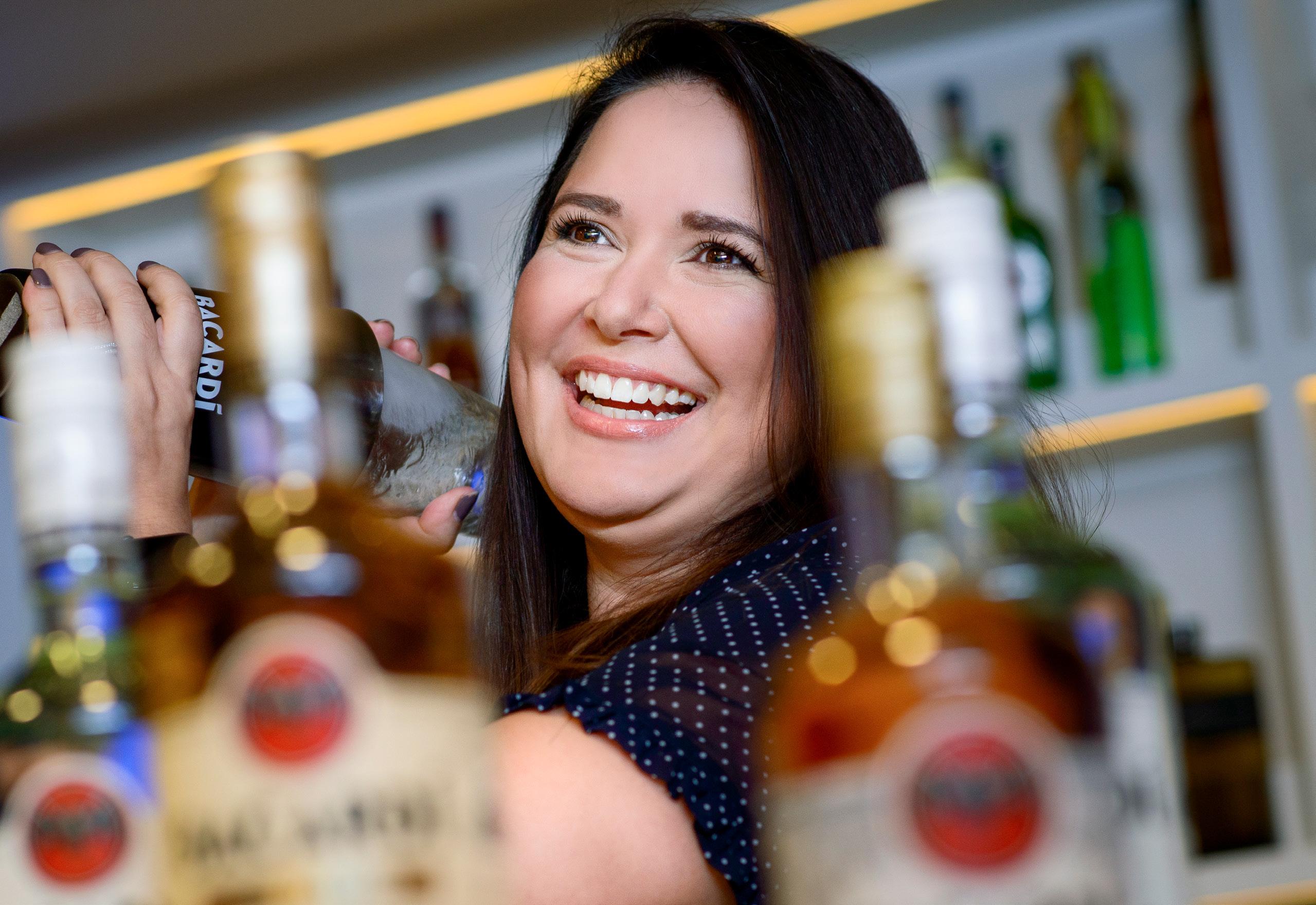
“Patrón is a really successful brand,” she explains. “It made really, really good liquid and the company was run seamlessly, so no one wants to mess up something that worked so well. After the acquisition, we had to learn
what they did that made them successful so we could borrow their best practice to continue doing those things.”
Once the “minutiae” of the acquisition is ironed out, Blandon-Hernandez and her team will be able to better serve the two companies as a united entity. Though most would assume her job is primarily numbers based, hands-on experience to better understand the products and the people they serve is critical to the success of her team. With regard to Bacardi’s products and with respect to the
IVAN APFEL PHOTOGRAPHY 173 Hispanic Executive


174 Global Manuel López-Zambrana, Edificio Ochoa, Suite 401, 500 Calle de la Tanca, San Juan, Puerto Rico, 00901-1969 DLA Piper LLP (US) is part of DLA Piper, a global law firm, operating through various separate and distinct legal entities. Further details of these entities can be found at www.dlapiper.com. Attorney Advertising | MRS000125304 dlapiper.com DLA Piper congratulates our client and friend Dania Blandon-Hernandez on being recognized in Hispanic Executive magazine. GIVE HER A HAND.
Where The Customer Experience Begins
We help technology companies with multiple products and services streamline their customer support workflow.
24/7 US-BASED CALL SUPPORT
TICKETING + CASE MANAGEMENT
WORKFLOW + CALL MANAGEMENT
WORKFORCE SCALABILITY
SOFTWARE INTEGRATION
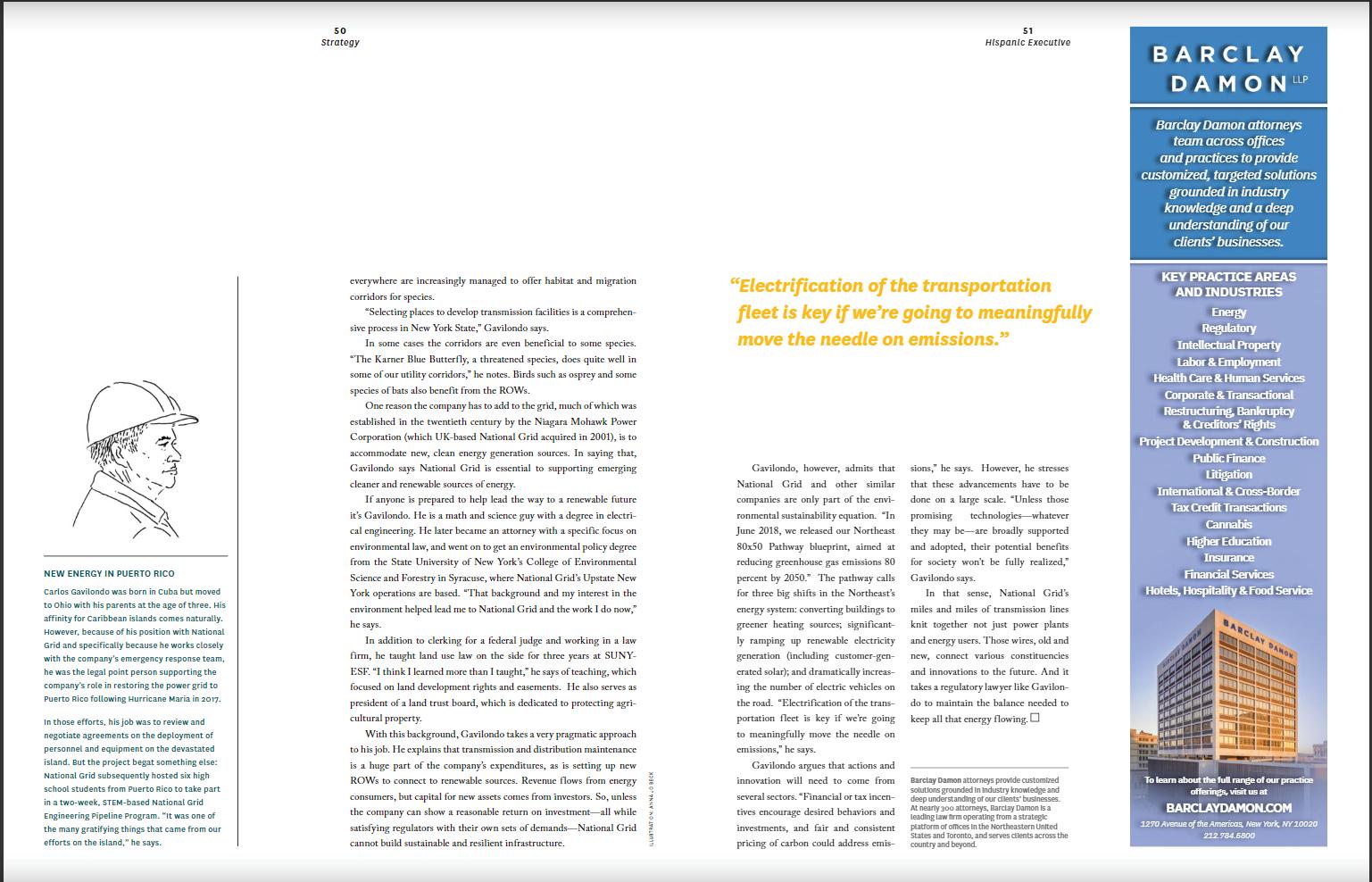
NEXASUPPORT.COM/HE 800.408.3408 CONTACT US
SUPPORT
LEVEL ZERO
IVAN APFEL PHOTOGRAPHY 175 Hispanic Executive
Industry Index 116 Margita Thompson VP of Public Affairs California Resources Corporation Energy 30 Raul Vazquez CEO Oportun Inc. 148 Hector Gutierrez EVP and Deputy Chief Credit Officer Citizens Business Bank 167 Enrique Huerta SVP and General Manager, Global Retail Markets Transformation Liberty Mutual Insurance Finance 43 Arturo Carrillo Senior Director of Quality, Food Safety & Regulatory Bimbo Bakeries USA 74 Daniel Lubetzky Founder and Executive Chairman KIND Snacks 100 Alfredo Rivera Group President, Latin America Coca-Cola 106 Christine Montenegro McGrath VP and Chief of Global Impact, Sustainability & Well-Being Mondelēz International 170 Dania Blandon-Hernandez Tax Director, Americas Bacardi Food and Beverage 51 Rey Nunez Senior Director of Real Estate Greyhound Lines 110 Luis Madrigal Engineering Manager, Client Platform Engineering & IoT Uber Auto/Transportation 54 Frank Galindo National Director of Compliance Lincoln Educational Services 68 Marnie Forestieri Founder and CEO Young Innovators Academy Education 65 Eliseo Rojas Founder and CEO ETR Business Solutions 104 Cristina Antelo CEO Ferox Strategies Consulting 46 Arivee Vargas Head of Global Anti-Corruption & Assurance Programs Vertex Pharmaceuticals 91 Carlos Vidal President of International Development Orangetheory Fitness 162 Dan Ramirez VP of Global Facilities Management Teva Pharmaceuticals Healthcare 176 Index
A guide to the diverse professions featured in this issue Nonprofit 86 Cid Wilson President and CEO Hispanic Association on Corporate Responsibility 96 Angelique Sina President Friends of Puerto Rico 104 Dr. Maria Carrillo Chief Science Officer Alzheimer’s Association 104 Andrea Perez VP and General Manager, Global Brand Jordan (Women/Kids) Nike 120 Jeannette Ferran Astorga VP of Corporate Responsibility Ascena Retail Group Inc. 18 Bruny Rios SVP of Global Revenue Dell 104 Miguel Quiroga Founder and CEO Visible 124 Jaime Mata Assistant VP and Senior Legal Counsel AT&T 128 Ricardo Madan VP of Technology Products & Services TEKsystems 152 Miguel Carrillo VP and Senior Counsel, International Iron Mountain Tech 40 Julio C. Barrionuevo SVP of Latin America & Caribbean Division FedEx 134 Antonio Gutierrez Chief Business Affairs Officer First in Service Travel 139 Tony Mendez VP of Risk Management & Safety MasterCorp Inc. 104 Nonny de la Pena Founder and CEO Emblematic Group 24 Rebecca O’Mara VP of Service Grundfos 142 Juan Silva Head of Global Service System & Digital Otis Elevator 156 Edgar Mayorga Global Finance-CFS Director Johnson Controls Manufacturing Hospitality Retail Logistics 36 John Campos VP and Global Head of Automotive Acxiom 60 Francisco Garcia Cofounder and CEO Merkari Group Marketing Media 177 Hispanic Executive
The Last Word
We asked the mission-driven leaders in this issue:

How do you mentor others to give back?
a virtuous cycle—as I people,mentor they mementor back.
For example, our regulatory advisor Palmira Hernandez is a success who has grown in her leadership. Her engagement has energized me to keep pushing for change.”
—MARGITA THOMPSON CALIFORNIA RESOURCES CORPORATION, P116
“There’s some wisdom which I’ve been fortunate to pay forward to countless friends and colleagues as a basis for CSR, found in an old proverb my parents and grandparents quoted often during my childhood: ‘Look not only to your own interests, but also to the interest of others.’ This teaching has increasingly captured the essence of my bias towards giving back.”
—RICARDO MADAN TEKSYSTEMS, P128
“I am very lucky to work for an organization for which giving back is part of the DNA. I help promote that spirit with my colleagues in leading by example. From partnering with charity initiatives like finding a cure for ALS to giving fifteen charity hours to every HQ employee, giving back does not always have to be money-related. We all have time and effort to give, which is as valuable—if not more—to many.”
—CARLOS VIDAL ORANGETHEORY FITNESS, P91
“It’s
178 The Last Word
We are pleased to support the in-house leaders featured by Hispanic Executive with whom we are honored to work.

Congratulations

have the power to redefine what’s possible. From the first generation to make a home in a new country to the next generation of business owners, you work relentlessly to seize every opportunity
build a lasting legacy. We call that being empowerful. As you continue to secure your family’s financial future, Wells Fargo walks right beside you helping to make it happen. You’ve come this far. We can help you go further.
how at: wellsfargo.com Your hard work knows no limits. Neither does your success. © 2019 Wells Fargo Bank, N.A. All rights reserved. IHA-24739
You
and
Learn






















 Claudia meets with Dr. Robert Rodriguez, founder and president of DRR Advisors, to coordinate efforts in uniting the Latino community.
Claudia meets with Dr. Robert Rodriguez, founder and president of DRR Advisors, to coordinate efforts in uniting the Latino community.













 Rebecca O’Mara VP of Service Grundfos
Rebecca O’Mara VP of Service Grundfos













 John Campos VP and Global Head of Automotive Acxiom
John Campos VP and Global Head of Automotive Acxiom


 Arivee Vargas
Head of Global Anti-Corruption & Assurance Programs
Arivee Vargas
Head of Global Anti-Corruption & Assurance Programs




 Frank Galindo National Director of Compliance
Frank Galindo National Director of Compliance














 Marnie Forestieri Founder and CEO Young Innovators Academy
Marnie Forestieri Founder and CEO Young Innovators Academy
















 Alfredo Rivera
Group President, Latin America
Alfredo Rivera
Group President, Latin America





 Cristina Antelo
Andrea Perez
Nonny de la Peña
Miguel Quiroga
Cristina Antelo
Andrea Perez
Nonny de la Peña
Miguel Quiroga


 Luis Madrigal Engineering Manager, Client Platform Engineering & IoT Uber SERCIO CAMPOS
Luis Madrigal Engineering Manager, Client Platform Engineering & IoT Uber SERCIO CAMPOS



 Jeannette Ferran Astorga
VP of Corporate Responsibility
Jeannette Ferran Astorga
VP of Corporate Responsibility
 Jaime Mata
Jaime Mata

 Ricardo Madan VP of Technology Products & Services TEKsystems
Ricardo Madan VP of Technology Products & Services TEKsystems


 Antonio Gutierrez Chief Business Affairs Officer First in Service
Antonio Gutierrez Chief Business Affairs Officer First in Service










 Hector Gutierrez
Hector Gutierrez









 Edgar Mayorga Global Finance-CFS Director Johnson Controls
Edgar Mayorga Global Finance-CFS Director Johnson Controls



 Dan Ramirez
VP and Head of Global Facilities Management
Dan Ramirez
VP and Head of Global Facilities Management






























